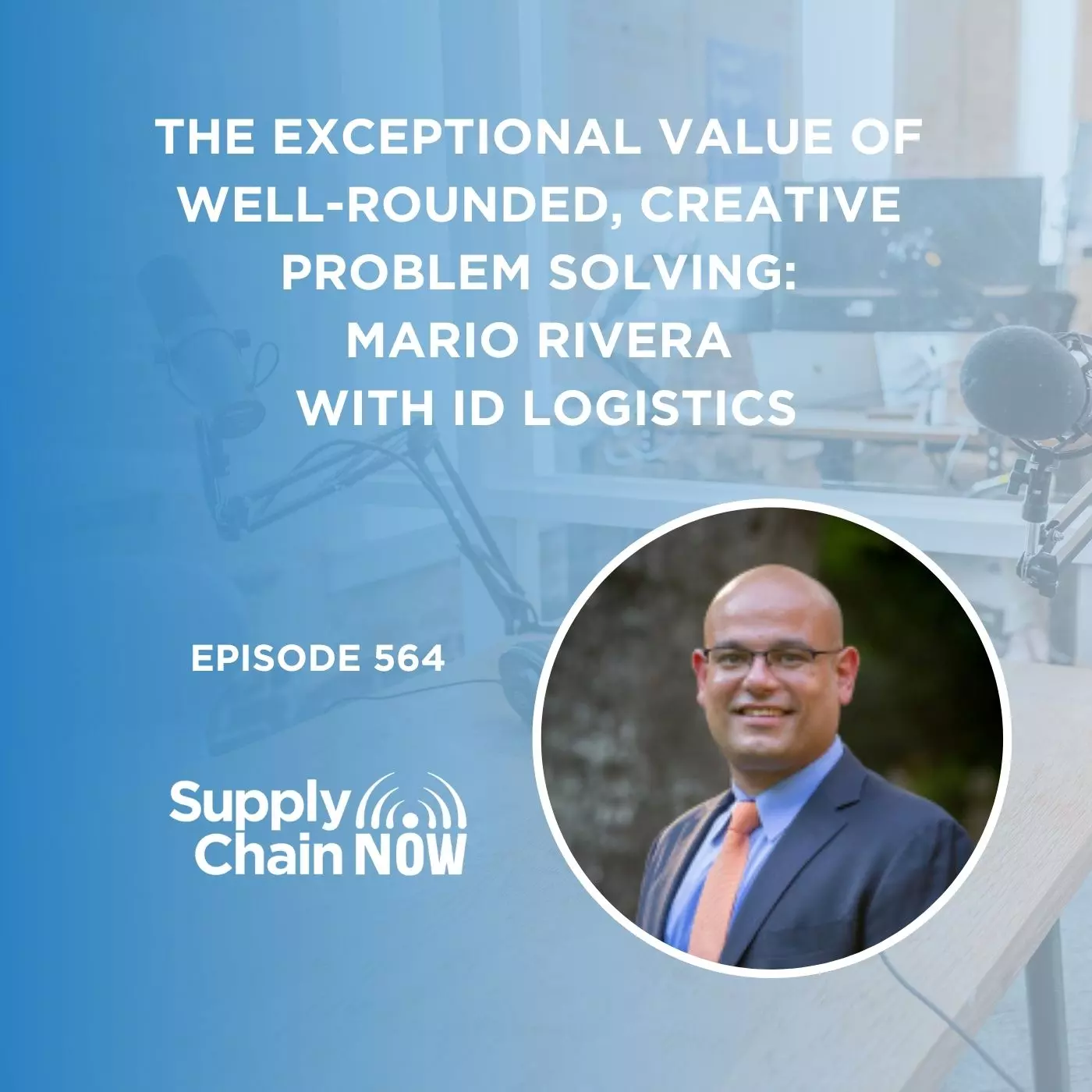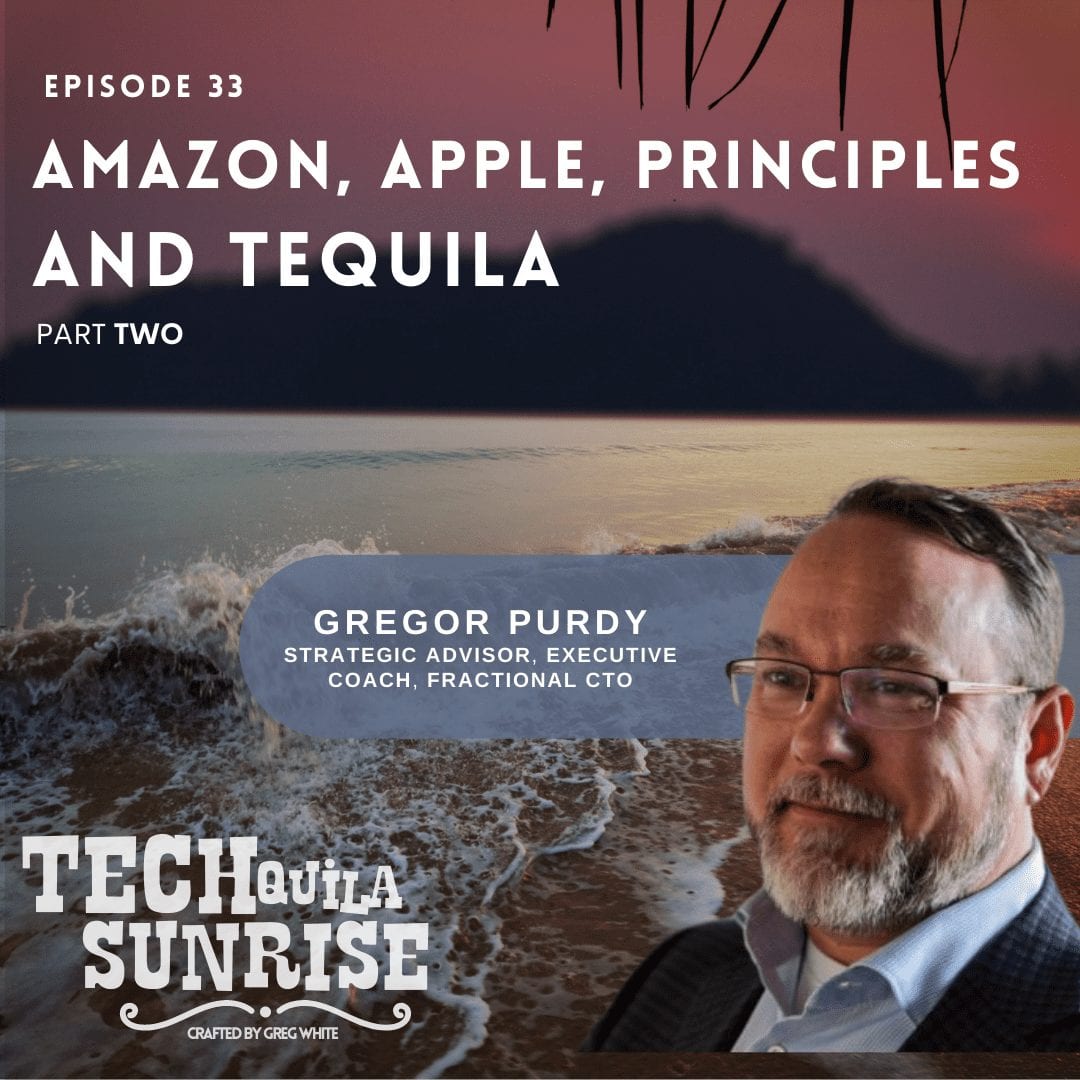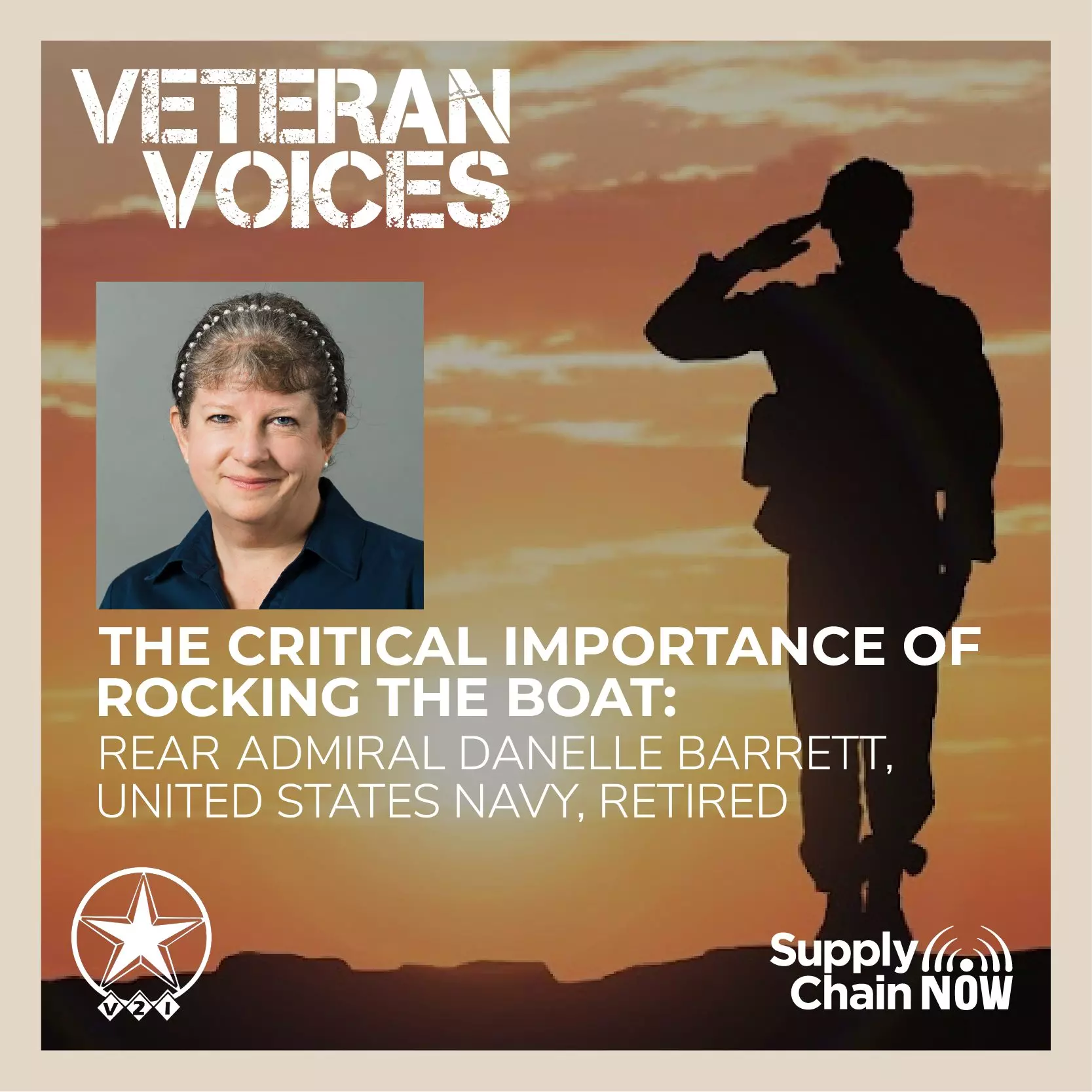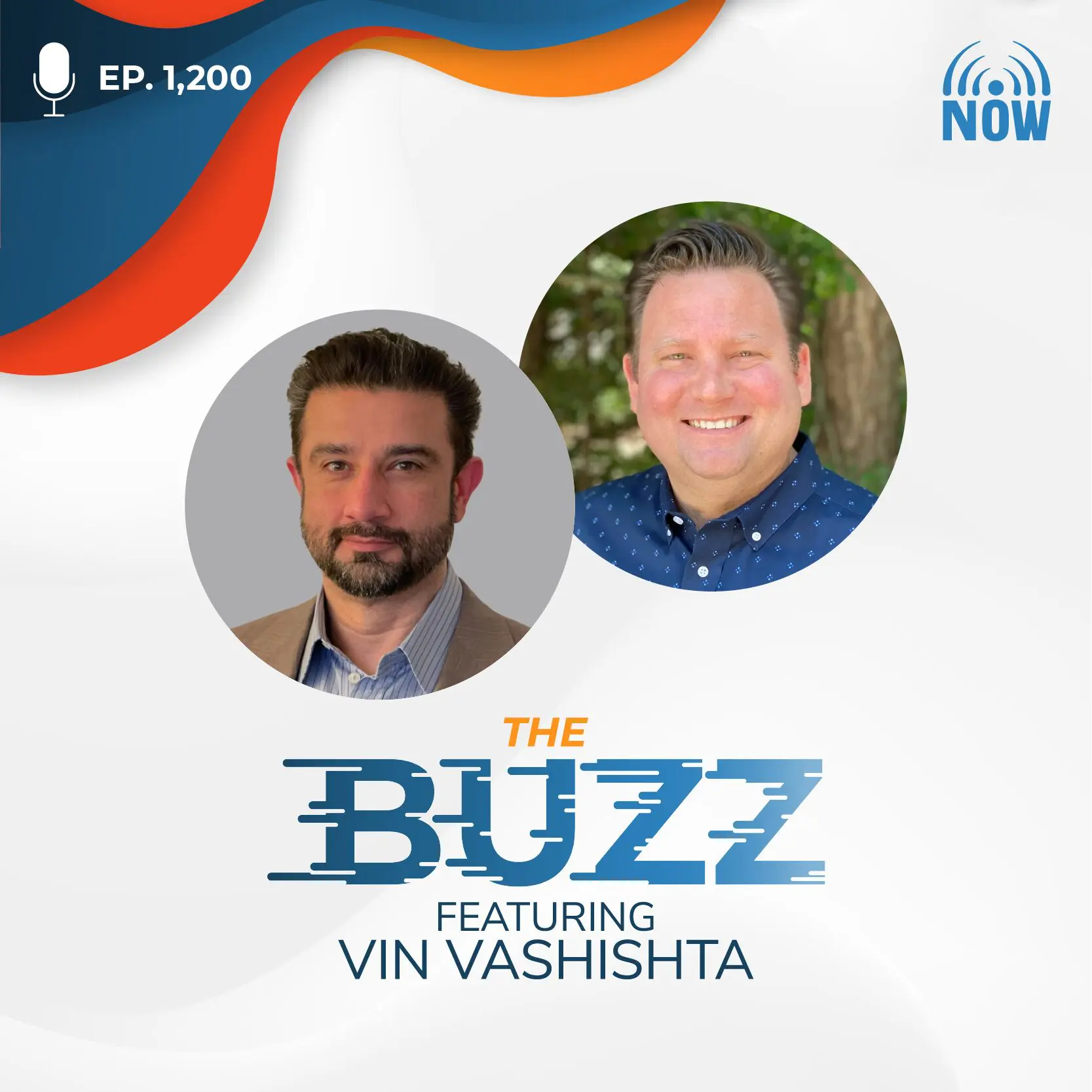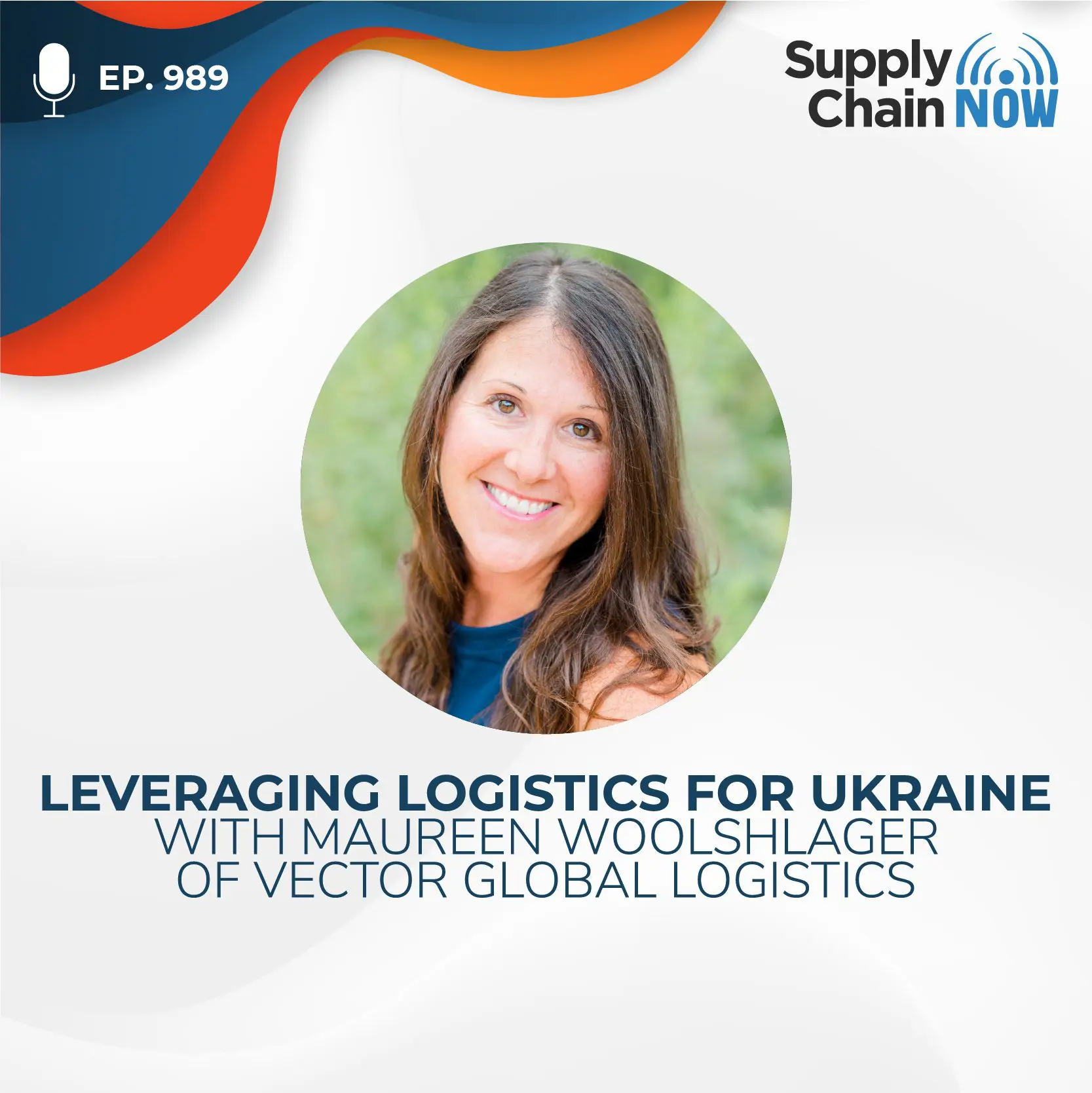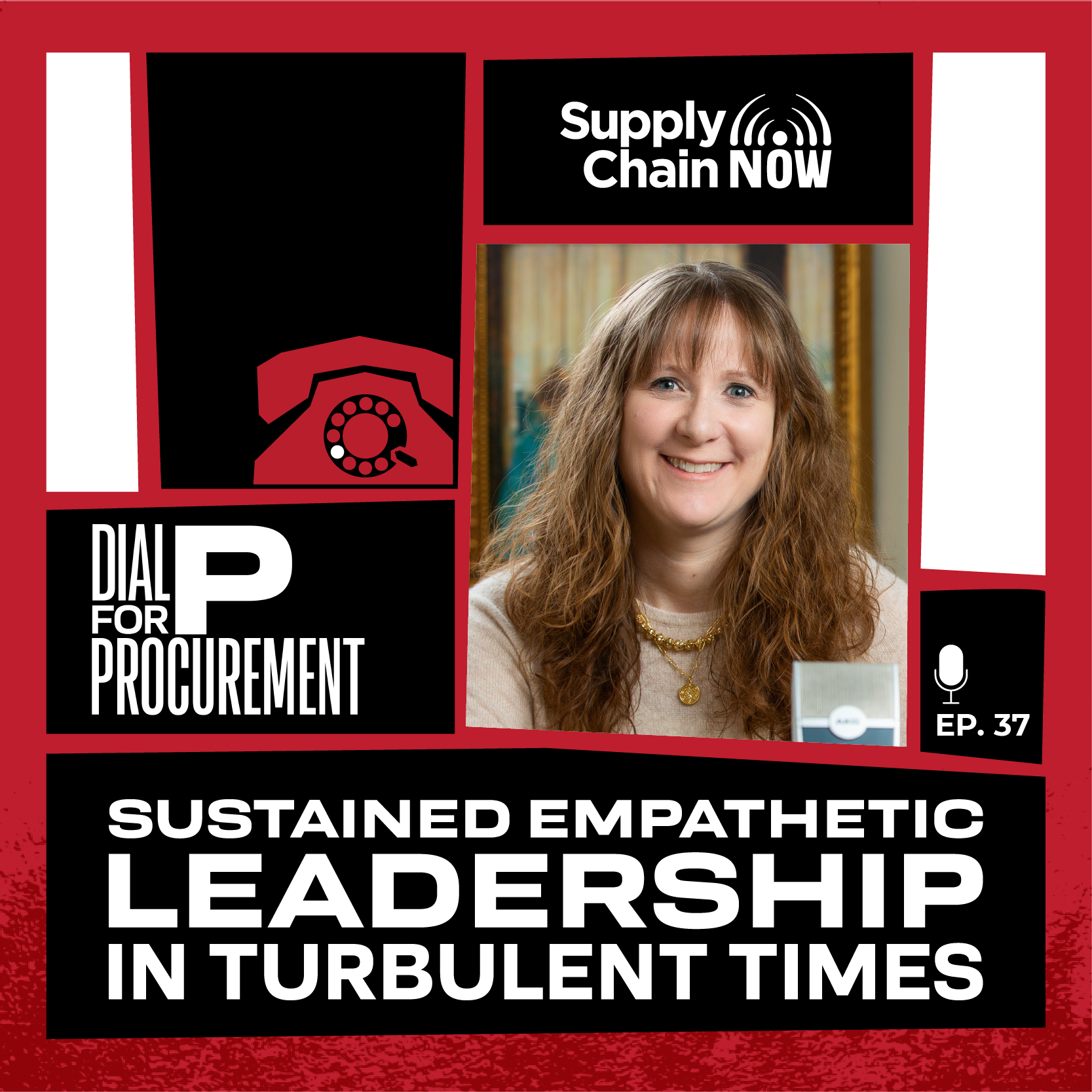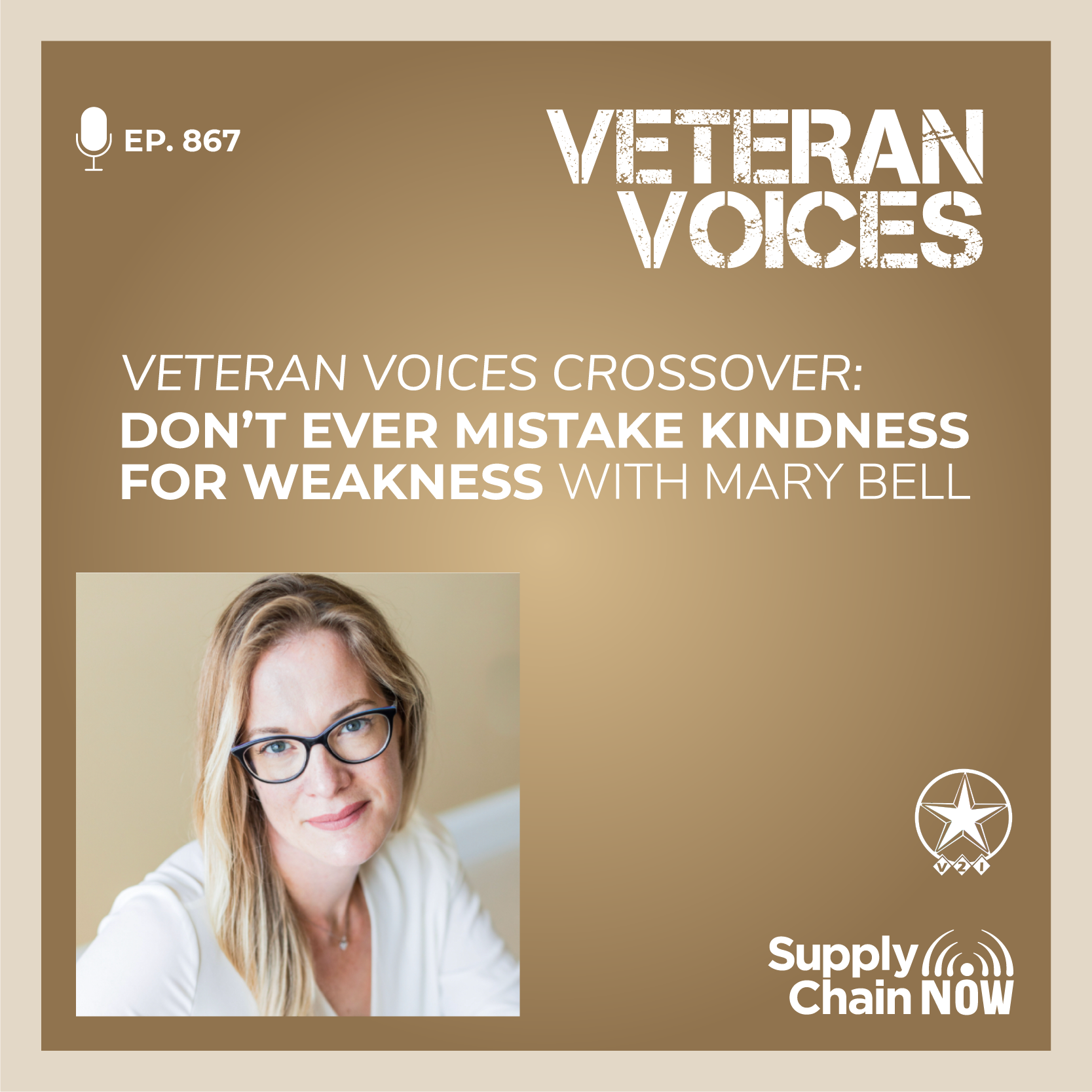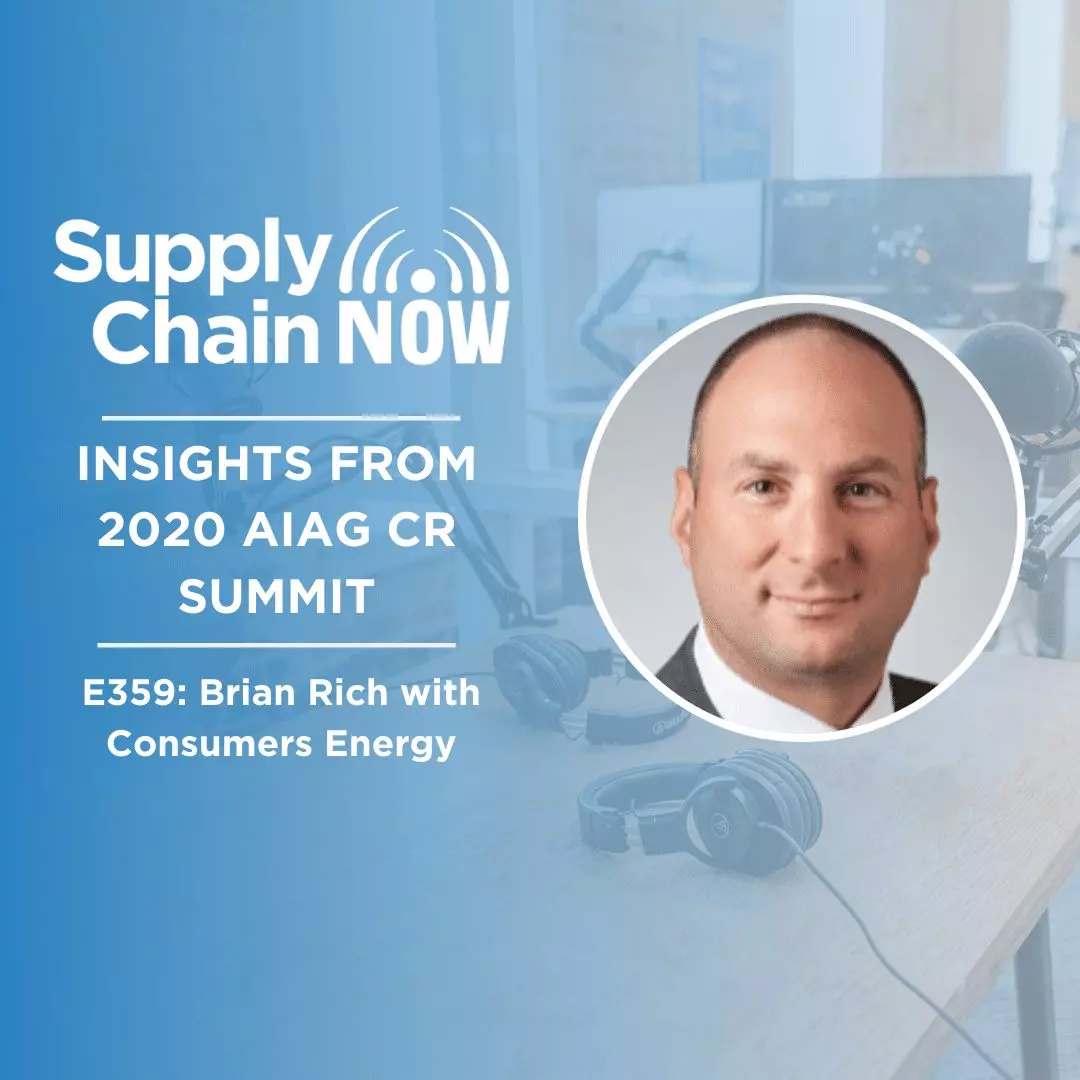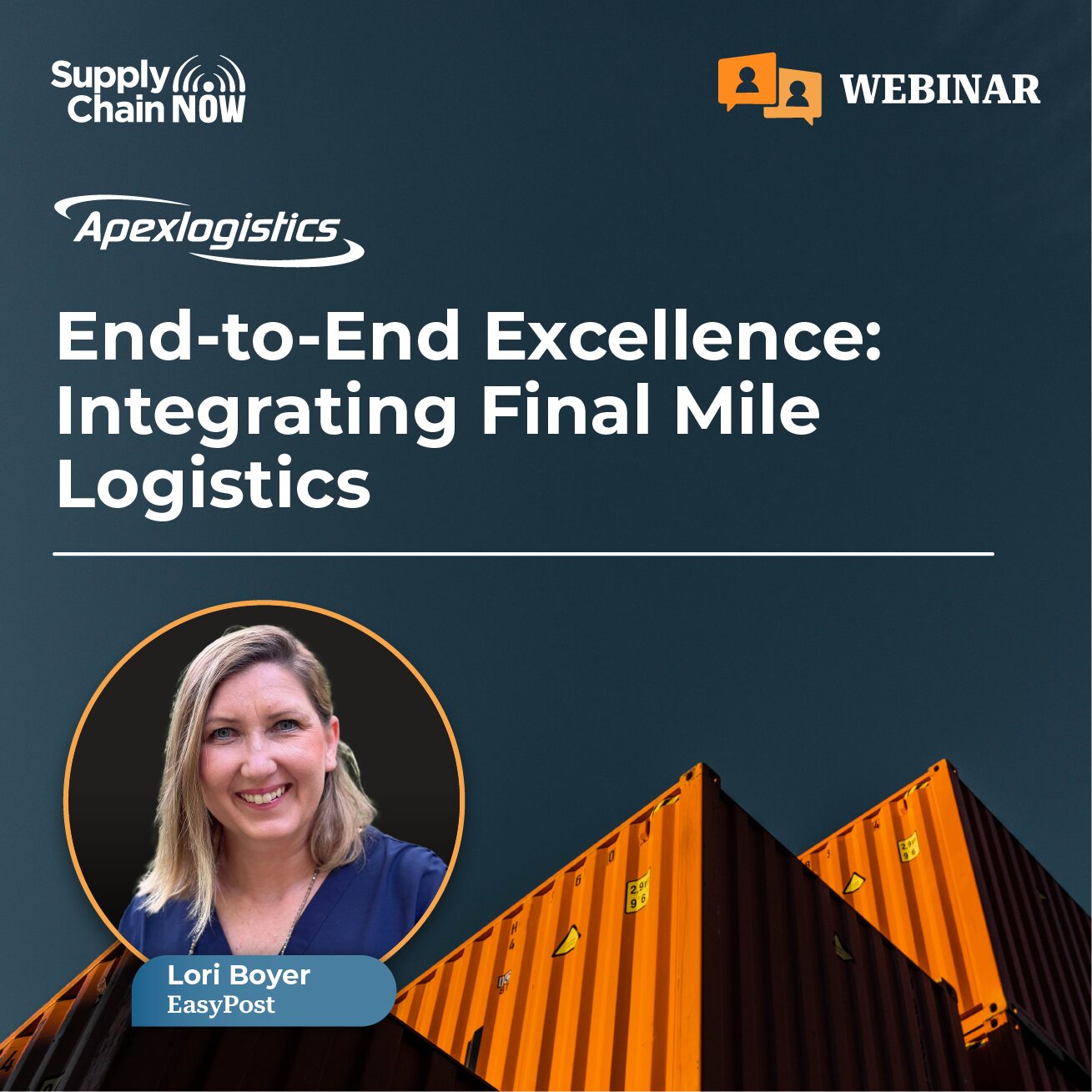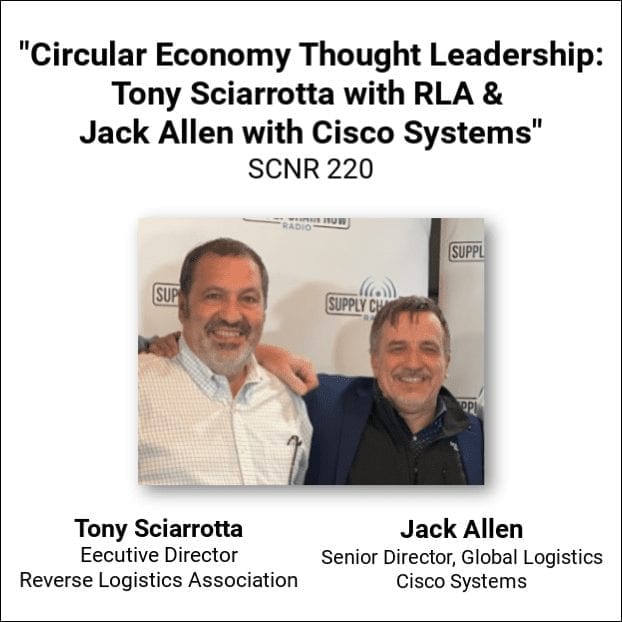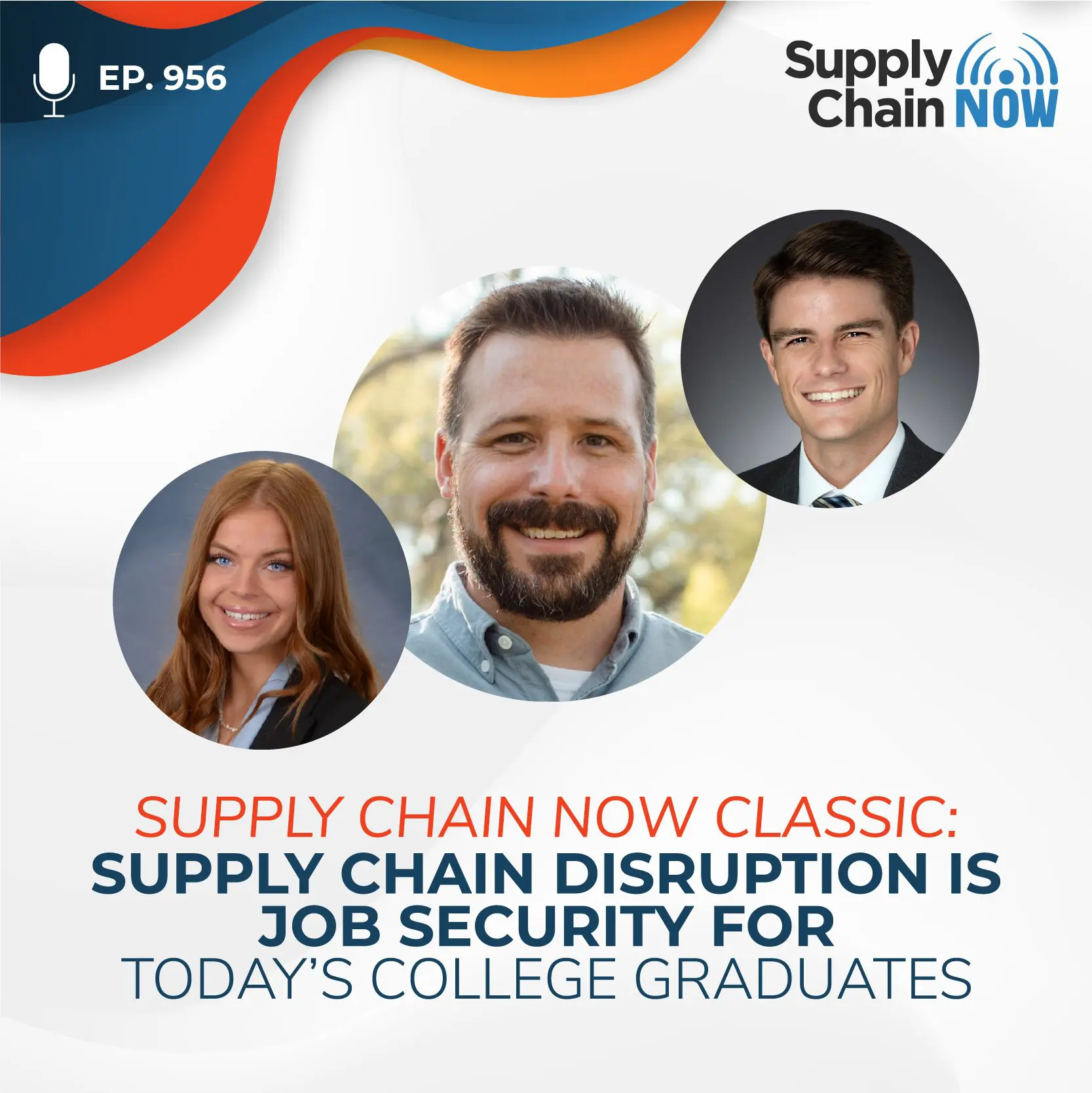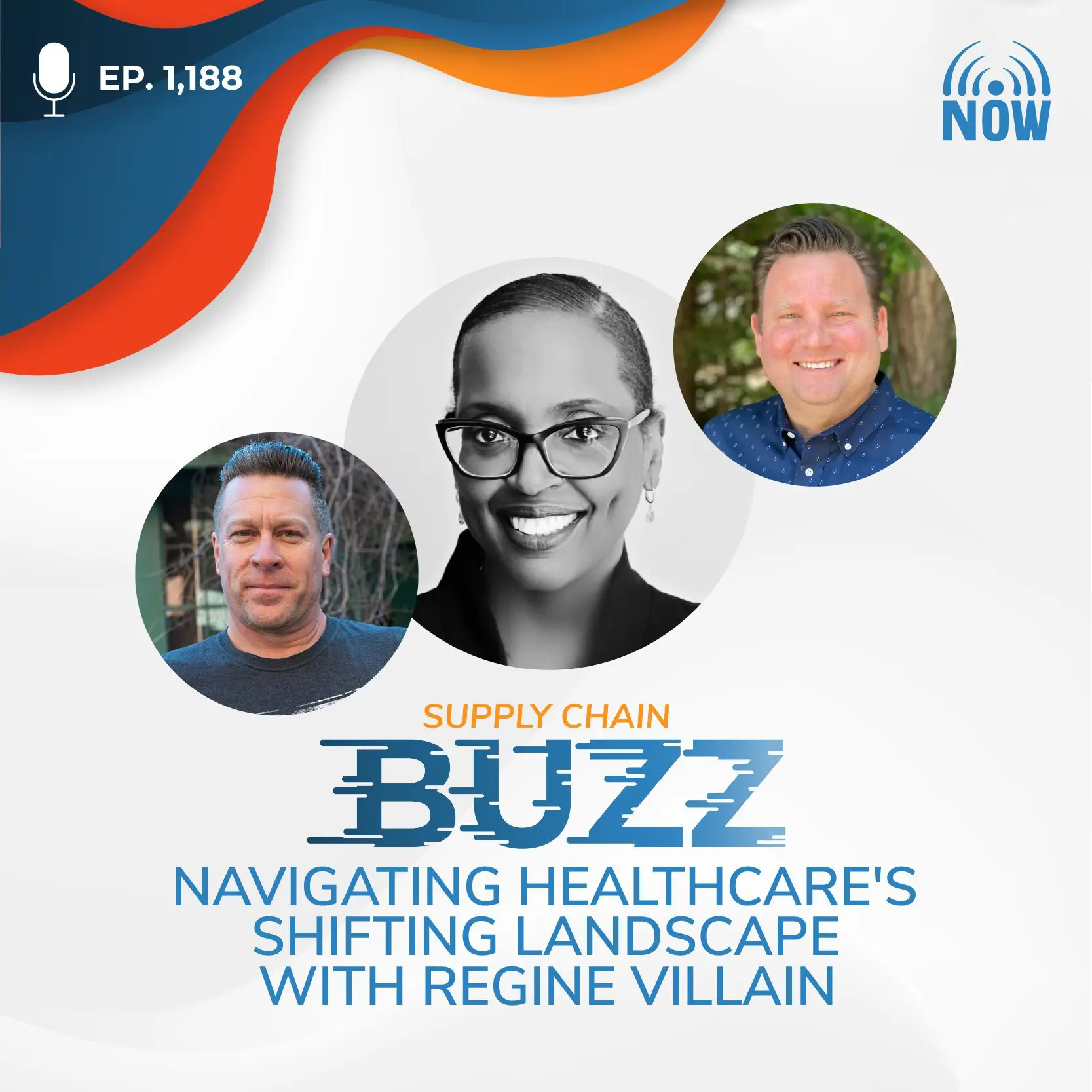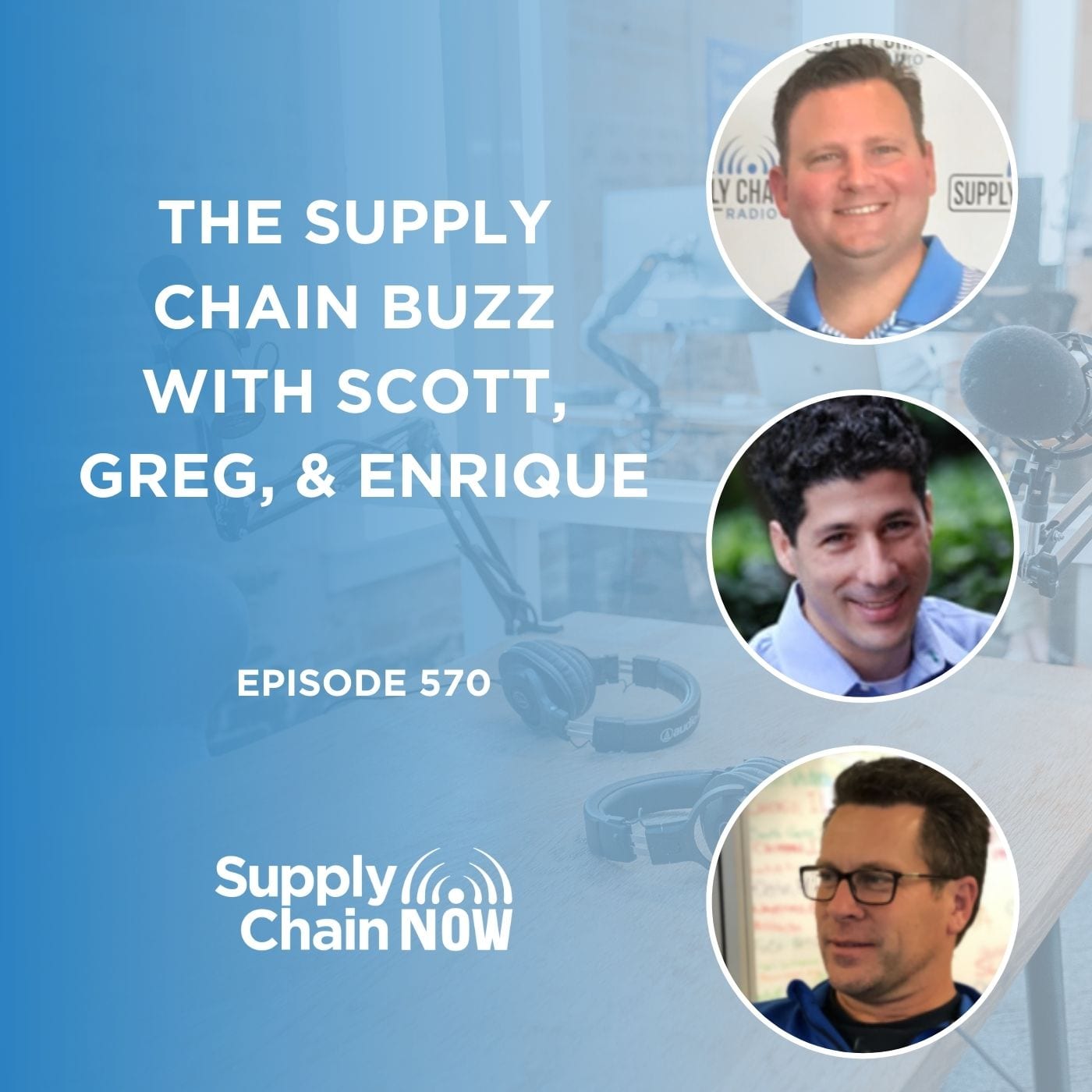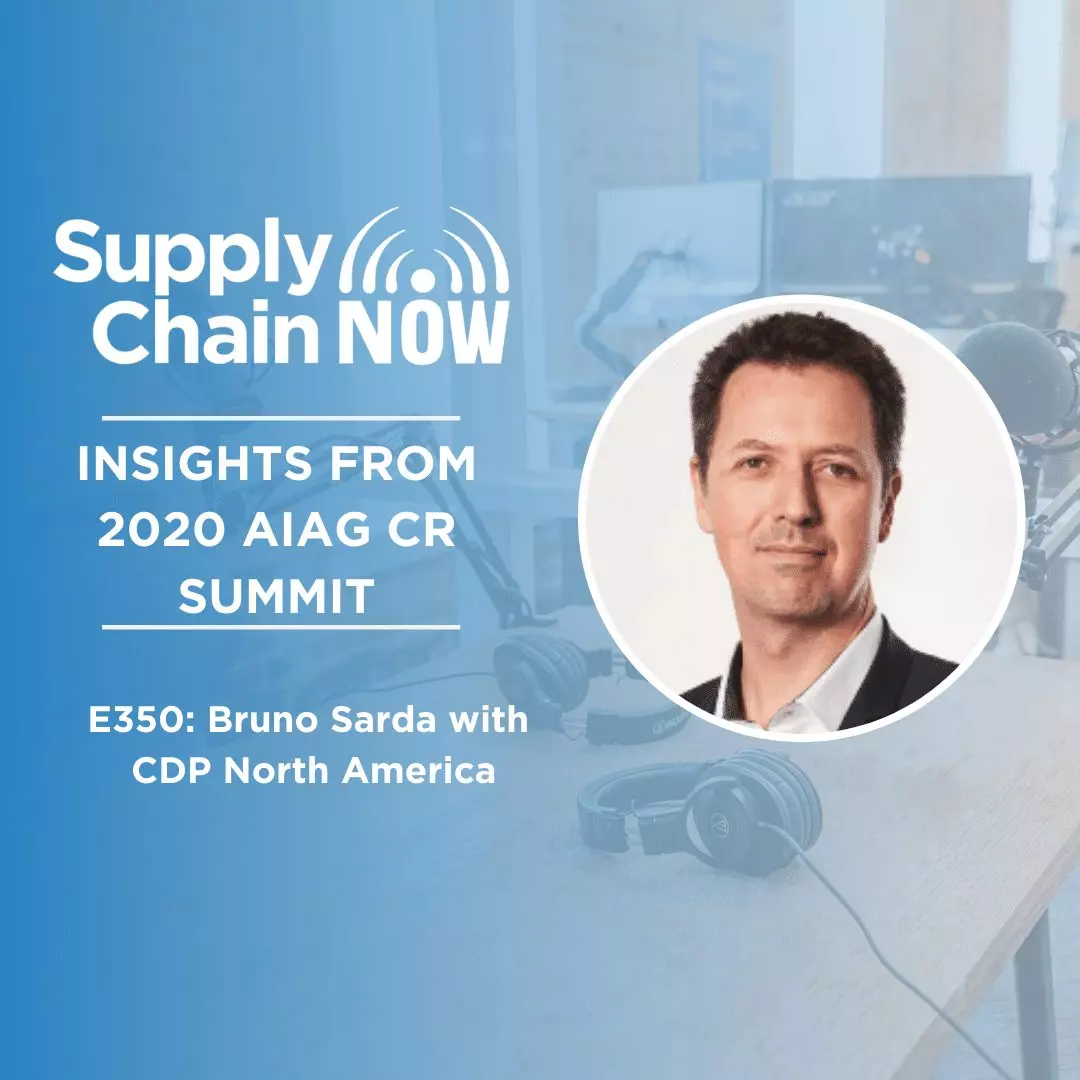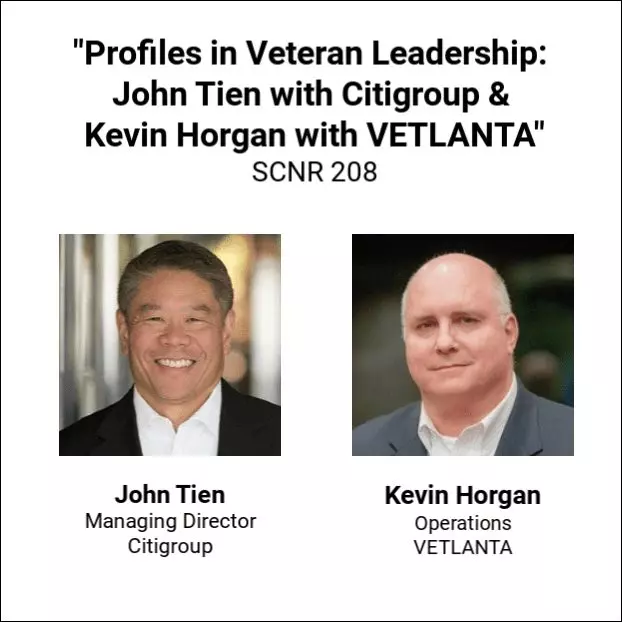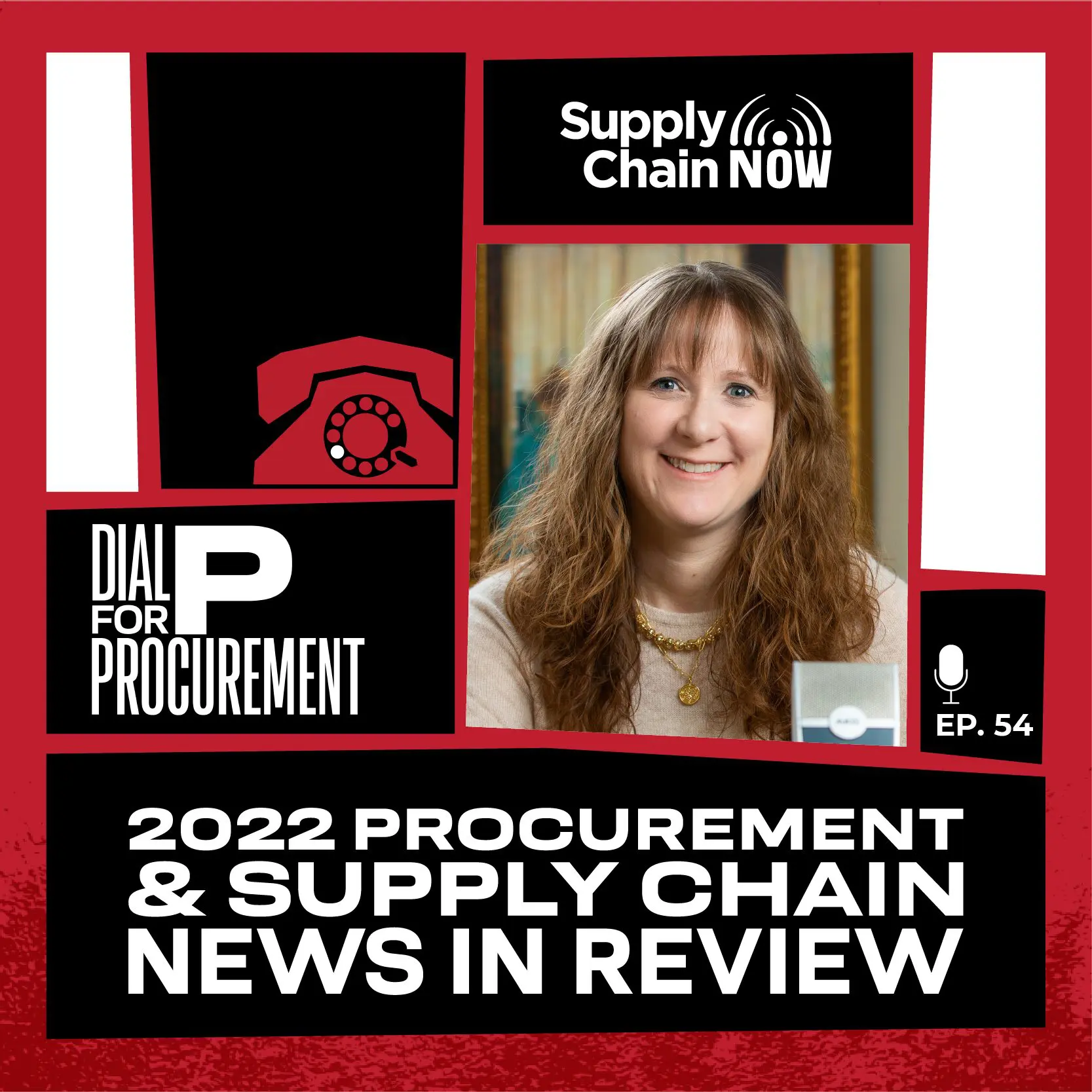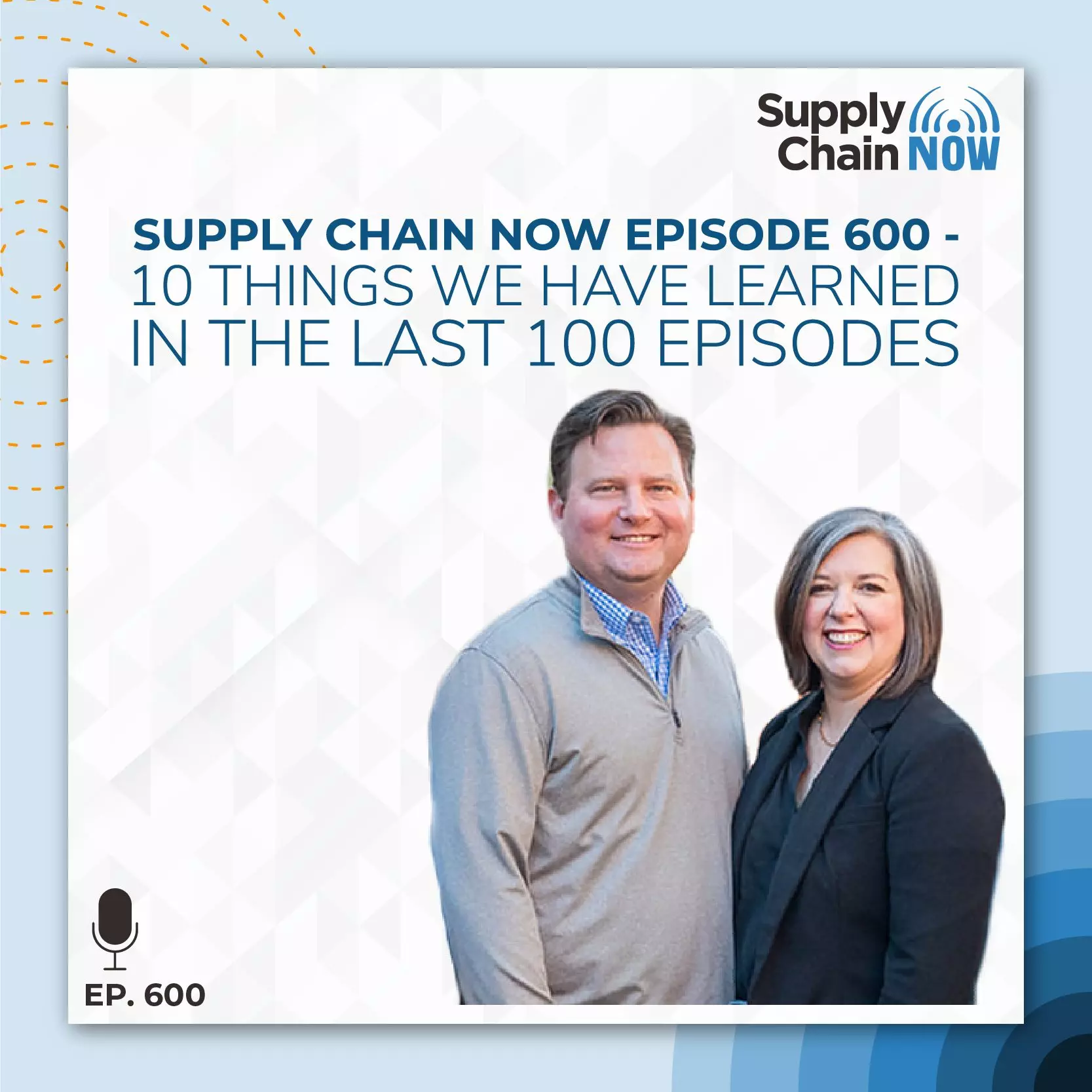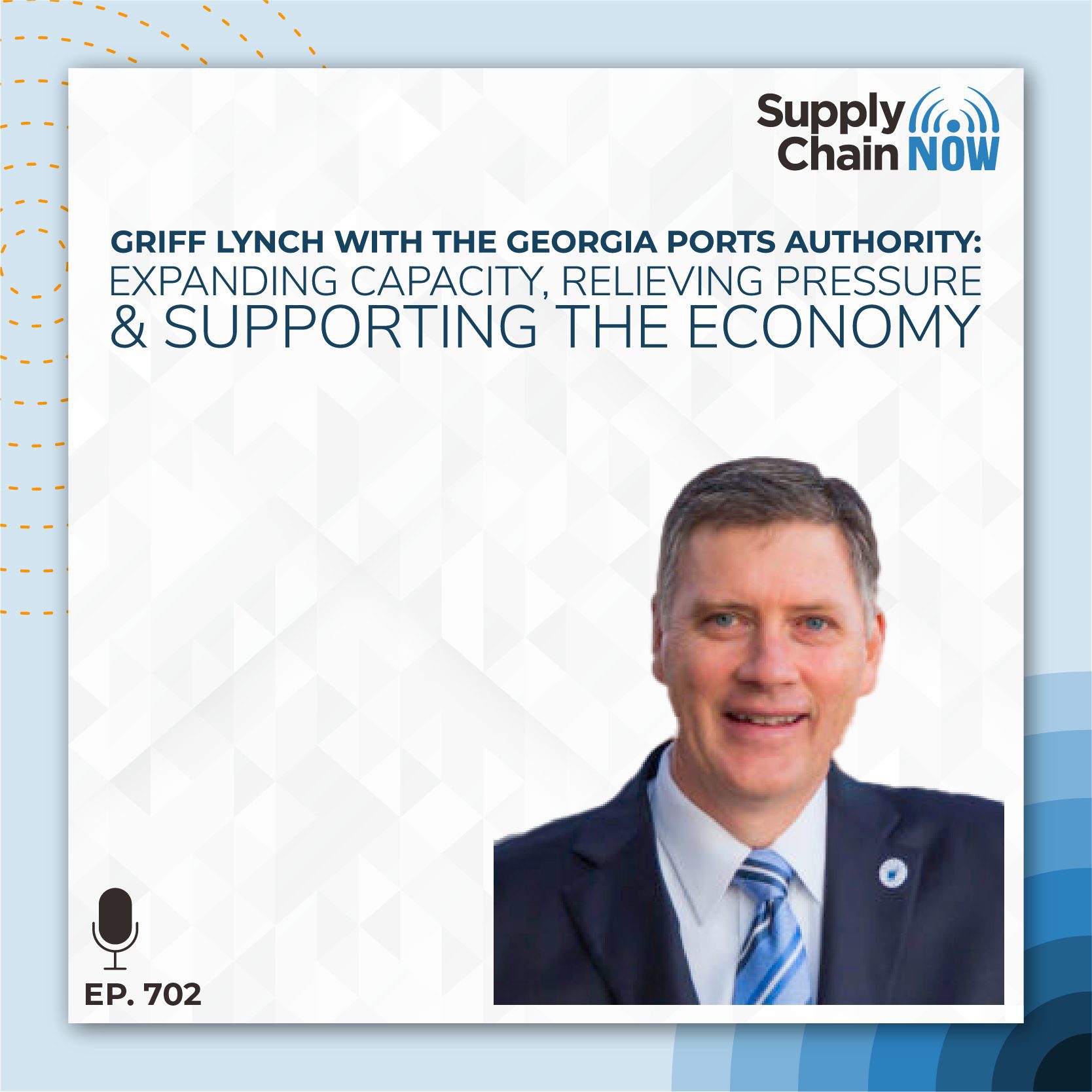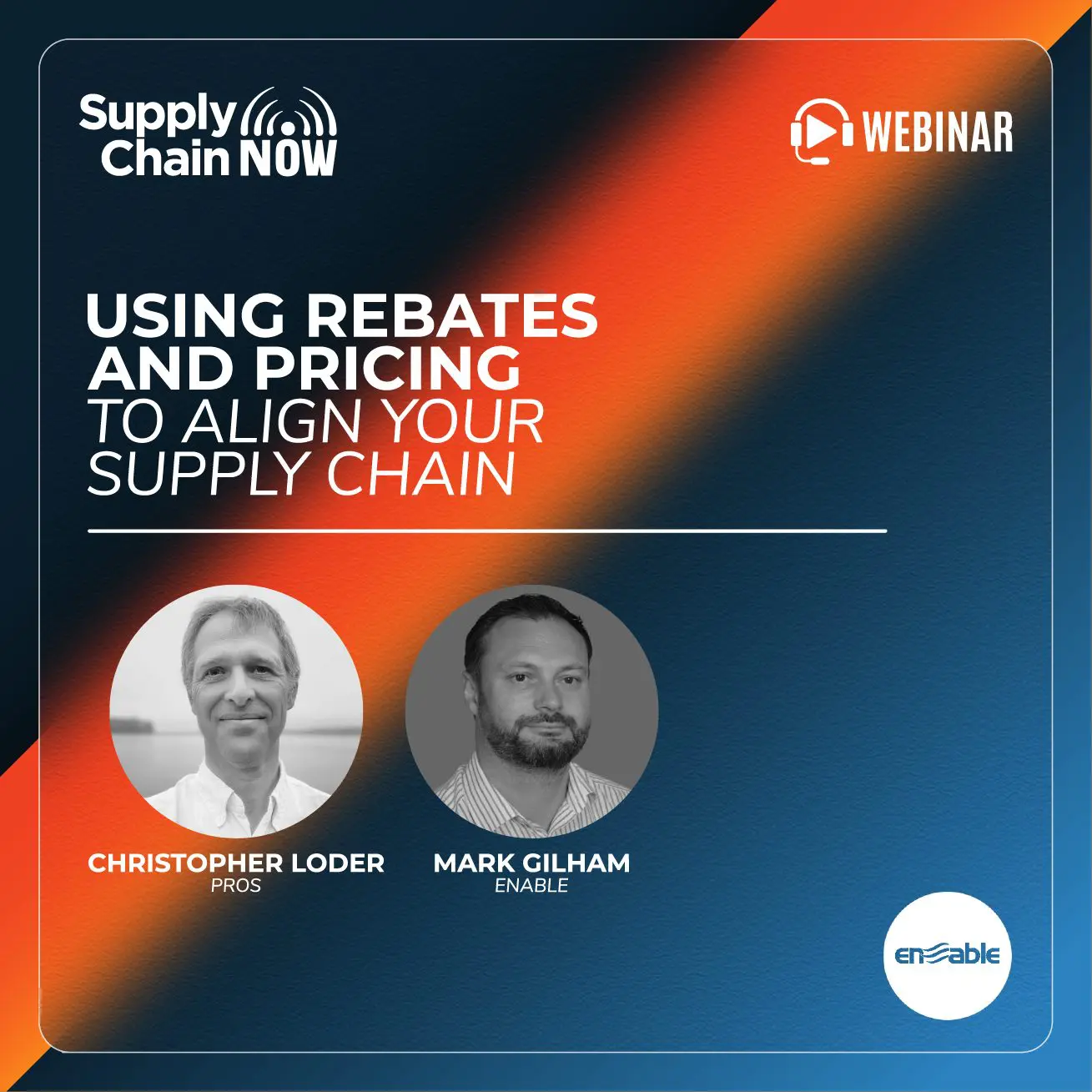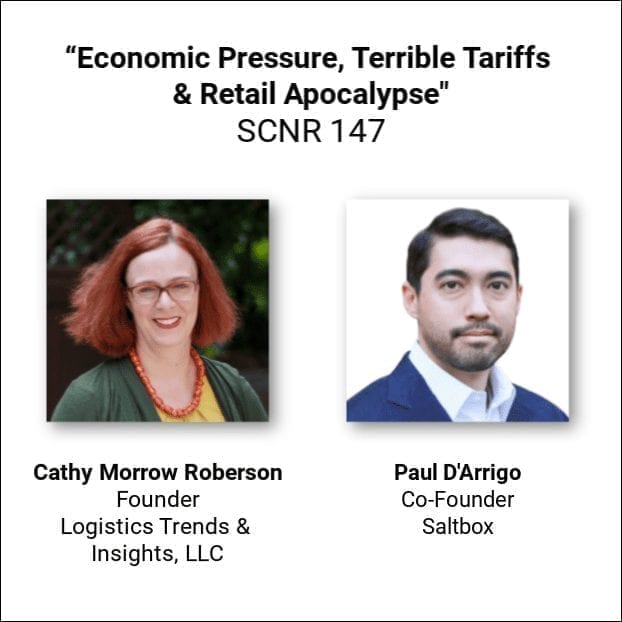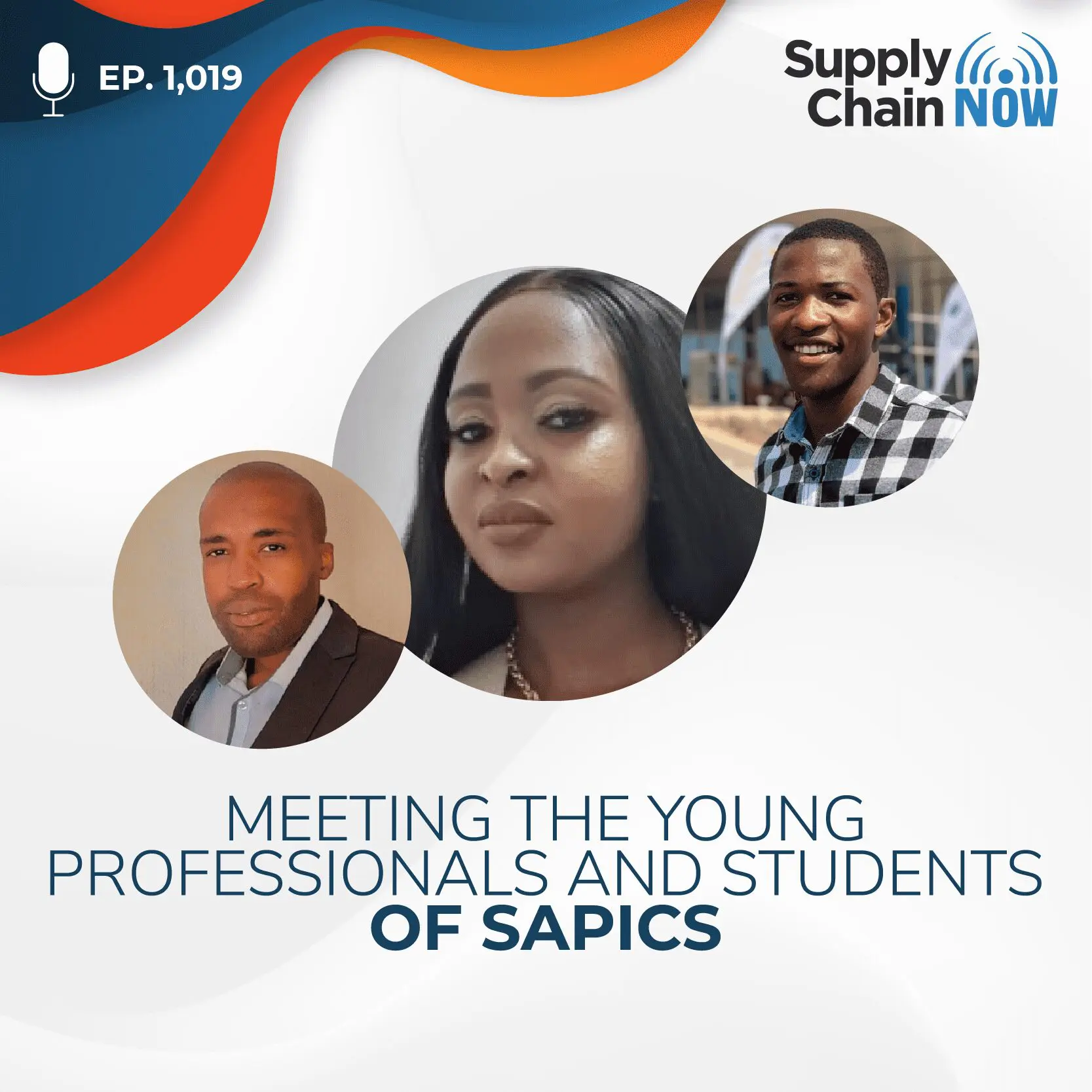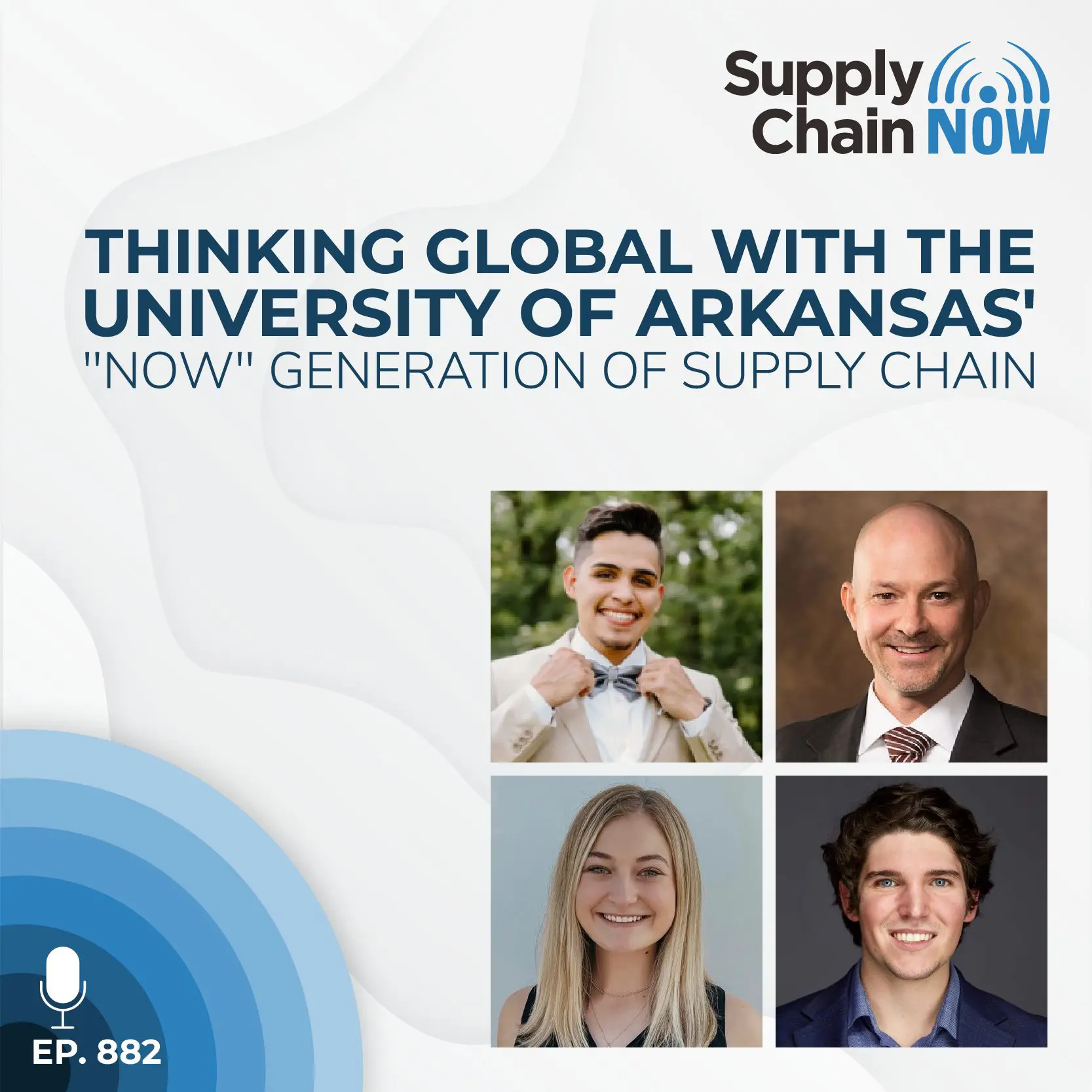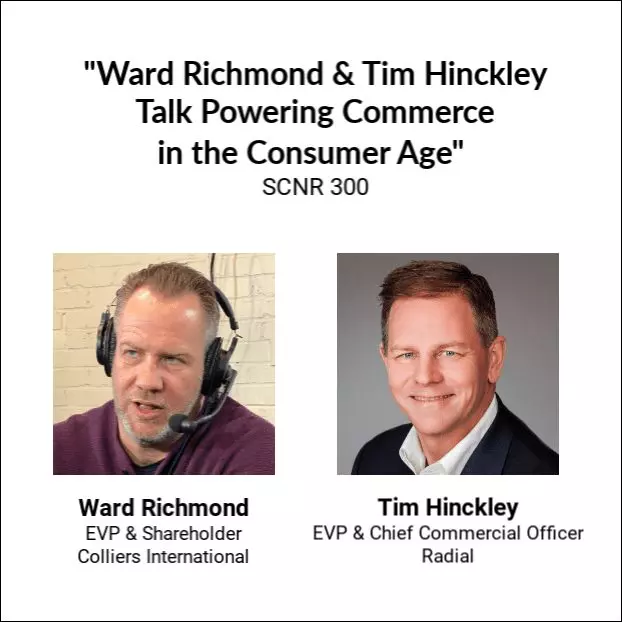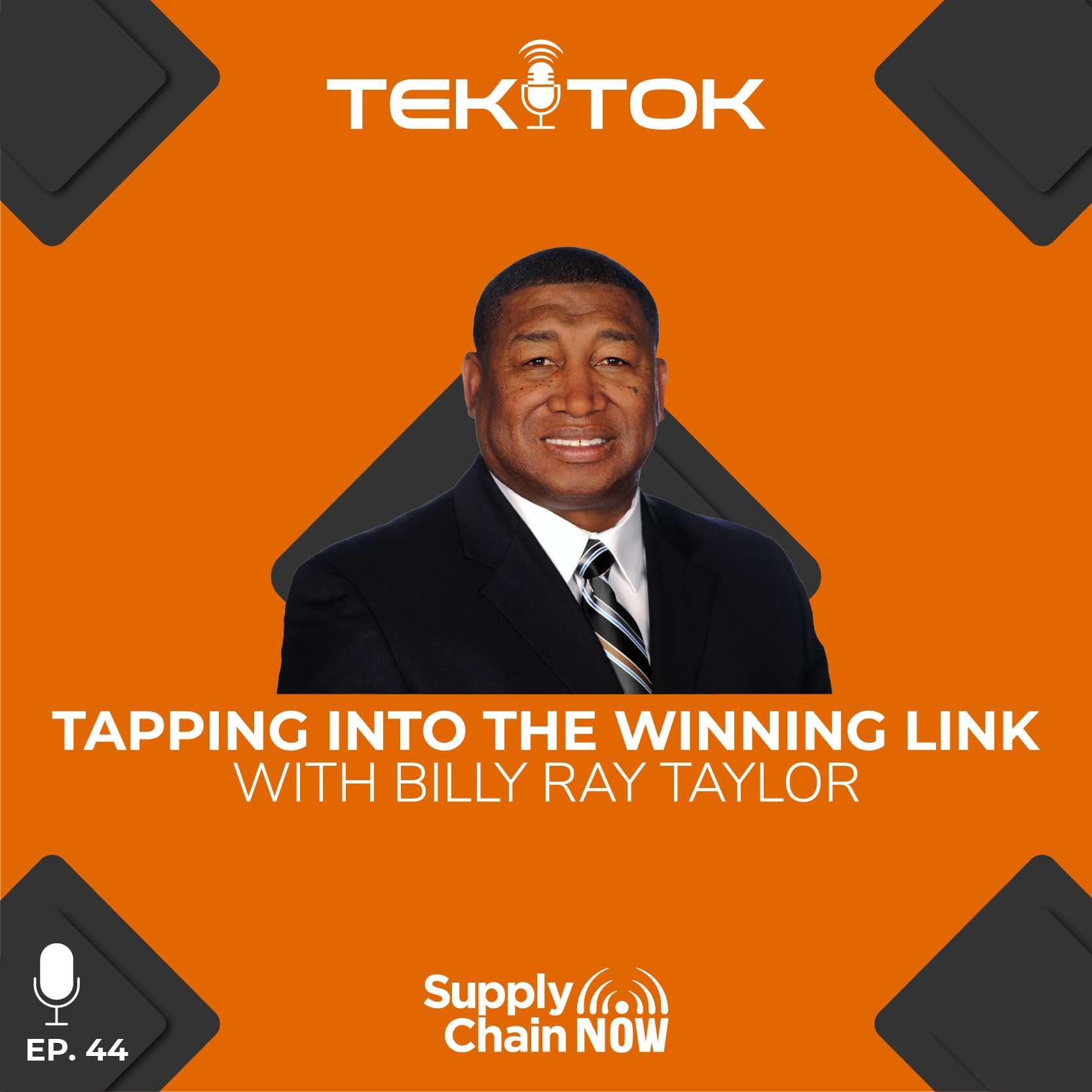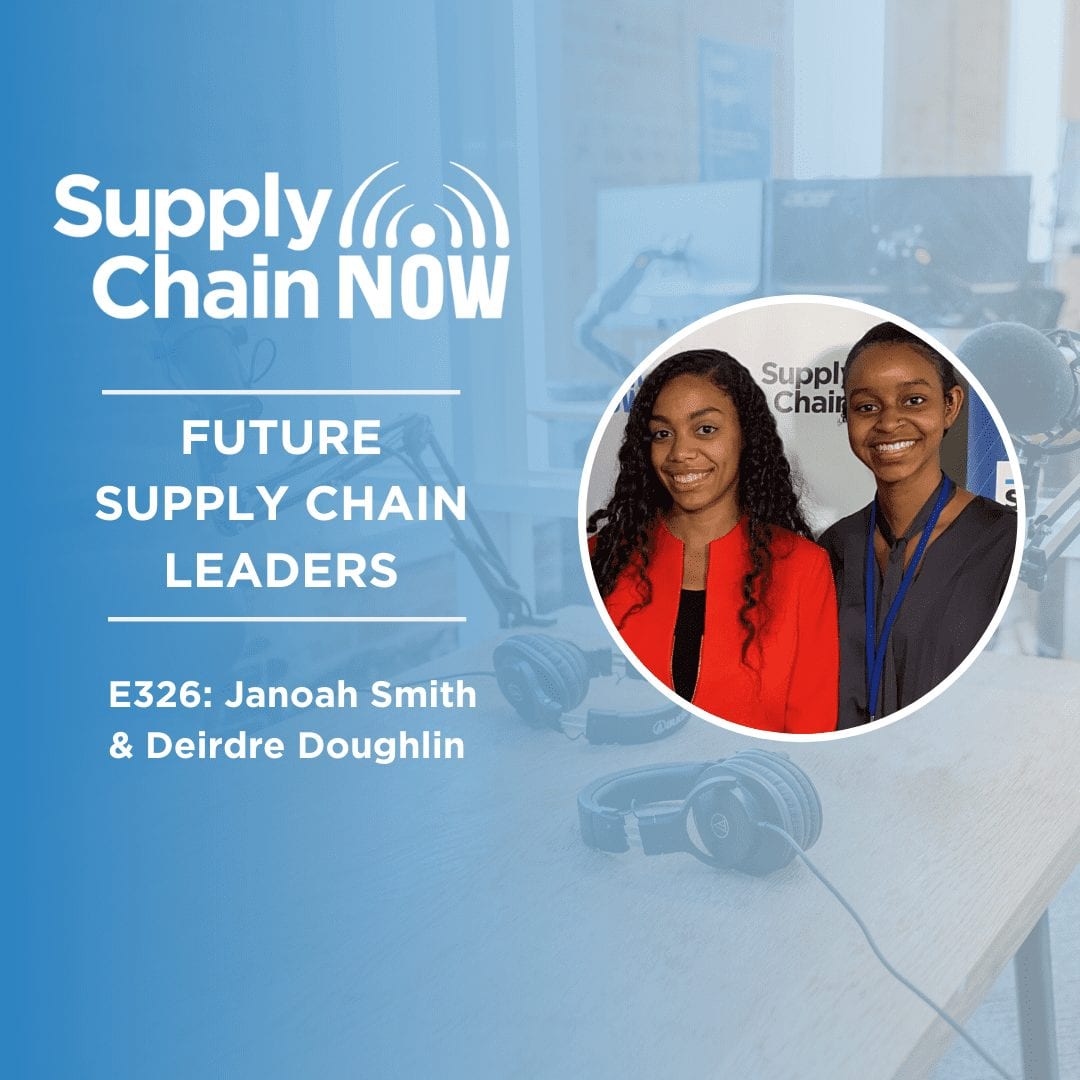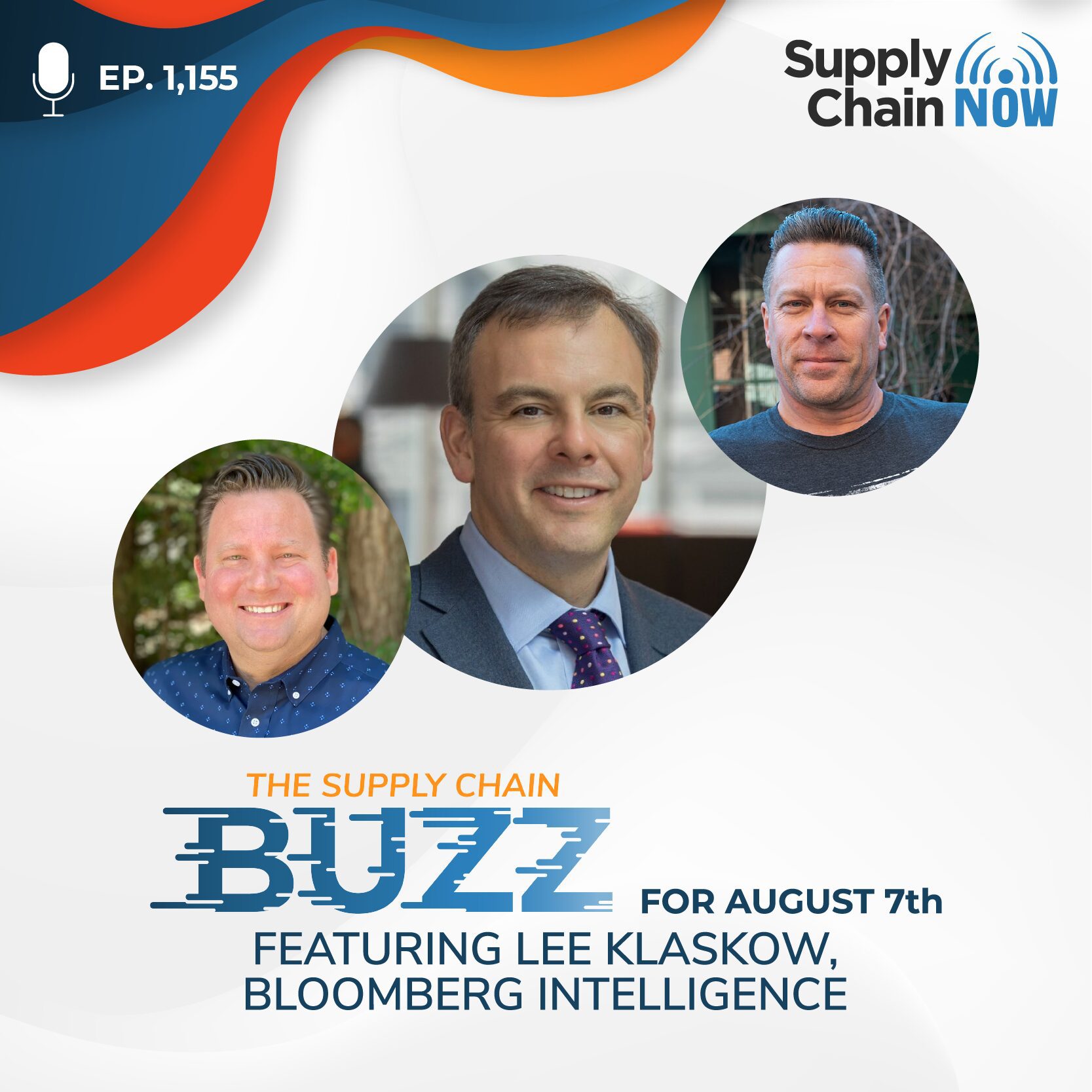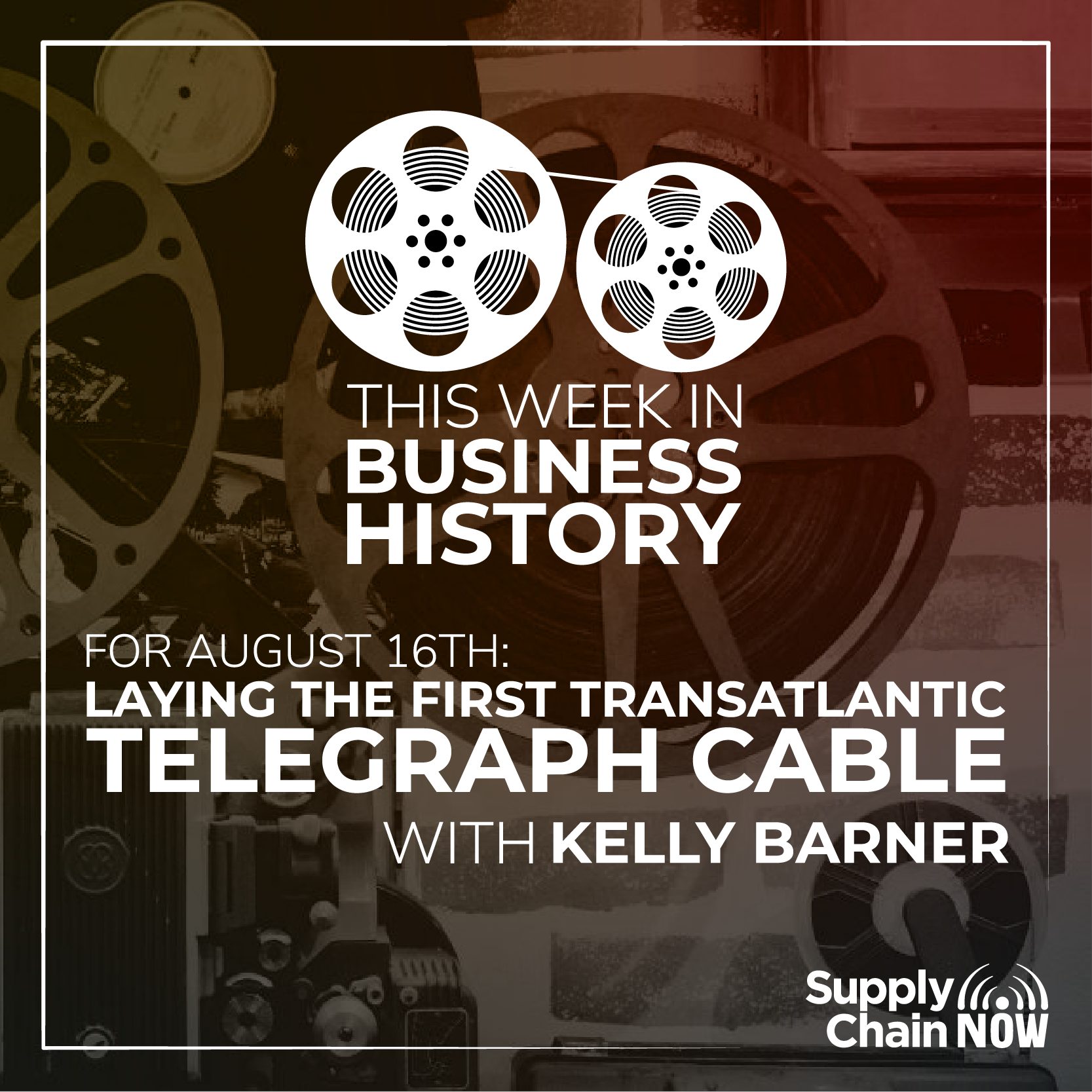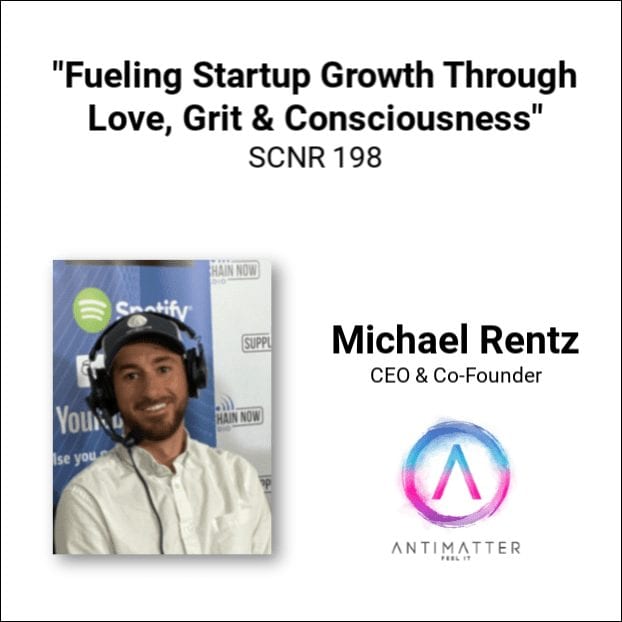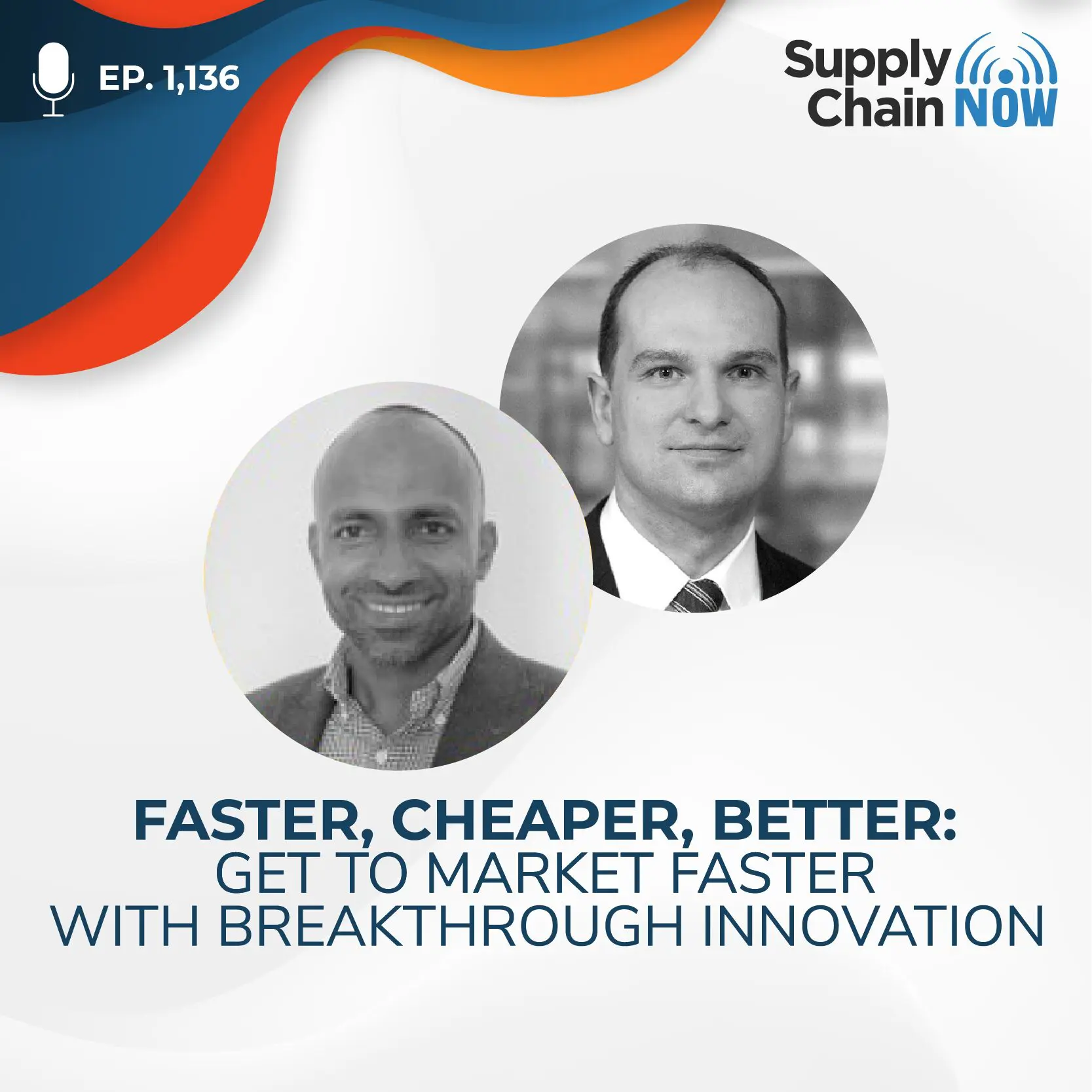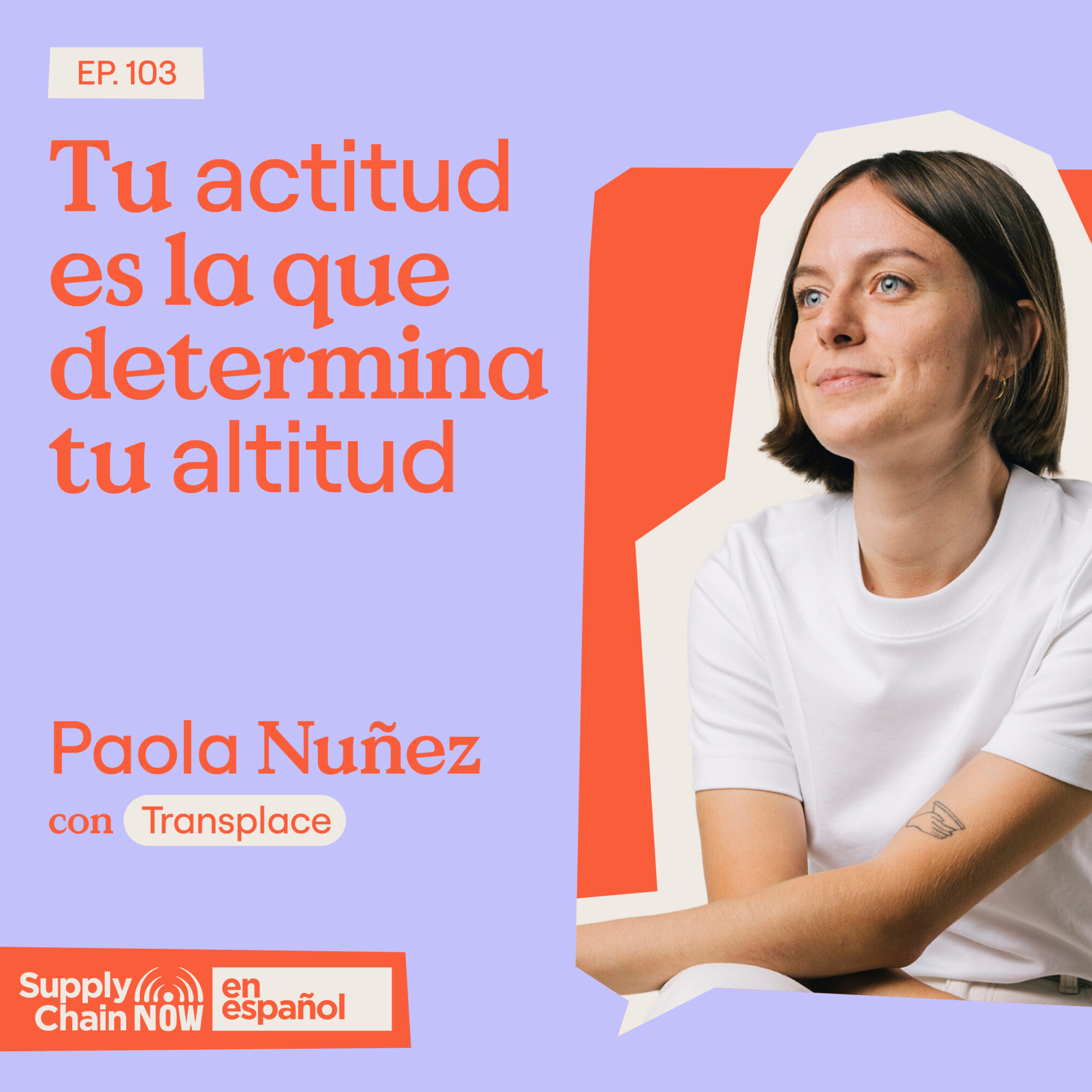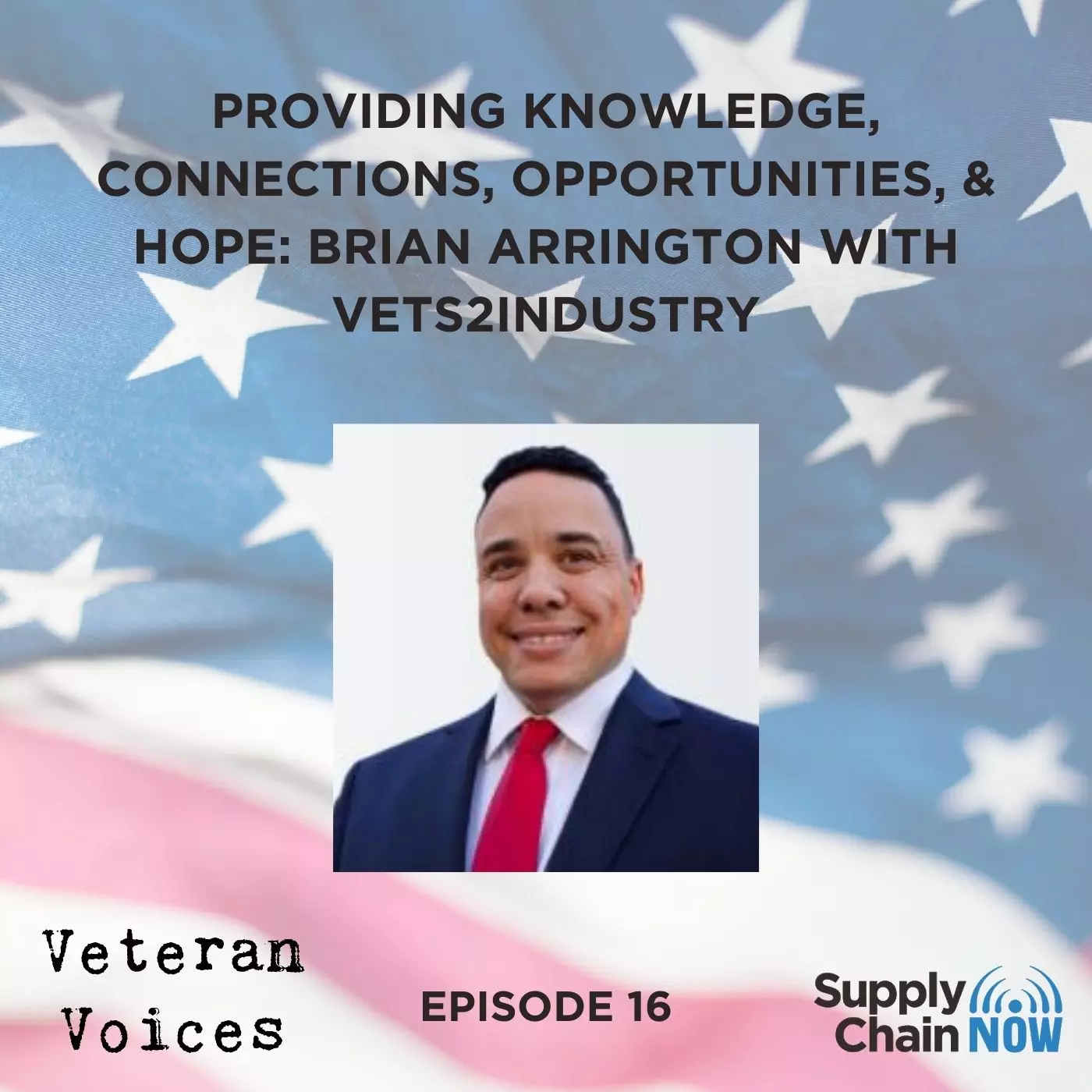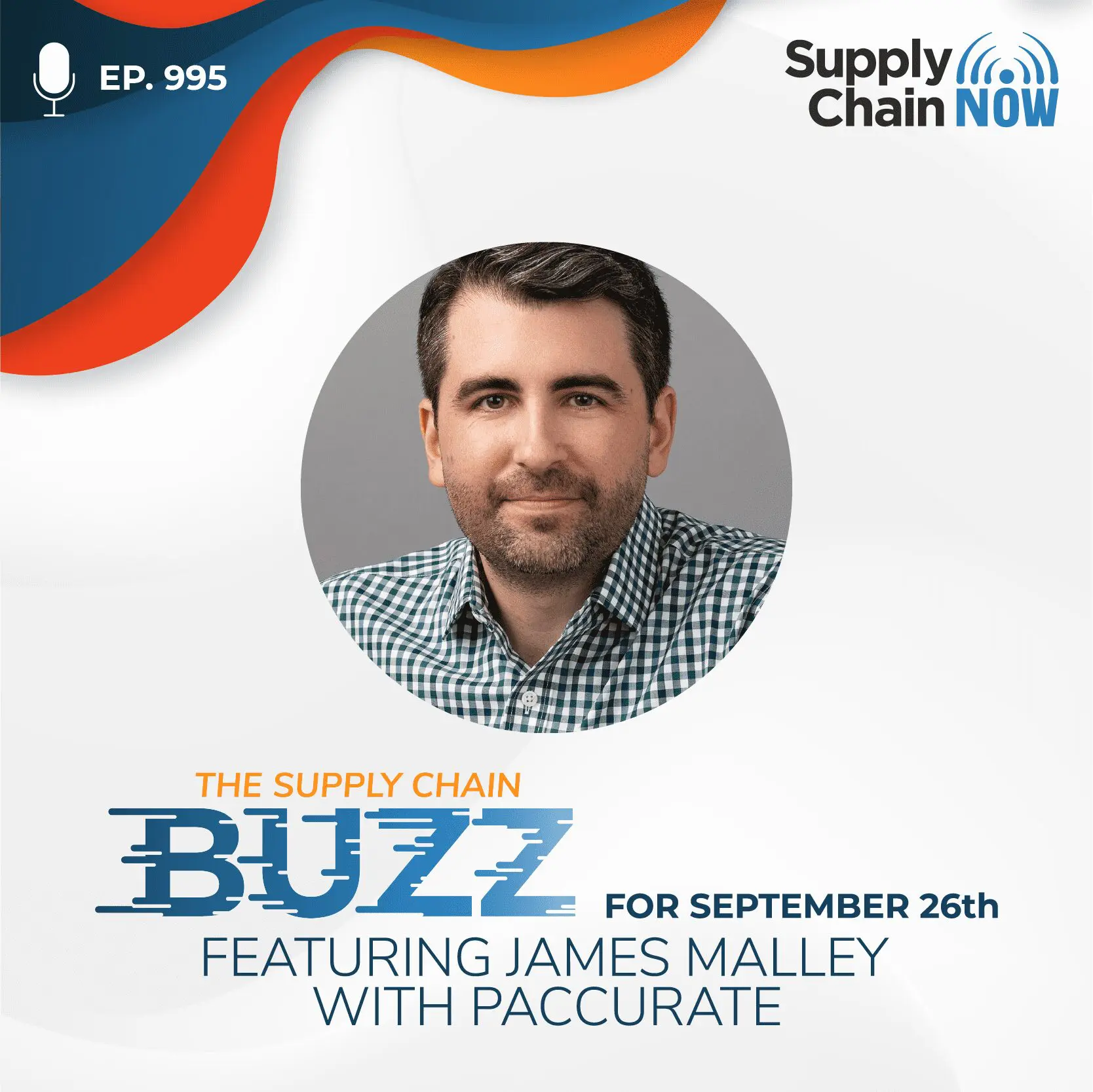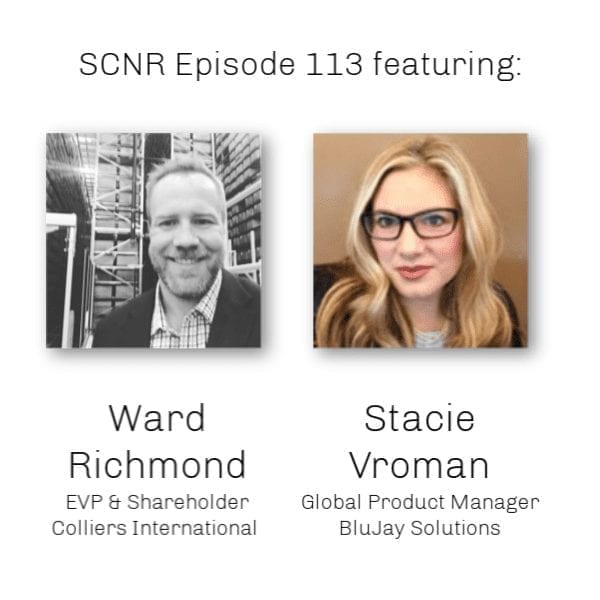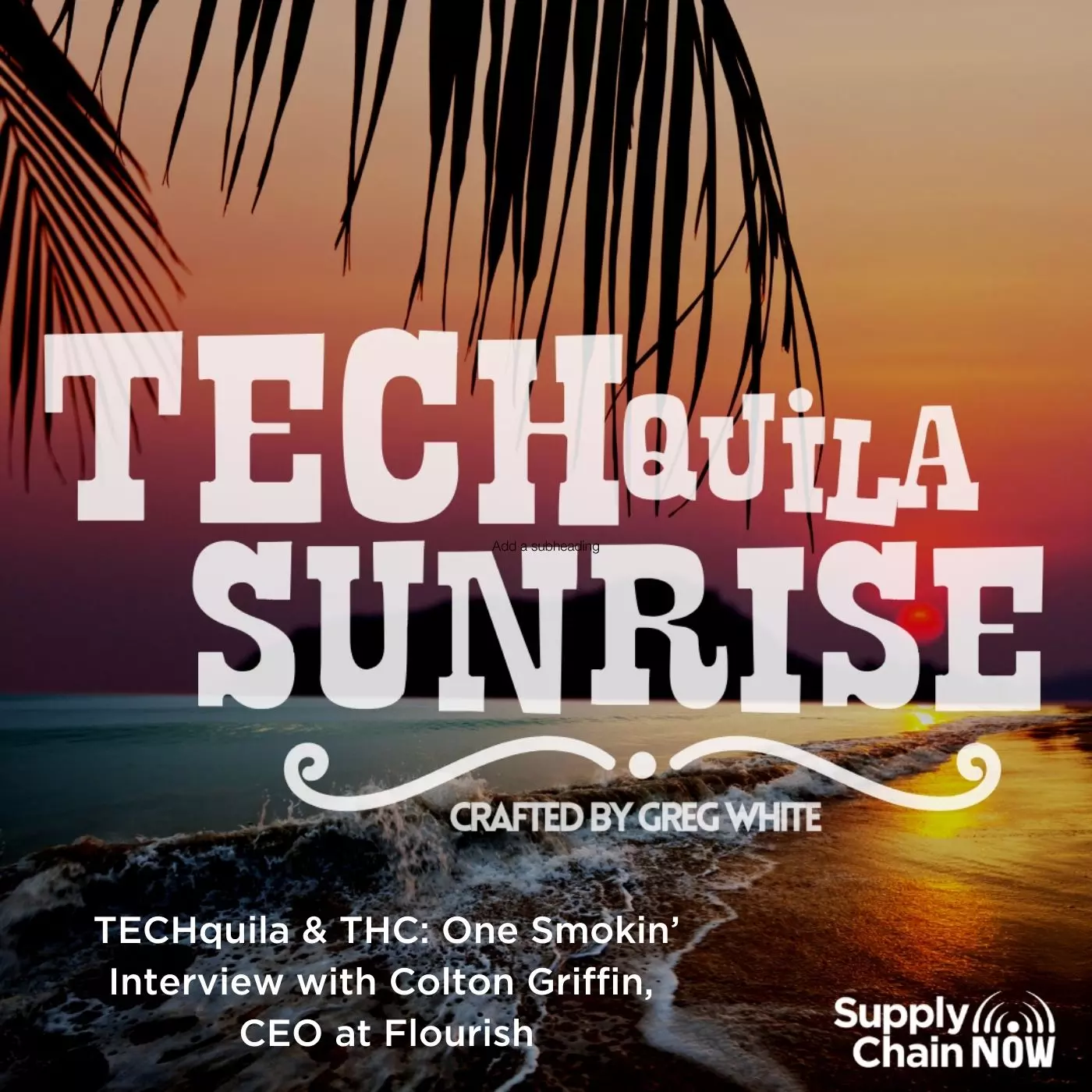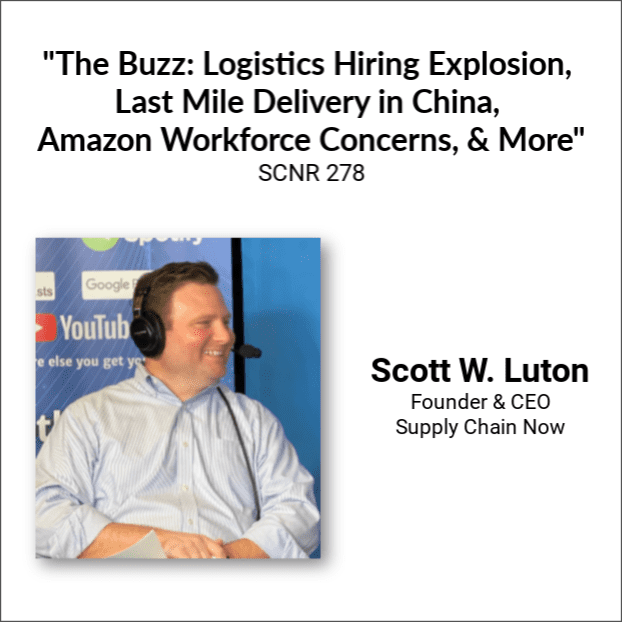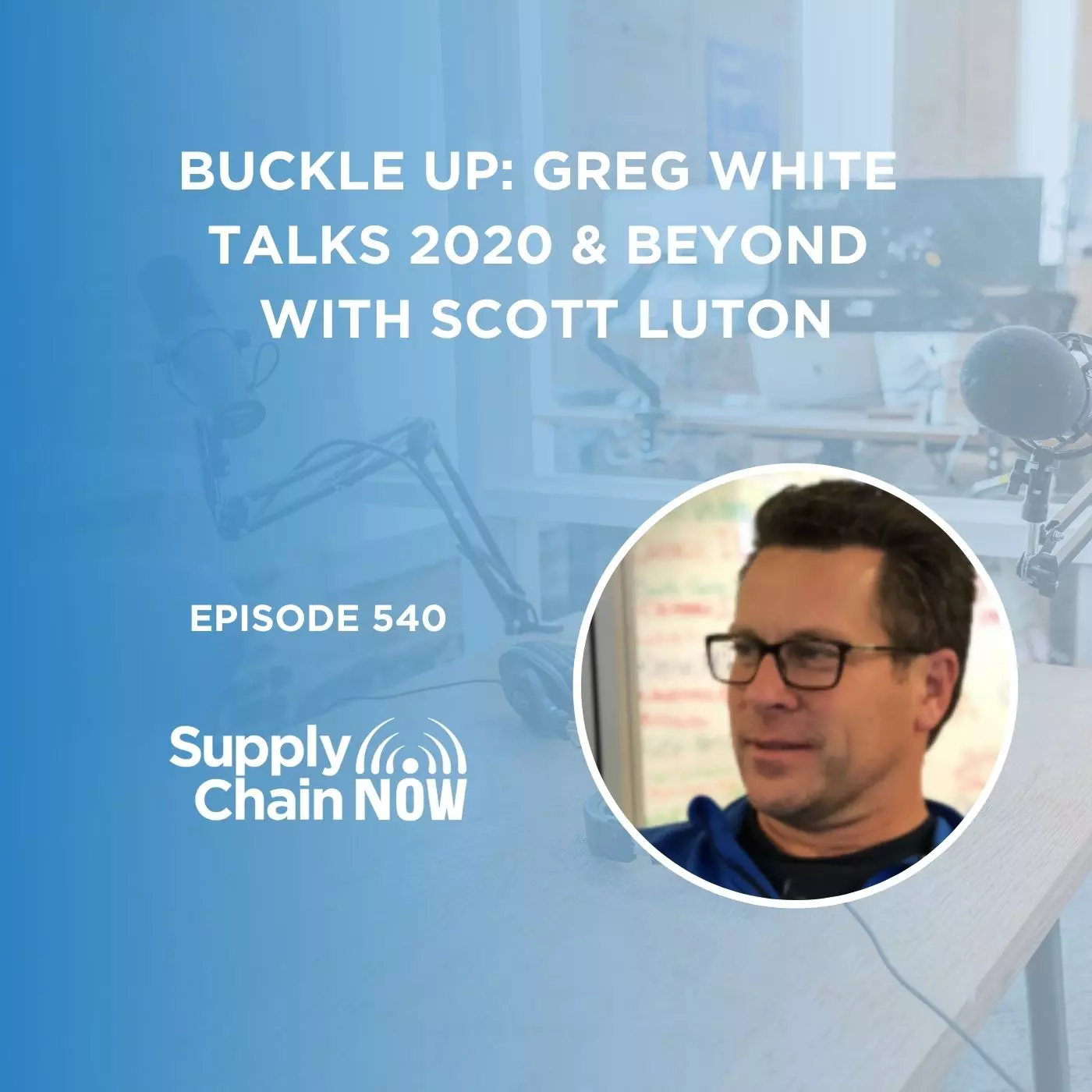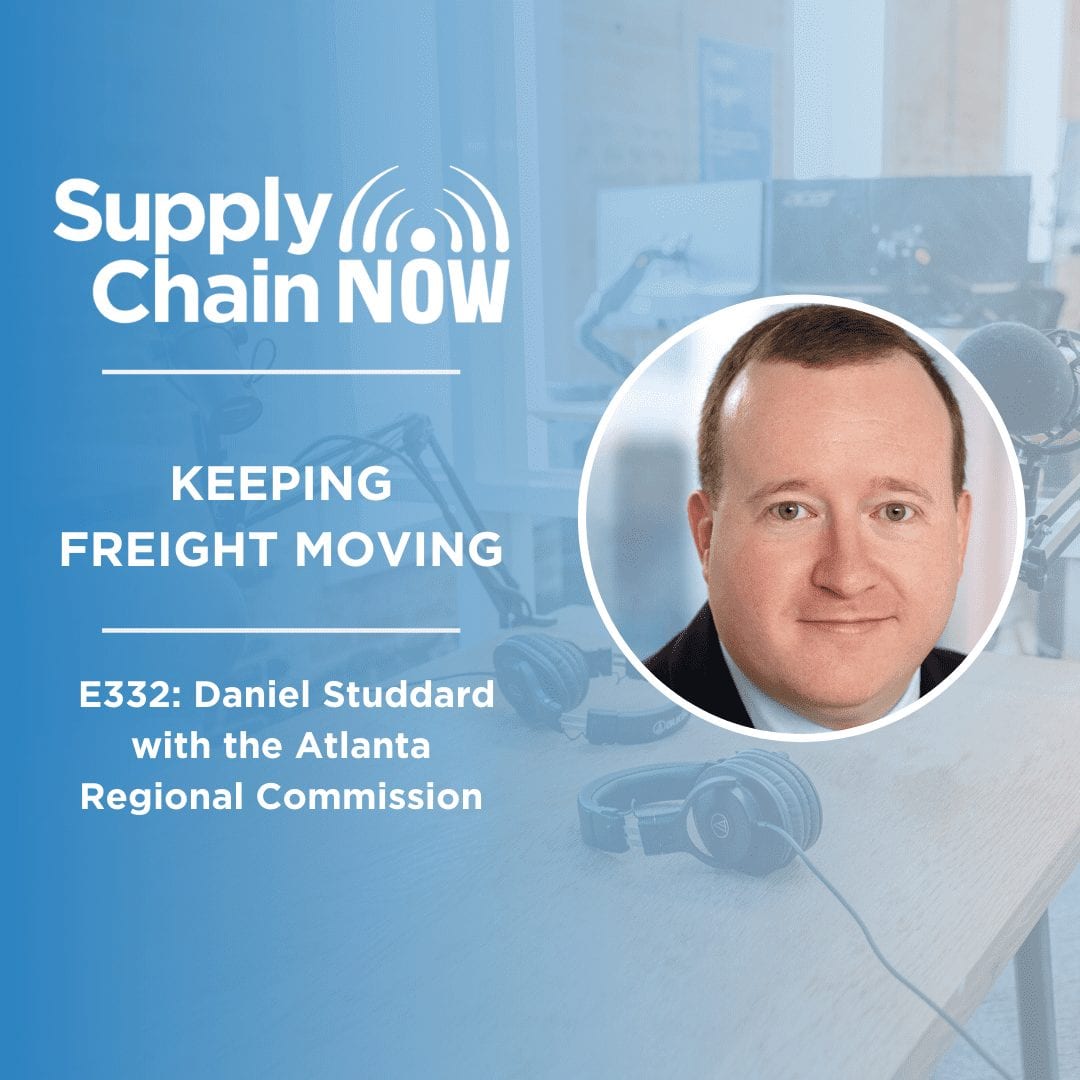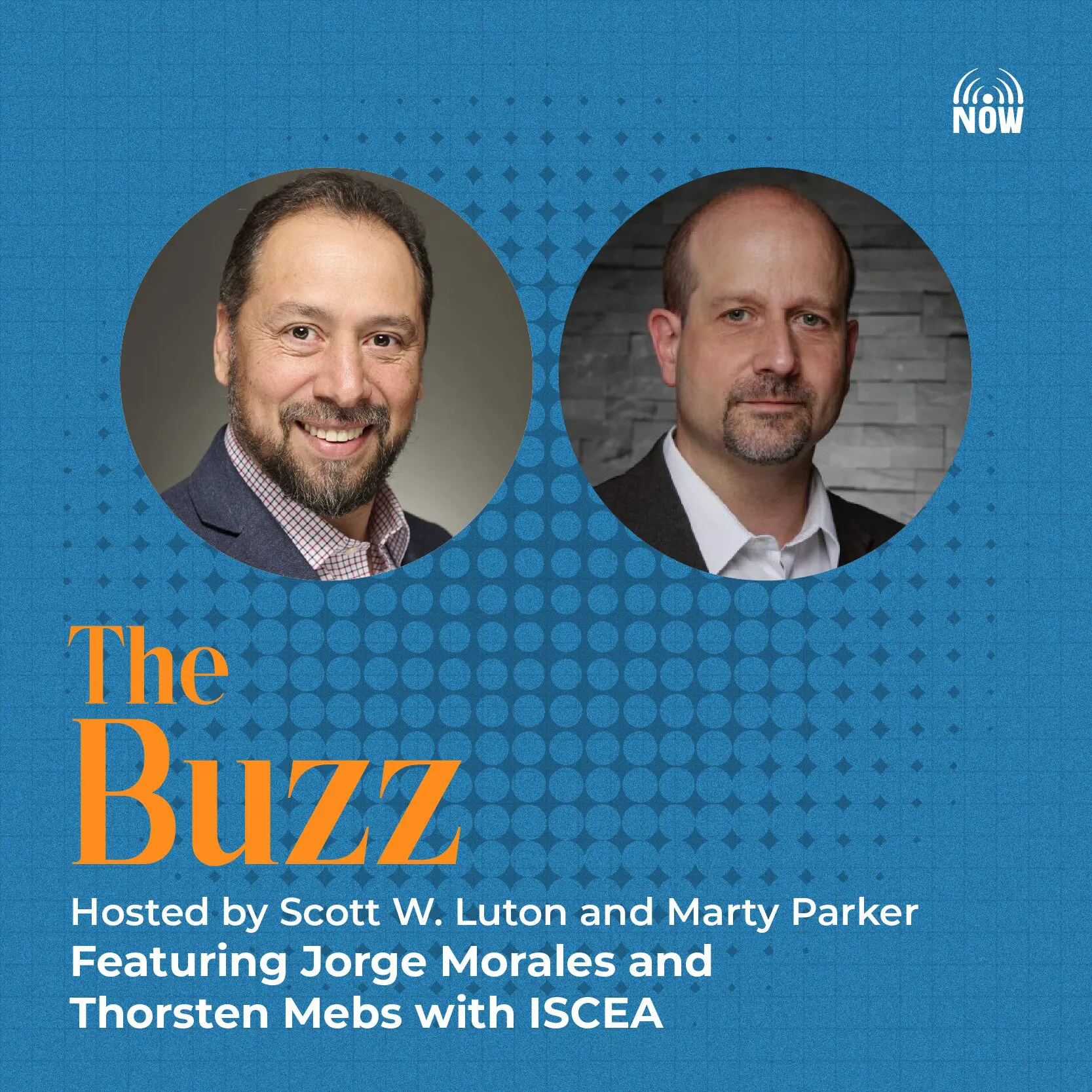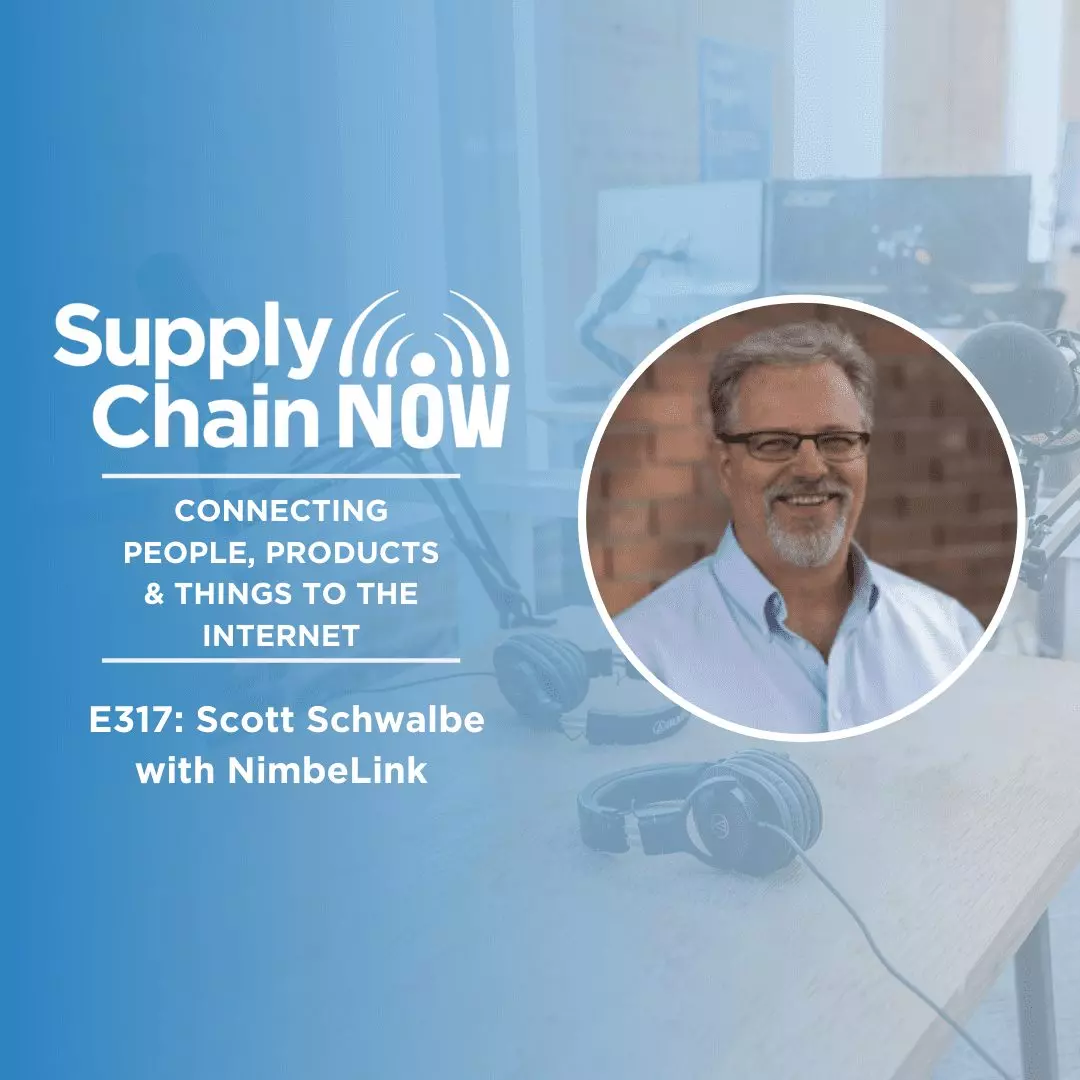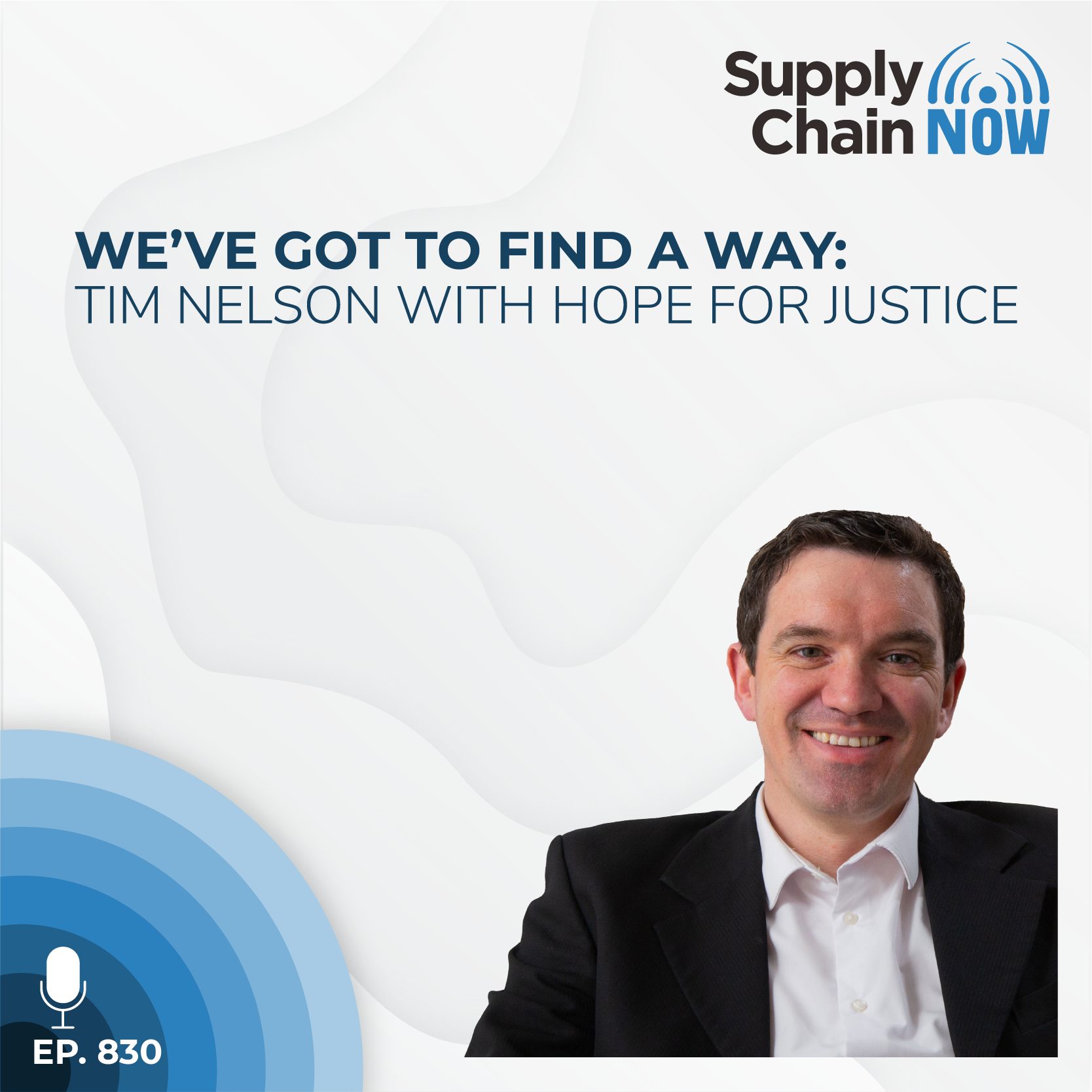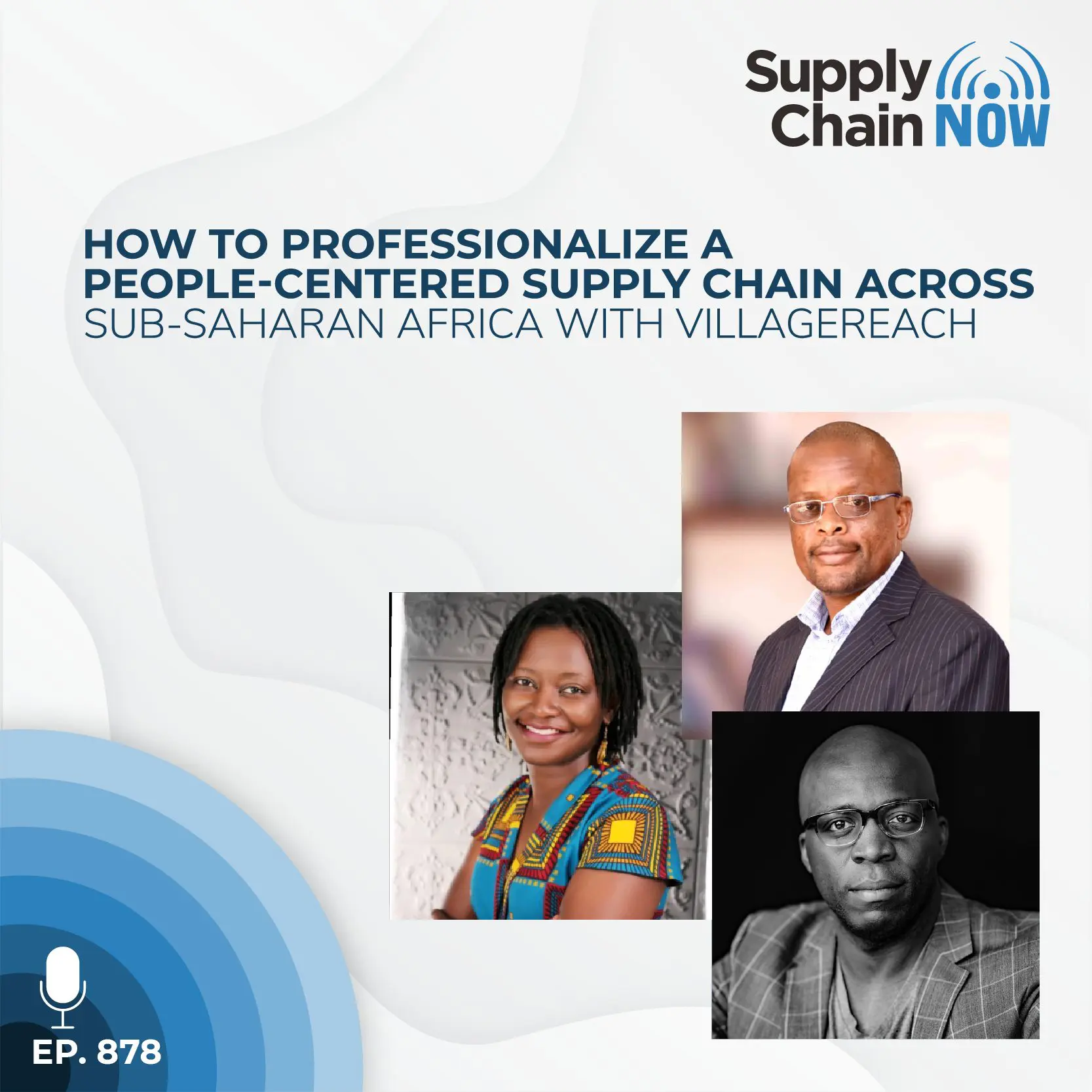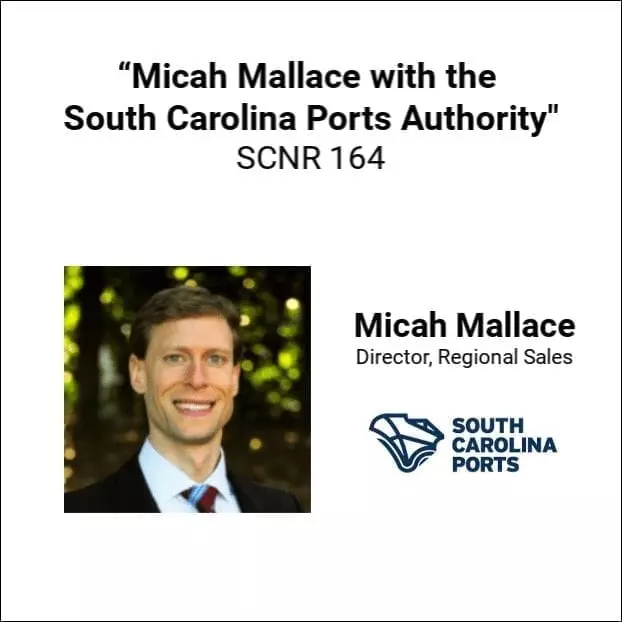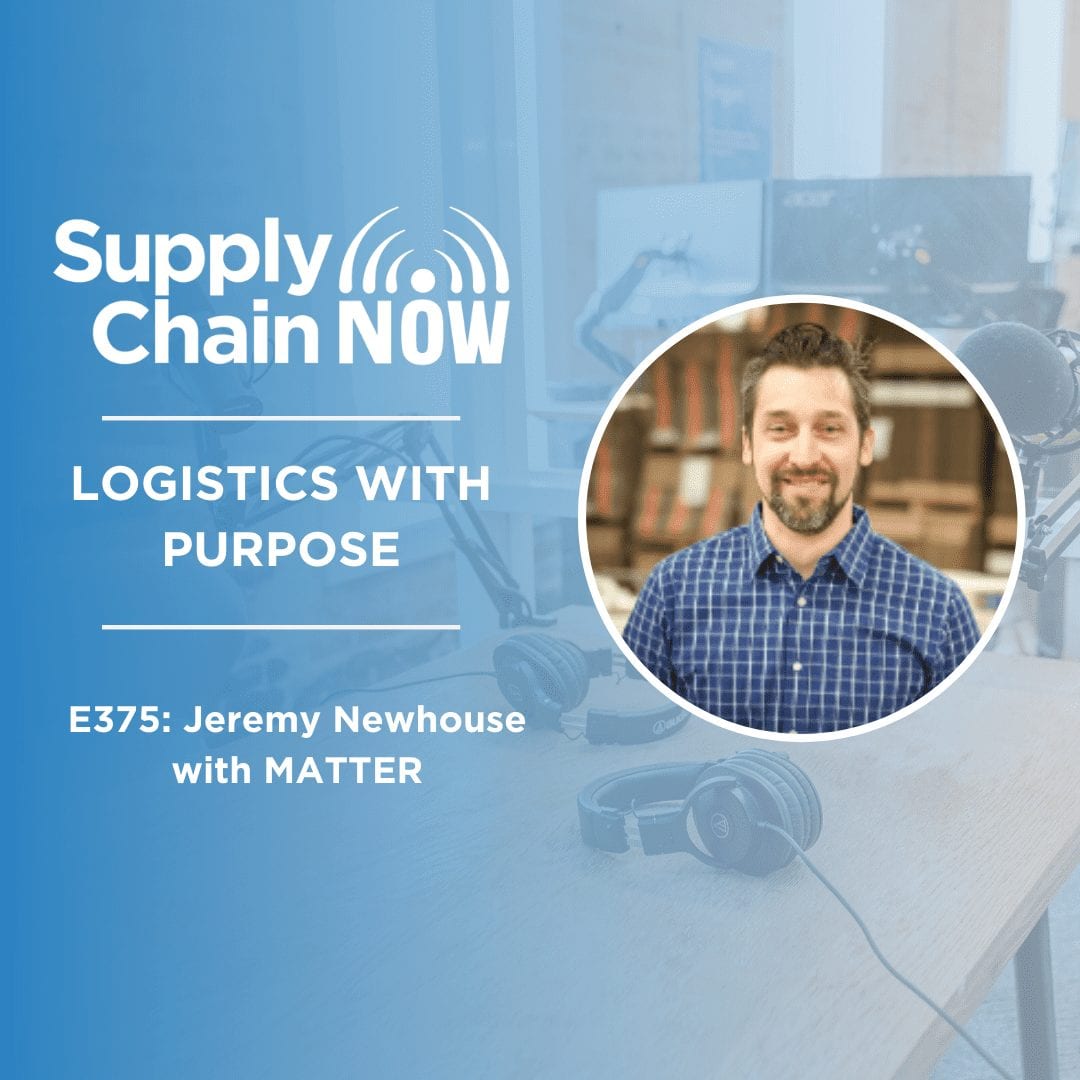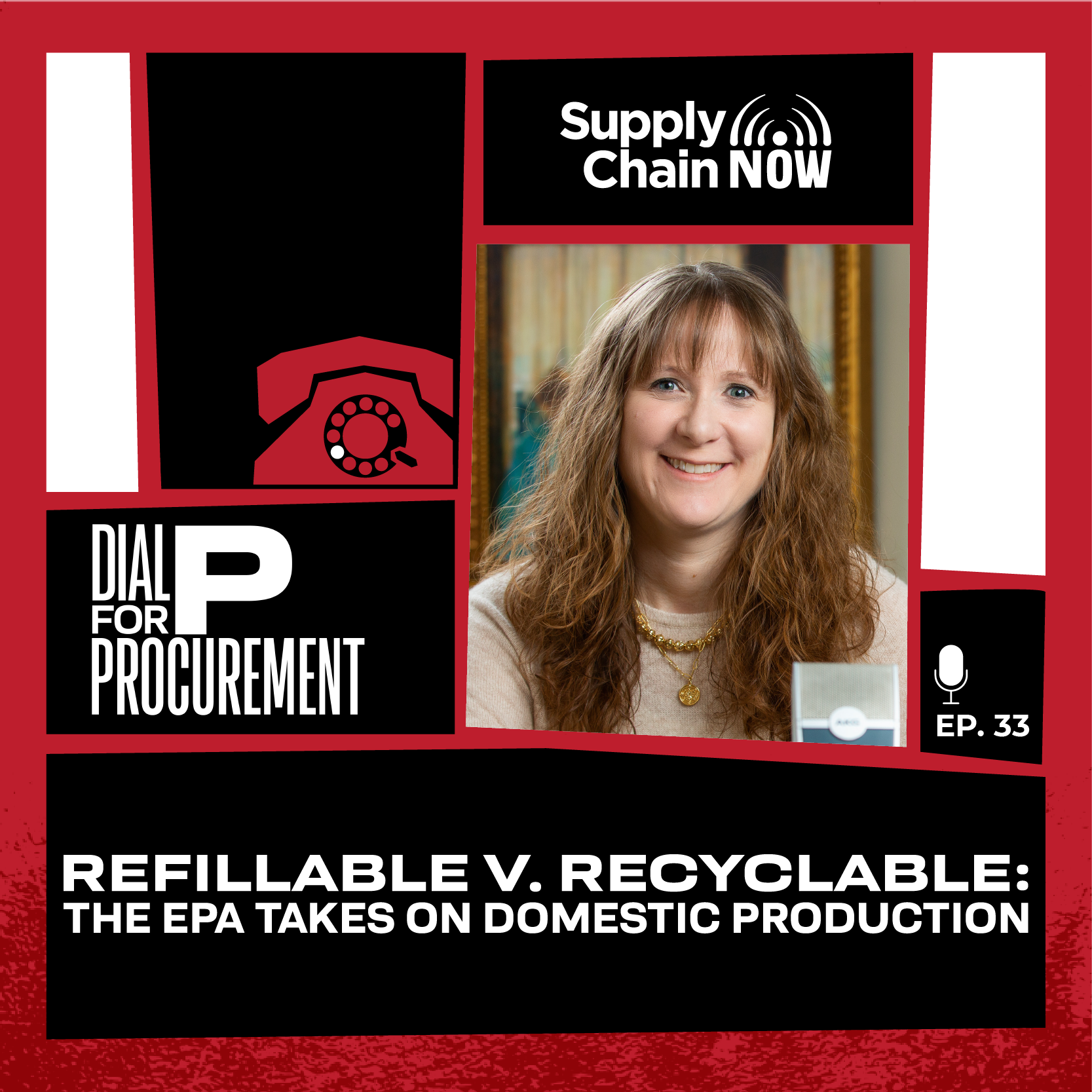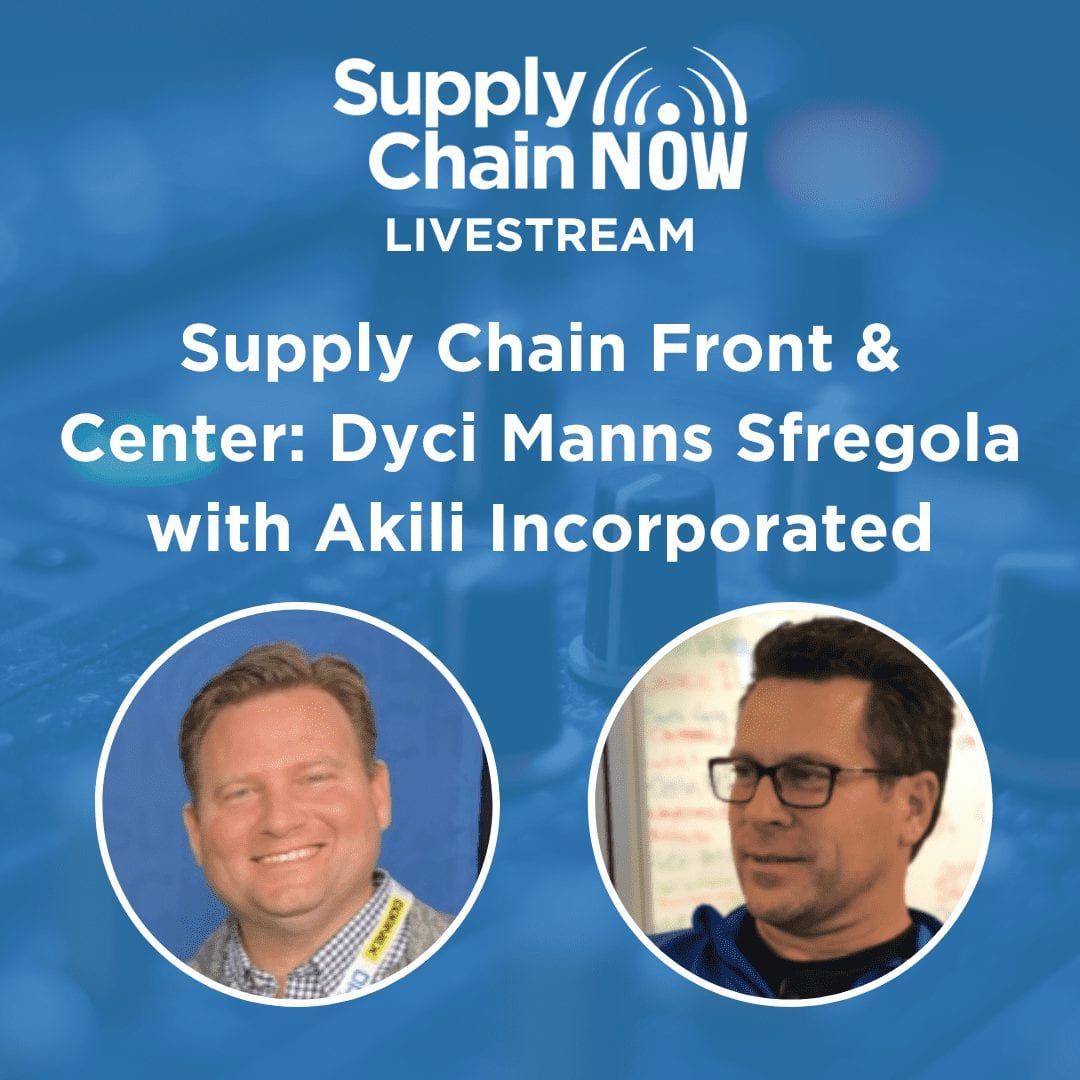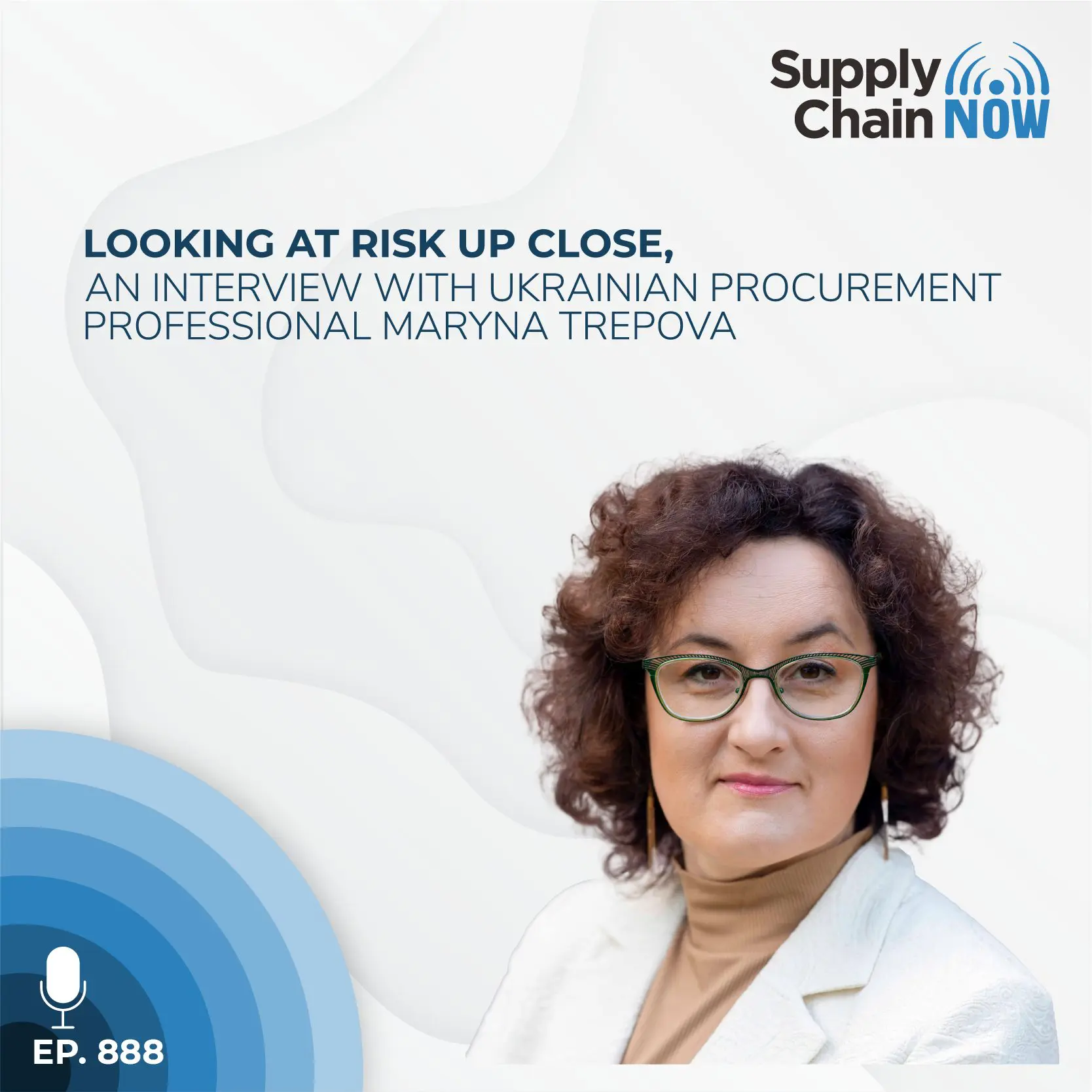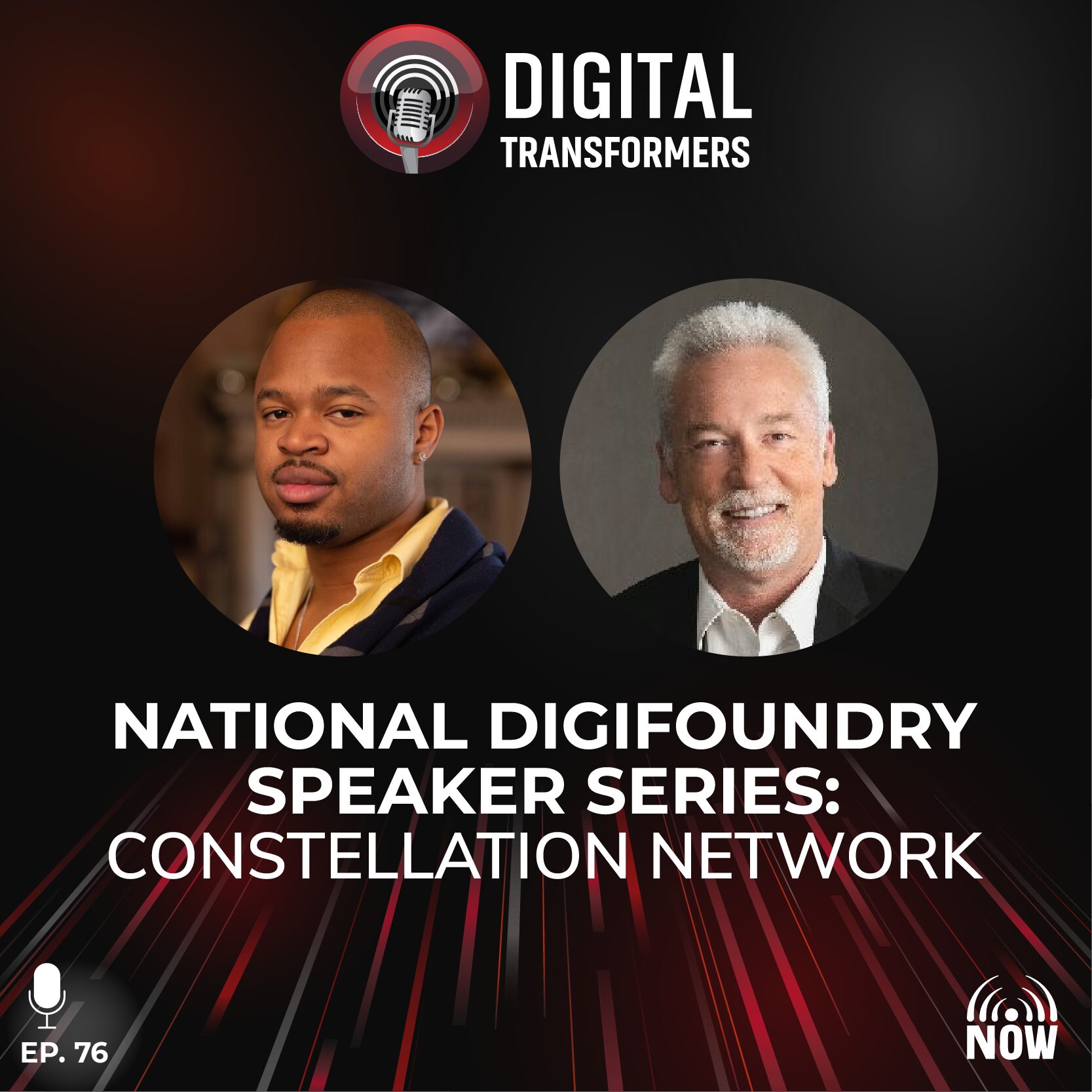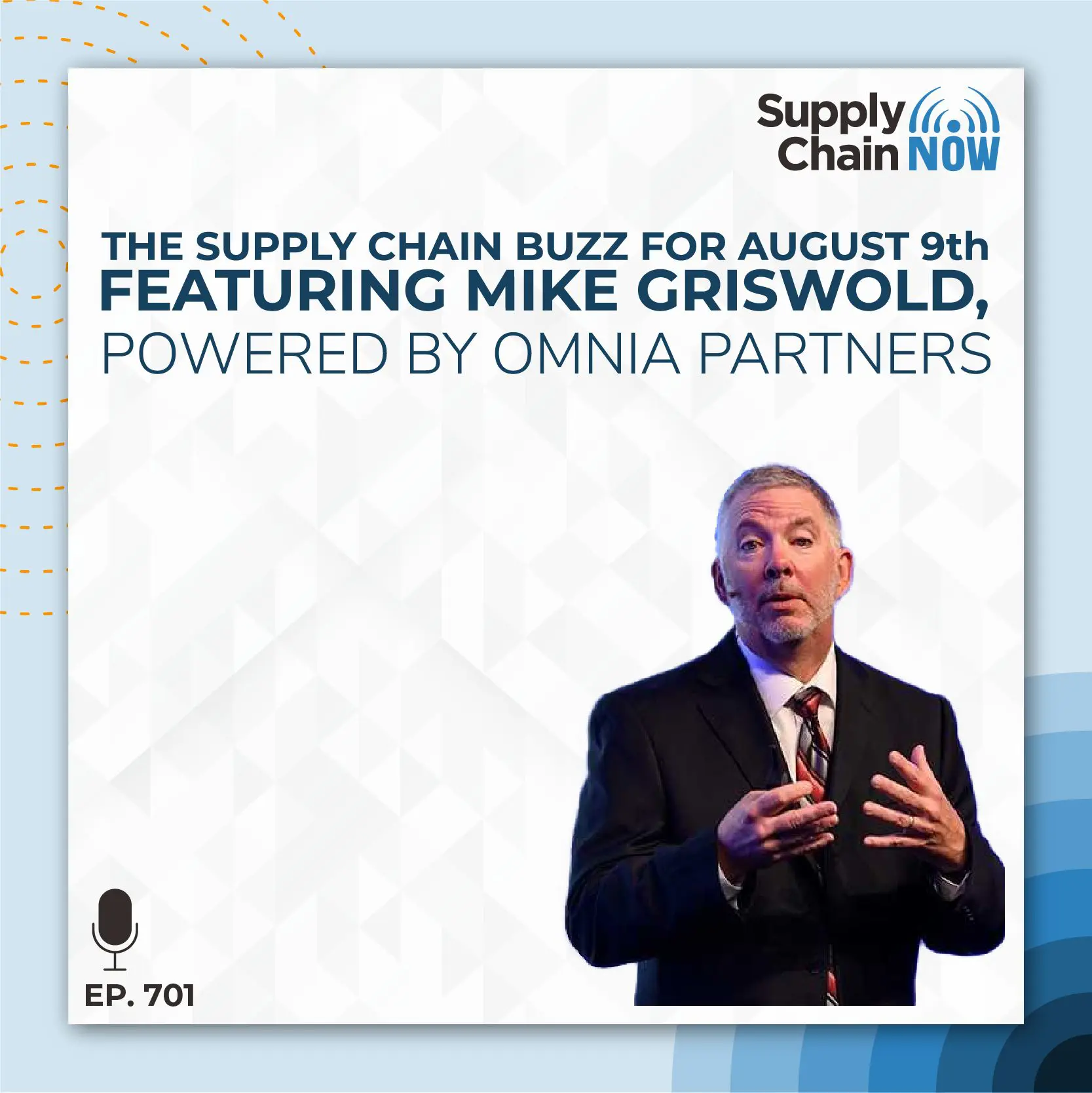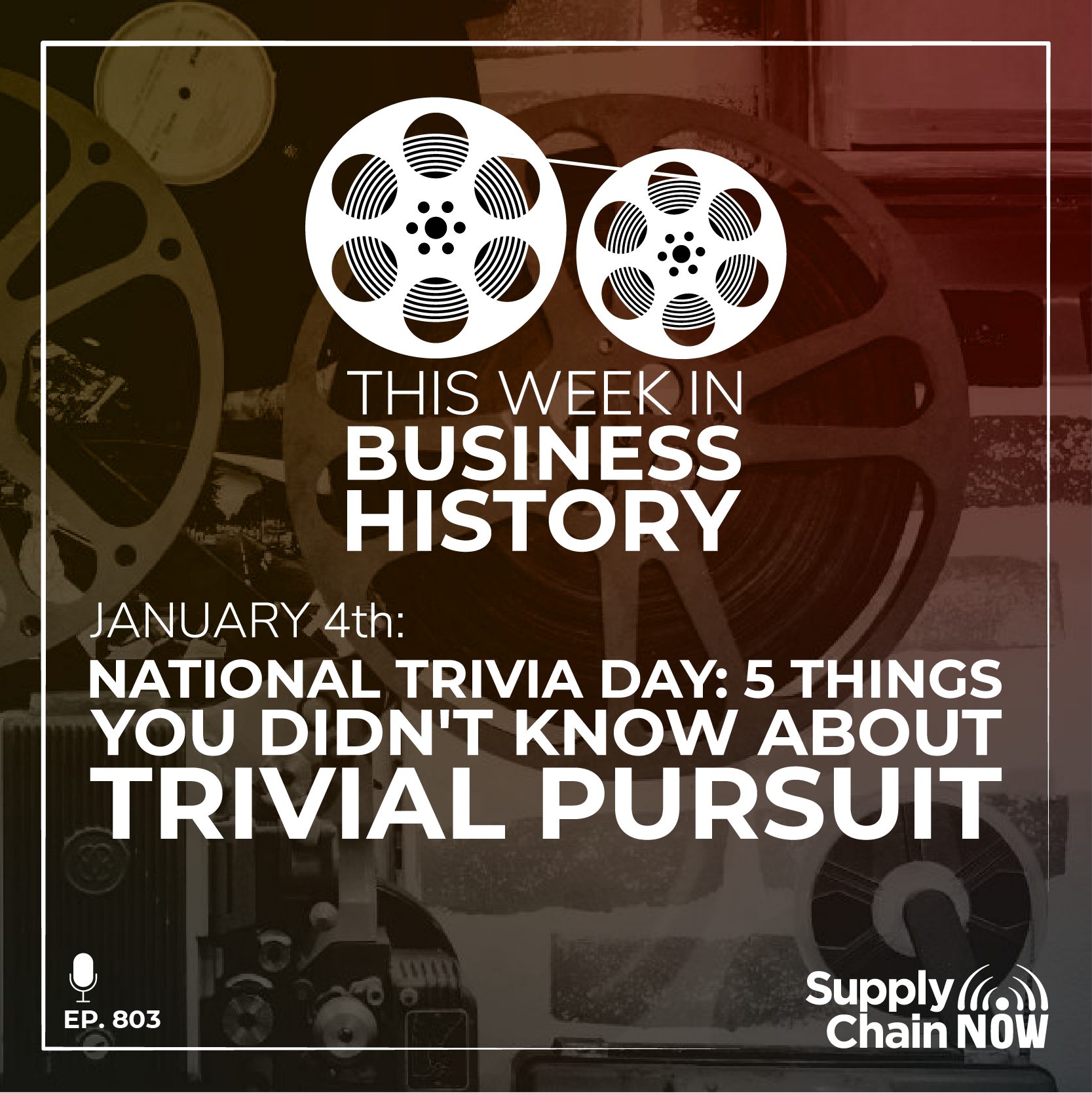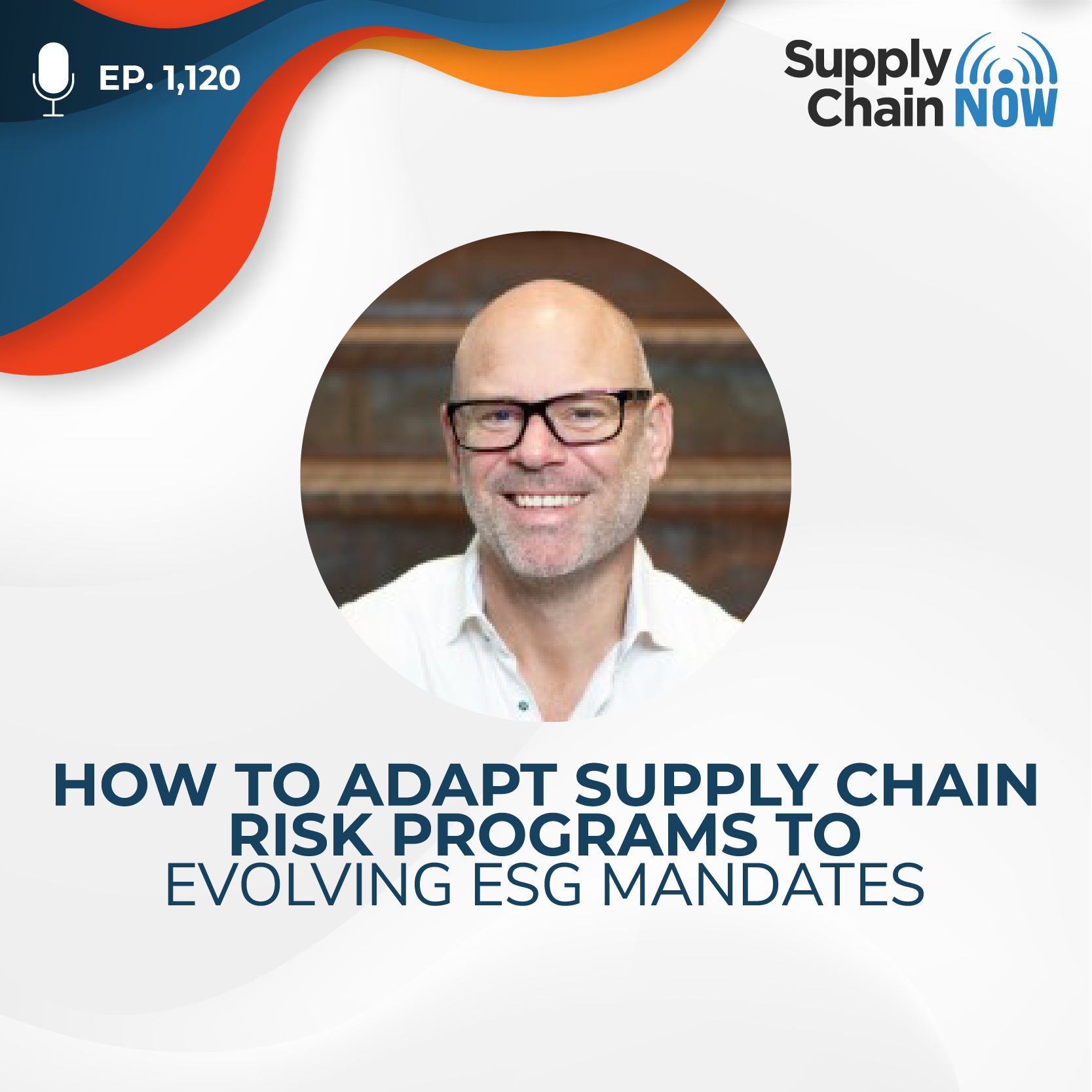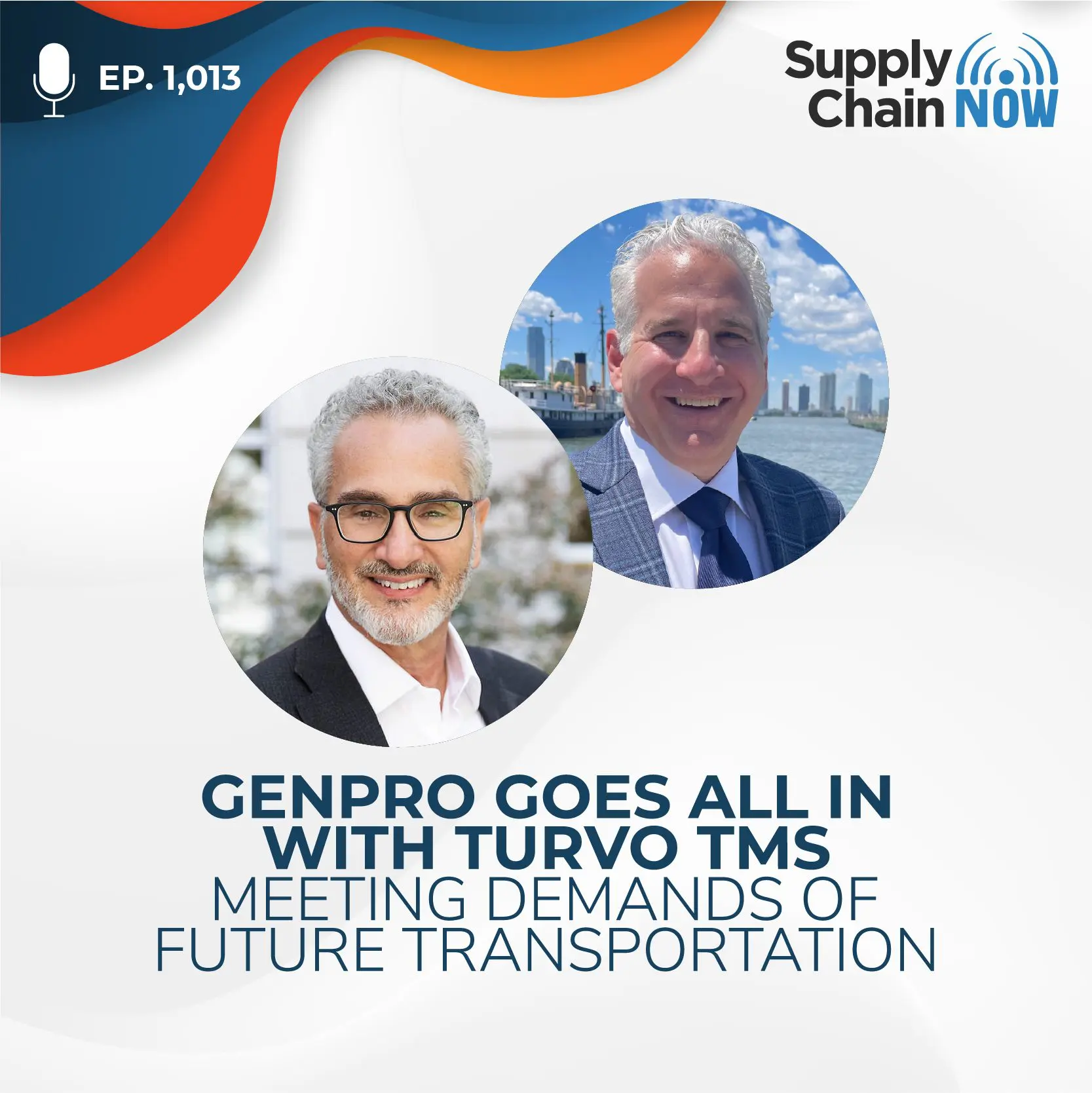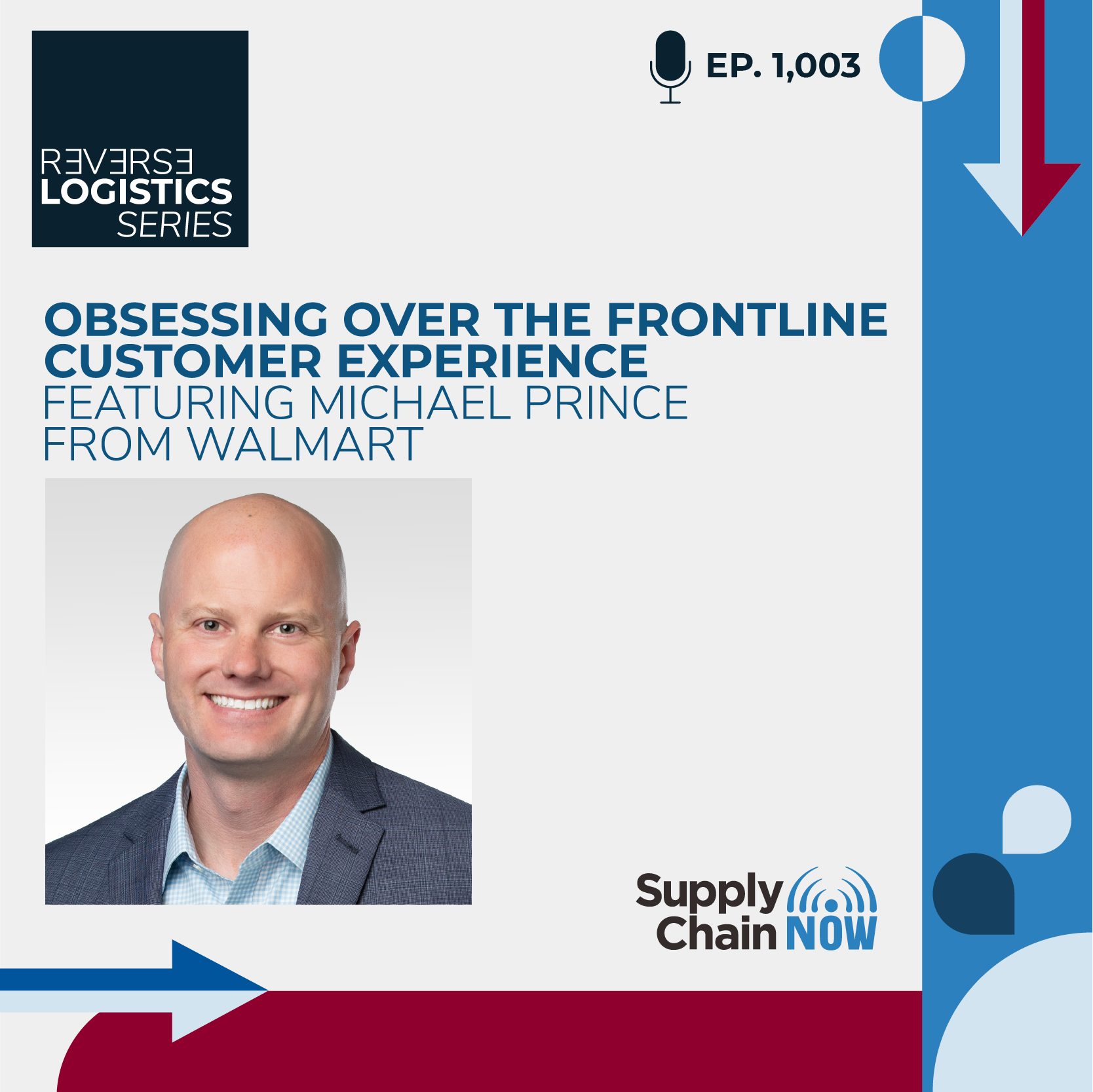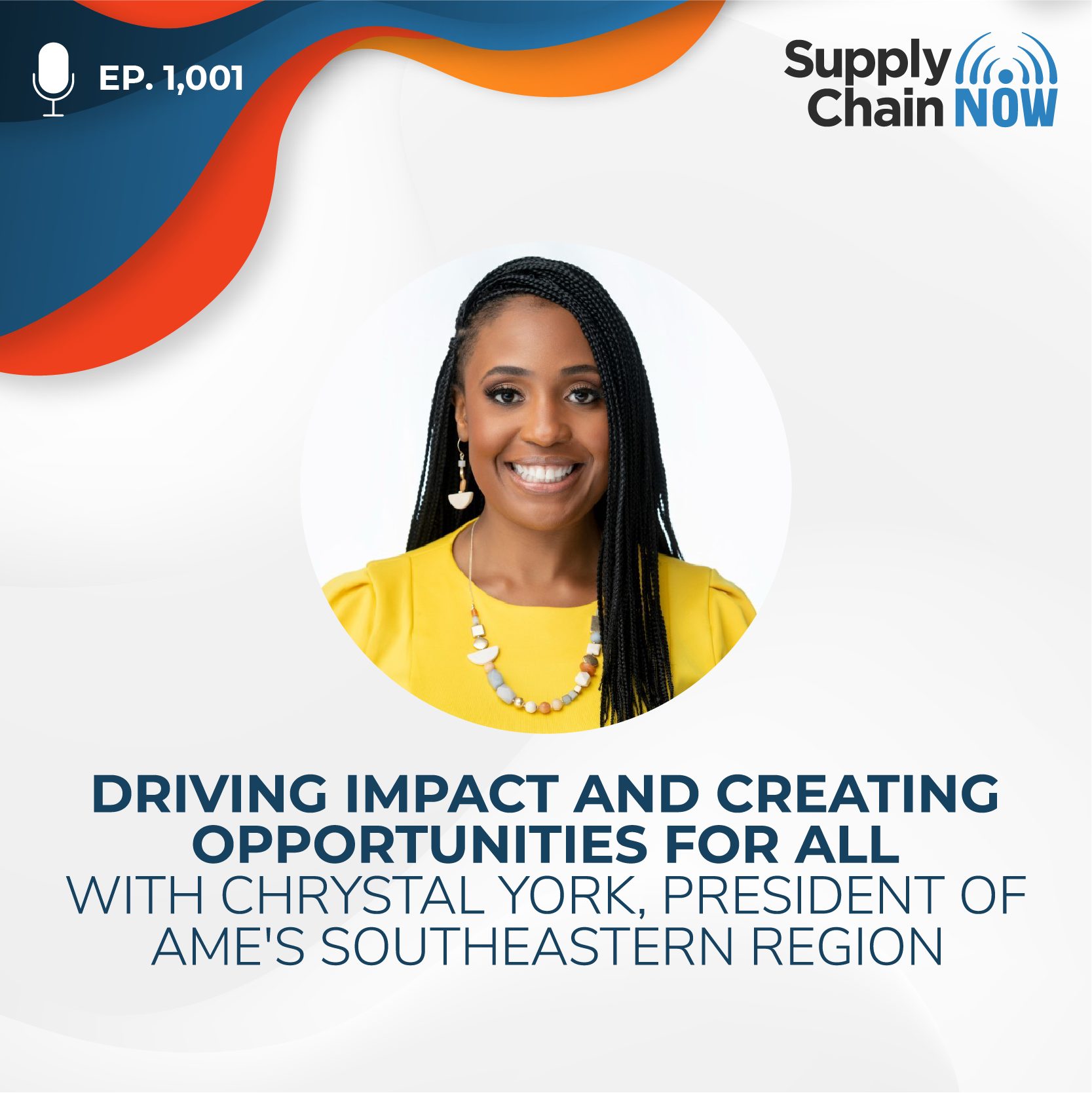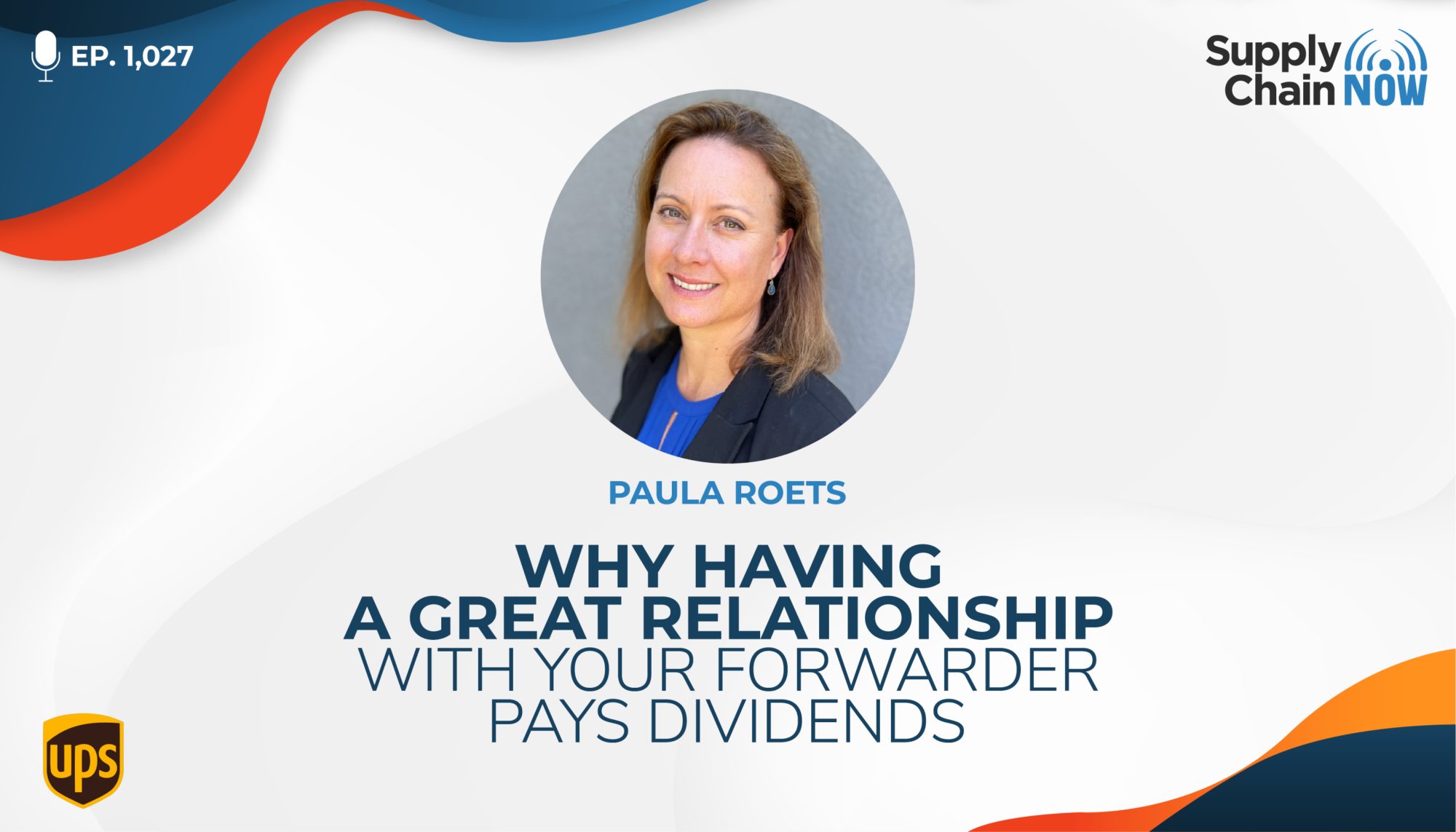
We're all a part of a team and no one person wins a match or a game, right? You have to have offense and defense, you have to understand how to play your position. The best players tend to be versatile.
- Paula Roets, Managing Director at UPS
Episode Summary
Moving freight across international borders has not been an easy task over the past few years. With chaos surrounding supply chains, cultivating a close relationship with your supply chain partners has become the key to success.
In this Supply Chain Now livestream, Paula Roets discussed what she has learned while serving as the liaison between shippers and their freight forwarder in times of tremendous uncertainty. She shared insights on how managing your freight forwarder – and your account executive – can yield better results for the entire supply chain.
Paula joined co-hosts Scott Luton and Greg White to discuss:
• How she helps teams uncover root cause problems while also putting out fires
• Ways that she has changed her approach to work over the last few years in response to rising complexity
• How to get beyond the ‘canned’ marketing pitch that so many account representatives are trained to give
Episode Transcript
Intro/Outro (00:03):
Welcome to Supply Chain Now, the voice of global supply chain. Supply Chain Now focuses on the best in the business for our worldwide audience, the people, the technologies, the best practices, and today’s critical issues, the challenges, and opportunities. Stay tuned to hear from those making global business happen right here on Supply Chain Now.
Scott Luton (00:31):
Hey, hey, good morning, good afternoon, good evening. Scott Luton, Greg White with you here on Supply Chain Now. Welcome to today’s live stream. Greg, how we doing?
Greg White (00:38):
We are doing quite well, aren’t we? I feel like I can speak for you, Scott, so yes.
Scott Luton (00:43):
Well, certainly we had an educational pre-show session. I learned that all – I learned about many of the cool things I’m missing out on the world of children’s reading progression. So, who knows? There might be a webinar on the same topic soon, huh?
Greg White (01:00):
Well, yeah. And, hey, I love our – in case anyone didn’t join yesterday, I love our new little backdrop here. It’s kind of cool. Yeah?
Scott Luton (01:08):
It is. And gosh –
Greg White (01:10):
We didn’t have to carve out a corner for the logo. We just put it all over this whole thing.
Scott Luton (01:15):
Well, and your comments will be the size of billboards, folks. You’ll be able to read it from across the room.
Greg White (01:21):
[Inaudible] people. Somebody say something meaningful or useless. It doesn’t matter.
Scott Luton (01:24):
But, hey, Greg, all kidding aside, we’ve got another homerun guest here today.
Greg White (01:29):
Yeah.
Scott Luton (01:29):
And on today’s show, we’re going to be talking about the importance of building trust-filled relationships with your freight forwarder, which will only help your efforts to get your stuff in the right place at the right time, at the right price with less headaches. So, Greg, it should be a great chat today, right?
Greg White (01:45):
Yeah. And talk about timely, right? I mean, I think, you know, we’re – one of the biggest struggles we’re talking to people about all the time with practitioners is exactly that. Where is my stuff, right?
Scott Luton (02:00):
Very right. Very right. Especially here as we move in – we talked about yesterday with our gang at the Supply Chain Buzz, which Alex Fuller and UPS showed up for and was one of our featured guests. You know, we’re now – we’re past Halloween. We are in primo shopping and shipping season. So, look forward to lots of lessons learned over the next few months. But, Greg, before we bring on our guest, we made a little promise of things that come. So, let’s say hello to a few folks. I want to start with Glorimar, who’s back with us. How about that?
Greg White (02:33):
Hey, I like that, ‘cause yeah, you’re right. You mentioned that before we came on, you can see the profile pic much, much better. Yeah.
Scott Luton (02:41):
So, Glorimar –
Greg White (02:42):
Was doing this before.
Scott Luton (02:44):
Glorimar, great to have you back with us. Really, we’ve enjoyed your perspective you share these live streams all the time, and good morning. And I hate that you missed The Buzz yesterday, but hey, you know what? It’s all on replay, on demand, at your fingertips. Hey, Katherine, great to see you here. Happy Tuesday, all. Big thanks to Katherine, Clay, Amanda, everyone behind the scenes making things happen on the production side. And Clay is commenting on the new look. And you can even see the diesel there. How about that?
Greg White (03:12):
Hey, there’s 10,000 people about to go change their profile pictures as you can actually see it.
Scott Luton (03:18):
Oh, gosh, that’d be a fun exercise for the next hour.
Greg White (03:20):
Yeah.
Scott Luton (03:21):
But here’s something –
Greg White (03:22):
We only charge $100 per shot.
Scott Luton (03:24):
So, earlier today I was able to catch up with Gene Pledger, Greg, one of our Supply Chain Now dear family members, right? We’ve enjoyed his contributions for a couple years now, probably. I found a new nickname. He told me he normally goes – he’s a drummer, by the way. He’s a musician. And he goes by Gino. Everybody calls him Gino.
Greg White (03:44):
Oh, my gosh.
Scott Luton (03:45):
So, we got a new nickname for GP.
Greg White (03:46):
Why would – yeah, he’s got to put that up there.
Scott Luton (03:50):
So, we’ll see if we can challenge him to do that. But, Gino, great to connect with you earlier today.
Greg White (03:55):
Why hide that? Come on, Gino.
Scott Luton (03:57):
Well, and he’s supposed to be sending us some YouTube of him banging away and as part of a music act. So, we’ll see. We’ll see if he delivers. Speaking of delivering, Greg, speaking of delivering, are you ready? We’ve got a heck of a guest here today. Are we ready to bring on our featured guest? Are you ready?
Greg White (04:17):
Speaking of delivering, let’s talk about freight forwarding. Yes, let’s go.
Scott Luton (04:22):
Amen. So, with that said, I want to introduce our guest today, Paula Roets, managing director of Enterprise Accounts with UPS Global Freight Forwarding. Hey, hey, Paula.
Paula Roets (04:37):
Hey.
Scott Luton (04:39):
How are you doing?
Greg White (04:40):
Just whoosh in.
Paula Roets (04:40):
I know. I felt my hair go back just a little bit. I’m in. I’m ready. Right? It’s good stuff.
Greg White (04:47):
Perfect.
Scott Luton (04:47):
Well, it is so nice to see you finally. We’ve really enjoyed our pre-show conversations. Learned a ton already. And really, I want to start there. Before we get into the heavy lifting, heavy shipping, whatever you want to call it, I want to give folks the opportunity to get to know you a little better. So we’re going to start with a fun warmup question because, Greg, today is a very special national holiday, which will have parades from coast to coast. No, I’m not talking about the end of election season. I’m talking about National Harvey Wall Banger Day. Yes, that’s the thing on November 8. Now, I’ve never had one of these, but a couple of thoughts here. It’s a famous drink that really hit it big in the ‘70s, made with vodka, Galliano liqueur, and orange juice. And while there’s a couple different origin stories the go-to is, it was made for a surfer who consumed evidently a few of these, and then ran into the wall as he or she was trying to exit the establishment. So that’s where the name supposedly held from. So here’s the question, Greg and Paula, Paula, you’re, we’re going to start with you. You know, as things are starting to get colder and you’re in the Denver area, that gorgeous part of the country, what is one of your go-to adult beverages that you can sip on and relax a little bit with?
Paula Roets (05:59):
Gosh, well, when the weather starts getting cold, I like warmer beverages and things like that. So, I definitely like a good hot apple cider. And depending on how the week is gone, it may or may not contain some of that vodka in the first Harvey Wallbanger that you have. But I definitely – that’s a good one to warm me up.
Scott Luton (06:17):
I love that. So, it’s not about letting, you know, having one version that may have sat and turned for a lot longer and a version that might be more suitable for the whole all the kids and all. It’s more about a microwave, the vodka, and depending on the week that we’ve had. I’m with you, Paula. Greg, your comments and your go-to beverage?
Greg White (06:38):
Yeah. Well, as it gets cooler in the south, which is only relative, right, I like – I shift to drinking Guinness, which is perfect for cool weather, I mean, right? It’s made for Ireland, which is frequently chilly. So, it’s super tasty. Hey, I’m the Harvey Wallbanger thing, I would love to see how the guy who claims to have built, created the Harvey Wallbanger, which for anyone who doesn’t know, is basically a screwdriver, vodka, orange juice, Galliano and Bernadine. So, I bet it’s pretty tasty. I’d like to know how, while he was running his mixology school in Hartford, Connecticut, he also invented the Harvey Wallbanger in Manhattan Beach, California. So, I doubt it. Like most drink, lore, it’s a 100% made up, but I’ll tell you what, they have had a hard time finding anyone else to claim credit for it.
Scott Luton (07:34):
All right. So, Harvey, if you’re out there, we’re challenging to come forward, the real Harvey out there. Come forward and tell us a real story.
Greg White (07:40):
Real Harvey.
Scott Luton (07:42):
So, Paula, so – and I love the apple cider approach by the way. I’m looking forward to things getting a little bit chillier here and imparting with that in a fire pit, which is a great, relaxing evening. Let’s continue getting to know you a little better, Paula, and really enjoyed the conversations. Tell us, you know, where did you grow up, Paula?
Paula Roets (08:03):
Yeah. So, I’m originally from Southern California, not the San Diego fun, but the lower Los Angeles, so more of the valley kind of area. And then, I decided that I wanted to change a pace. So, I actually went to school in Arkansas ‘cause there couldn’t be more two different cities than LA to Arkansas. And then from Arkansas I knew that I was, I needed to try something different. And ironically enough, I went online, I said, “Where, what company has offices all over the world, all over the country, so maybe I can move and do something?” And, I came across a small freight forwarder and I moved to Chicago, Illinois and I spent a couple years there. And then, I ended up getting promoted and being able to move to Denver, Colorado, which is where I’m at today. And we joke, I never got back to California, but I went west, came back further west, and it’s a great city and a great state to be stuck in for all the right reasons. Right?
Scott Luton (08:50):
Well, and that’s what you where I’ve been picking up on a couple of our earlier conversations. You’re a big fan of Denver. Is it a mix of the people out there, the weather, the activities? Is it a little bit of all that?
Paula Roets (09:02):
It is. It’s a little bit of everything. The only thing that Colorado’s missing is water. We need a great body of water. Right? We have no ocean like Greg. We’re missing that great body, but we do have beautiful mountains, beautiful winters and summers, but the water is what’s missing, so yeah.
Scott Luton (09:17):
Well, big fans of Denver. And let’s talk about – let’s shift gears kind of your professional journey. So, and you’ve already shared a little bit of that, but tell us more, what else would you add in terms of what fueled you to end up in your current position?
Paula Roets (09:34):
Yeah. I think I’ve kind of heard a lot of people. I sort of just got stuck, right? I started in it. It got interesting. There was always something to learn and grow and changes. And all of a sudden, you know, 22 years later, I’m still doing it and still learning and figuring it out and coming up with different challenges. Right? When we all can figure out the consumer, maybe we’ll have a little bit more, better insight to how the supply chain works, right? ‘Cause that has seemed to impact us all lately.
Scott Luton (10:01):
Ah, so true. Greg, your thoughts there?
Greg White (10:04):
Well, I mean, what a classic story. And how many of us, you know, Gen Xers or whatever, thought I want to go into supply chain, right, ‘cause – it wasn’t even called supply chain back then. In fact, it was called a bajillion different things back then if you could even put it all together. So, you know, we have this whole sort of generation of people who kind of backed into supply chain. I think it’s important for us to recognize is that as we adapt this and make it more data driven and process driven, and you know, a lot of, Paula, what you’ve addressed already, right? Well, pre-show you addressed – we need to recognize that there’s a lot of practical knowledge out there that came before the data that can inform that data that can help us run supply chain better. But, what I – you know, my immediate thought, Scott, was, man, I think they made a movie called Footloose. And she’s like, Ren, right? She comes – she’s the hip kid from California who comes to the southern Midwest and teaches them all how to dance and then goes and stays with her aunt in Chicago, right?
Scott Luton (11:12):
Paula, is there any truth to that? Any truth to that, Paula?
Paula Roets (11:14):
The fast-talking Californian went to the slow-talking Arkansas. And I’ll tell you it was, I’m still not slowed down from that process. So, I have to watch that, especially when I get moving and I get a little impassioned for that kind of piece. And what’s ironic, and I will add this in because I think that this is what is beneficial, right? From all of us who are not classically trained in supply chain or whatever they called it, is that those backgrounds I think make us all stronger today because of that. You know, I took one operational class, but the marketing, the international finance, all of those things, I think is what makes this community so wonderful at the end of the day.
Scott Luton (11:49):
Oh, Paula, you’re speaking our language. And, Greg, I know we got a couple of questions on your end, but really quick, I think that diversity of backgrounds – in fact, I was just talking this morning to someone that came from the school of hard knocks, right? They didn’t go down the academic path. They’ve been doing big things with supply chain –
Greg White (12:04):
What campus, Scott?
Scott Luton (12:07):
One of us can relate, right?
Greg White (12:07):
[Inaudible] for that.
Scott Luton (12:08):
That’s right. And I think that to your point, Paula, I think that’s a great teacherism, that is what all that variety and diversity of perspectives and paths and walks of life is what makes global supply chain such a wonderful and stronger industry despite what we’ve been through over the last few years. All right. So, Greg, where are we going next with Paula?
Greg White (12:33):
Let’s go back and talk about California. I’m just kidding. Sorry. No, I think – I would love to, you know, and you know why Paula. Let’s talk about some restaurants and think. Nah, as long as we’re going to talk about freight forwarding, I’d love to maybe have you share with our audience how you at freight forwarding, you personally, I guess, how you interact with shippers and your team and all of that sort of thing. Just give folks an idea of what your day’s like.
Paula Roets (13:05):
Yeah, absolutely. So, I do this a lot, right? We all sit on Zoom talking to people. My kids joke with me all the time. They go, “Mom, you’re always on the phone.” And so, I know there’s so many great people to talk to and so many things to do. Who doesn’t want to do this, right, at the end of the day? So, yeah, I’m a part of the enterprise group. We’re split into a small and medium-sized business and an enterprise. The enterprise is just what you would think. It’s household names, contract manufacturers, those sorts of things. And really all day long I get to troubleshoot, talk to people, figure out where freight is, how to get it moving, where the data is, what happened here. So, it’s a constant learning. And I wake up every single morning with not a little bit of a plan, but it always seems to fill up the day. So, yeah.
Scott Luton (13:45):
Yeah. So, Paula, really quick, as you share that, I bet your relationship with the customer is like, you know, peanut butter and jelly, right? ‘Cause that’s what it sounds like. Are you spending a ton of your time as you own that problem solving problems, you know, new and old, big and small, a lot of times you’re interacting with the customer, is that right?
Paula Roets (14:04):
Oh, absolutely. And I think one of the biggest challenges and things that we’ve seen, right, is the fact that we have gone from like decentralization, centralization, we’ve insourced, outsourced, with all the stuff that we have realized that so many supply chains have become so customized over the years that you really have to talk to people and you have to engage with them. And you have to find out what they’re dealing with and where they’re headed so that way you can help support them. And that the only real way to do that is to talk to them at the end of day, just kind of like you guys do. Right? Get out and hear what’s on the street.
Scott Luton (14:36):
I love that. Greg, I want to get you to weigh. I want to get more specific with how Paula interacts with the shipper itself, right, the organization, the ship itself, the UPS in a second and get her expound on that. But, Greg, what – I know was music to your ears what she landed on a second ago, man, spending time, talking with the customer, listening to the customer. What are they trying to get accomplished, you know? I bet that’s music to your ears, right?
Greg White (14:59):
It is. And I think what’s fascinating is how – golly, how do I say this? How entertaining that must be to be to hear the questions you hear. I imagine, especially with the shippers, it’s okay, where the hell is my stuff? When’s it going to get there? Right? What’s the hang-up? So, Paula, I don’t know if you know this, I worked for a retailer a while back, a big retailer, now over Riley Automotive. And that was, we had a whole group of people we locked in this dark room called Expediters. And that’s what they did, right? Okay. So, I can tell by that laugh that you interact with those people a lot, and all we would do is open the door and go, “Where is my stuff?” And of course, the next call comes to you. So –
Paula Roets (15:51):
Well, and now we have so much stuff, Greg.
Greg White (15:53):
I mean, if you could talk about interaction, right? I mean, you have to be not just a problem solver, but you probably have to calm things down a little bit a lot of times because there’s a lot of stress when you don’t have complete visibility or you’ve gotten that, whether you even have the visibility, if you’ve gotten that call from a merchandiser or CEO or whatever to go, where is that shipment, right, your immediate reaction is to maybe lash out.
Paula Roets (16:21):
We do count to three a lot.
Greg White (16:23):
Yeah, good.
Paula Roets (16:24):
And then we address, right? But absolutely. And, it’s not only is it finding the distressed or whatever’s problem it is, but saying, “Wait, what’s the root cause? How do we stop this thing from happening? While we’re fighting this fire, how do we get this done over here?” And, I tell you that definitely, it’s different for every customer, for every personality. And sometimes it is hard to take a step back and breathe and realize you’re not getting that container out of the 15 or the thousand stack. You’re not getting – there’s no way to call up and get prioritized for some of those. And so, sometimes it is a matter of coping, right, at the end of the day and working through it. And to Scott’s point, right, is that trust on the end that we’re doing everything we can to help it keep moving.
Scott Luton (17:06):
So, let’s pick it back up there then, Paula, ‘cause, you know, as we opened up with this is all about the value of building these really trust-filled relationships so that we can, you know, find our stuff, move our stuff more effectively, more efficiently, you name it. You’ve spoken a lot – you and Greg both have spoken a lot about the relationship with the customer. Let’s shift over. Let’s shift gears to the company and maybe, you know, multi-level relationships. You know, the company that ships stuff, the UPS, what else would you add in terms of the value that you bring to the table there?
Paula Roets (17:39):
Right. I think that that ability to be a diverse provider, right, to be able to not only be able to move the freight, but to give you the visibility on the technology to be able to have the communication, to have it globally right in the footprints and have the local support that’s needed. And to really be able to blanket customers is very helpful because if you put it all with one person, then that’s the only person who can answer your question, right? To Greg’s point, it wasn’t one person probably for expediters, it was a whole room full, right? That it absolutely takes a village at the end of the day to move it. And, that’s what I think is so wonderful about what we do, right? Although we’re trying to get better with AI and everything else, a pamphlet can’t teach you how to do supply chain, right? A textbook at the end of the day only does so much. It’s really getting out there and touching and feeling it and trying to figure out what some of the nuances are that we can personalize, really.
Scott Luton (18:28):
I love that ‘cause it’s not about, Greg, what color of Model T do you want. You can have black or black. It’s not about that, you know, one or two options. It is a world of different, personalized services would [inaudible] ended on there. Greg, your thoughts? And then, I know you and I both are curious about how things have evolved, right?
Greg White (18:48):
Yeah. And the reality is sometimes your only option is to wait, right? But at least if you understand your 15th or your 1000th or you’re in a small stack or in a big stack, right, at least if Paula and her team can communicate that to you, you know where you stand and you have a good idea of some semblance of hope, I guess, right? Is that light at the end of the tunnel? Is it hope or is it a train? Actually, a train could probably get you out of that stack. We could get a train –
Paula Roets (19:18):
More trains would get you out of that stack, right? You’re true.
Greg White (19:22):
Right. Which is a whole nother set of issues right now. And I’m curious about that because at things have changed a lot over the last, almost three years now. I don’t remember why, but it seems like things have really changed a lot, so, and maybe over the course of your career obviously as well as more technology has gotten involved and sometimes deployed, sometimes not, the state of the ports and depots and all of that sort of thing. So, I’m curious, when you think about what all that has changed around you, how has really the kind of the nature or the core of your job changed over the last several years?
Paula Roets (19:58):
Right. We’ve had to become so much more flexible, right? If you think just about five or 10 years ago, we would go into these ocean RFQs and there was this nice cycle. Peak was predictable. We all knew we were going to order stuff for Christmas. We kind of had an idea of what the market was going to do. And now to your point, right, it’s like a whack-a-mole. Okay, the rail’s fine. Wait, we’re backed up in the ocean. Wait, we need more drivers. Wait, so there’s constantly you’re solving for different things and then that’s not even talking about overseas, right? And what’s going on with wars and just disruption and fuel prices and it’s a constant shifting and keeping an eye on as many things as you can and solving for the highest probability really at the end of the day. ‘Cause not everyone can just pick up and move everything to a different country, right? So, sometimes you got to wait out the storm to your point and just realize the realities of it and manage those expectations.
Scott Luton (20:49):
So, you really – that segued nicely into the next question. I wanted to expound more on those challenges that shippers are dealing with. And you talked about that kind of from a macro level. You talked about it from a geographic level and, you know, our heart goes out to a lot of folks that are suffering from some of those natures of things that you mentioned. What else, when you think of challenges that shippers are really based with in today’s environment? Anything else come to mind?
Paula Roets (21:17):
Gosh. I feel like a little bit of everything comes to mind, right? And sometimes there’s so much going on here, how does it translate back out, right, and how do we articulate that and get that communicated. Because depending on what news sources you read, you could justify any position, right? You could justify why rates need to come down. You can justify why things are better in the East Coast than the West Coast. And it really is, it’s about trying to take all of that in in a digestible fashion and then figure out how that that impacts and fits for you. And I think that’s what we really tried to work alongside companies and customers with is figure out, right? Air freight might not impact you today, but ocean is, or North America, and where does that all fit in as you’re trying to cross borders and just at the end of the day, right, we all got to make some money, right? We got to get product moving ‘cause we got to hit the retail season, especially for Christmas. I know we talked about Halloween, but we got to plan for the future right here.
Scott Luton (22:09):
Well, Greg, I want to get your comment. But really quick. You mentioned Halloween and I had a little fun yesterday ‘cause we had this massive bowl of Halloween candy, this biggest bowl, I think this side of Mississippi. And we had all this candy in there, and at the end of the day, the candy that was left was all Whoppers. Not picking on one candy, but no one – I’ve yet to find someone that loves Whoppers. But, Greg, Paula just mentioned a couple things there, kind of beyond the candy, you know, evolution challenges, some of the dynamics that are continued to evolve very fluid. You know, some days, you know, things change or it’s like by the minute. Greg, speak to some of that, and then we’ll keep driving at Paula.
Greg White (22:54):
Yeah. I mean, I think part of the reason that we had kind of smoother times prior to COVID was because we didn’t have – I mean, look, we had this massive global shutdown of everything, society, business, logistics, operations, all that sort of thing. We closed an entire planet virtually overnight, and we’re still feeling the repercussions of that. And additionally, some countries that may have – oh, screw it. China and Russia realize there was opportunity here for them to try and disrupt the world and expand, potentially expand their power. And now, they’re intentionally manipulating things like freight availability, product availability, exports, and all that sort of thing. And when you’re, as Paula said, you can’t, it’s not easy to pick up and move to another country when you’ve got an entire society on an entire planet that’s almost completely single threaded from an export-import standpoint through a single corrupt and manipulative dictatorship. I mean, you’re going to continue to have these disruptions.
Greg White (24:01):
So, I think – you can’t say that Paula, but I can. We’ll continue to have these disruptions until we alleviate that, right? And until these other rogue nations stop their either intentional or selfish disruptions like Russia, and, you know, that’s going to create waves that are going to continue to ripple through, through the supply chain for years to come. But once we get those situations resolved and if we can keep from having a global government intervention in society, I think we’ll start to see it settle out. Though, I think this is an awakening that the supply chain frankly needed. We kind of rested on our loyal [inaudible] and we counted on that cyclical thing. Now, we realize some of those change – some of those disruptions occurred before because we haven’t changed the weather – I mean, except for the temperature increasing. But there have been freezes in Texas that have caused petroleum-based product shortages, right? There have been other disruptions. Ships have gotten stuck in the Suez Canal before. All of these things have happened before. And the supply chain was able to deal with that, with the additional disruption that massive seismic societal disruption, right, as the CEO of XPO loves to say. Then, we have had – we’ve had that as a backdrop behind all of these other typical disruptions.
Scott Luton (25:35):
So, Paula, you know, you mentioned getting freight across borders just prior in your previous response. I bet that’s where a really trust-filled relationship with your freight forwarder can really come to bear. And, with that as a prefacing statement, speak to that and also speak to, you know, how can working with any account executive really help with not just that supply chain complexity, but many others. Your thoughts.
Paula Roets (26:06):
Right. Absolutely. And I’m a pretty simple gal ‘cause, you know, I went to school in the south. So, I look at things really kind of in this performance and trust factor that you talk about, right? There are certain things – they’re metrics, it’s black and white, it showed up or didn’t. And then, there’s this trust factor that said, did you do what you say you’re going to do, or how did you react to it? And I think that’s really the engagement in separating because there are so many, I mean, how many freight forwarders are out there? How many brokers are out there, right? You need, what, a cell phone and an email address, and you’re set up and you’re good to go. So, it’s really understanding and getting to know how all of that can fit in and you can help leverage it for whatever it is.
Paula Roets (26:41):
And some companies can do that across multiples. Some have to have it consolidated. And that’s really, I think where this whole border situation some of that comes from is a lot of companies like to go cafeteria style, pick out what they want, et cetera. Others say, “Give me the happy meal. Let’s do it.” Right? “Let’s just put it all together and give me the toy surprise.” And I think that that’s some of the customization that we’re kind of talking about. And, the only way to get to do that or to get to that conclusion is to get to know them, right? Understand what they’re doing today, tomorrow. Because if it’s all based on performance right, then, then you can go a different direction. So, I really like looking at it from those two dynamics as we move forward so that way you can align, right, what intentions are for both sites ‘cause it’s got to be a good fit, not everyone’s the best fit for every customer, and not every customer’s the best fit for every freight forwarder.
Scott Luton (27:29):
Paula, so true, so true. And, Greg, you know, Paula’s very kind about, you know, if you’ve got a cell phone or email, you can move stuff. But I bet there’s all in that quality skill., I bet there’s all – you know, there’s the real movers and shakers and there’s a lot of folks that fell miserably. Greg, speak to that and then we’re going to start picking Paula for advice in the next segment.
Greg White (27:52):
Yeah, I mean, I think it’s funny, the vast array of technologies that we still use, including pen and paper and spreadsheets. I mean, you know, and cell phones and, but, I mean, I think if you’ve got, especially for enterprise accounts, having that ability, and I think this is really important to understand the goals of a particular client first and then to work through their specific issues relative to their goals. Having that framework in one group of people is really, really important because you can go, “Hey, here’s one of the reasons we’re having this problem is because you ordered the Happy Meal and the Happy Meal only comes with one order of fries and you need two,” right? So maybe we do need to customize, or maybe we ought to, right – maybe we ought to go to the double cheeseburger meal. It’s time to grow up a little bit. And maybe, Paula, they don’t get the toy right, but they get something that’s a little bit more fitting for their age.
Paula Roets (28:48):
Right. You can add on for $2 a salad because we should all be eating more veggies, right? Come on now.
Greg White (28:54):
Right. Your supply chain’s a little bloated. We got to think about a salad.
Scott Luton (28:58):
I love that.
Greg White (28:59):
I mean, I think, you know, I think that it’s important to recognize that in a group like this, right, like your group, Paula, that you have to understand the goals and the wherewithal, if you will, of a particular customer. Do they want to be really hands-on? Do they want to be really hands-off? Either way when that hits the fan, you know, at least you have this frame of reference to refer back to and then you can – because you’re all in the same group, you can go, “Okay, look what you ordered before worked for a while, but now if we’re going to have these kinds of disruptions, which it looks like we will, we should change, we should adapt, right, how we construct this relationship a bit.” And, it does take a tremendous amount of trust in that. And there’s a lot of opportunity for distrust in the supply chain. And I think that’s what a forwarder really offers is wades through all of those potential gotchas, both your internal ones and the external ones as you hit different ports and points of entry and that sort of thing. But I think that’s what’s so critical about this is, they’re an agent, an advocate for you and also a problem solver to help you redesign the solution as you need it.
Scott Luton (30:15):
Paula, you know, we’re going to pick your brain on some advice on a couple different levels in a second. Do you want to speak to any of that what Greg just shared?
Paula Roets (30:24):
Yeah. I think he hit the nail his head. You got to be a little selfish. I mean that’s what account executives and these representatives are here to do, right, is really to provide value. And if you’re not asking for that. If you’re not open to it, it is very hard. You’re going to get an elevator speech that marketing provided, which is wonderful in a one-minute spiel, but it really that partnership absolutely helps out and that trust and honesty, right? We’ve talked about transparency. We’ve talked about the goals. If you’re not honest with that, right, I could put the best process in place, but if a C-level person comes in and says, that’s nice, but this is what I’m doing, all that work is for not. So, it really is about that alignment from that perspective.
Scott Luton (31:01):
I love that. So, yeah, I’m stuck on that food analogy quite frankly, Paula and Greg, when y’all start talking.
Greg White (31:07):
It’s lunchtime, Scott.
Scott Luton (31:08):
Yes, it must be why. So, cafeteria, let me just say, whenever I hear that word, I go directly to, as a kid going to the Piccadilly’s in Augusta, Georgia at Regency Mall with my nan and pop and they let me get whatever item that I wanted, including two desserts if that’s what they brought. So, that’s what always brings the Piccadilly. Has ever been to one, Paula or Greg? Piccadilly’s? Not quite around as much anymore.
Greg White (31:33):
No. I’ve been to a number of cafeterias ‘cause I too had parents and great grand or grandparents and great grandparents. So, I mean,
Scott Luton (31:39):
The best.
Greg White (31:40):
You’re going to go to a cafeteria, you’ll want anything that comes in a bowl.
Scott Luton (31:44):
Wonderful memories here today. [Inaudible].
Greg White (31:47):
For you kids out there, if you want to make your grandparents happy –
Scott Luton (31:50):
That’s right.
Greg White (31:50):
Eat your food. Find a cafeteria.
Scott Luton (31:51):
And there’s no shortage of food analogies when it comes to how global supply chain gets done here in 2022. All right. So, a second ago, going back to your last –
Greg White (32:02):
There’s one food analogy we don’t want, right? It’s a type of sandwich that nobody wants.
Scott Luton (32:09):
So, Paula, you finished your last response on the power of alignment, right, among other items. Let’s, get you to speak to, you know, giving advice to folks on your team in the army of account executives, folks or maybe folks outside the four walls; other folks that are moving, you know, moving stuff. What would be your advice for them to be successful in what they do day-in, day-out?
Paula Roets (32:36):
Right. We can switch from food analogies to sports analogies if we want to, right? Because we’re all a part of a team and that’s the thing that we really have to do is no one person wins a match or a game, right? You got to have offense, defense. You got to understand. You got to play your position. But the best players tend to be versatile, right, or you cross train. You don’t – if you’re going to play football, you got to hit the swimming pool at a certain point in time, right? So having that amount of diversity in understanding all the different positions you could play, but really digging in on yours, I think is key. And that’s what I tell my folks is, although you want to be really good at your position, you got to understand what’s in the mind of the quarterback or the wide receiver who, whatever, you know, pitcher, whatever you want to use. And that’s where you continue to have to grow and develop, right? And don’t get stuck in your own way of doing things ‘cause it’s hard to challenge others if you’re not challenged yourself, right? And that’s an uncomfortable spot for a lot of people to be in. But that’s really where we grow, right? And we develop for everybody and we get a little better, right? We get out of the pen and paper and we get into the technology side, right?
Scott Luton (33:38):
Love that. Get out of the pen and paper, into fax machines, and then into whatever technology now.
Greg White (33:44):
Doing spreadsheet [Inaudible].
Scott Luton (33:45):
That’s right.
Greg White (33:46):
That evolution has already happened.
Paula Roets (33:48):
We actually had a customer that’s like, what’s your fax number? Mike, are you serious? Did we really have to? Can we just say nonapplicable anymore?
Scott Luton (33:56):
Oh, man. Soon. Soon. All right. So, Greg, comment on the advice you just shared and then I’m going to switch over to customers that are, you know, trying to move stuff and see what Paula’s advice would be there. Your thoughts, Greg.
Greg White (34:08):
Yeah, sure. Two things that team spirit is what develops that trust, right? And, secondly, understanding what your teammates, and I would argue that your teammates are both inside and outside your four walls. Understanding what your teammate’s goals and expectations are is absolutely critical, right? You have to know where they’re going and why they’re going there. Otherwise, it feels like they’re going against you. They could very well be going the same direction as you, or at least very close to the same directions as you. You just don’t understand that they’re trying to get there a different way. And when you understand that it is absolutely game changing, there’s that sports analogy. Thanks, Paula.
Paula Roets (34:50):
You’re welcome.
Greg White (34:51):
It is, and it helps everyone understand, you know, okay, if I do this, that’s going to impact Billy Bob negatively, so maybe I should do this minus two, or something like that, right? And that outreach to your team is absolutely critical to success. Ask Patrick Mahomes.
Scott Luton (35:12):
Well said, Greg. And, you know, have that conversation with Billy Bob in this case. You know, have it. The assumptions we can make on any team, not just, you know, beyond far, beyond the freight moving world. Man, those are dangerous things to do, especially when it’s as easy as just pick up the phone. Heck, even hit him with a slack or something. Have the conversation. Okay. So, Paula, I want to switch gears now that we’ve gotten some free advice. You may owe us a consulting fee later. I don’t know. Let’s talk about the advice you’d give a customer who is, you know, navigating that relationship, not just with the environment and navigating the challenging environment of moving freight, but is navigating that relationship with their freight forwarder. What else would you – what advice would you have there?
Paula Roets (36:00):
Yeah. I got a lot of free advice and that might be what it’s worth, right, at the end of the day. ‘Cause understanding that motivation that Greg talked about I think is really key internally, but it is really taking the time to have the conversations. Transparency is a hard thing for those really rooted in old negotiation tactics that say, I hold all the cards and I don’t share anything. It is very hard, right, to get where you need to go by trying to play too much of a game, right, to overplay that card. So that’s what I would just recommend is understand where you and your organization want to go and then take the time, right, not only to read, but to sit and have the meetings and to have the conversations. ‘Cause you’ll work through that pretty quickly. And that’s where you end up building the trust. You understand the performance ‘cause those are easy enough to do, but you can work on that relationship and figure out where they fit. So, I would just encourage, right? Be a student of the business. At the end of the day, we all are. We’re students of supply chains of corporations, of customer behavior, all of that at the end of the day. So that’s kind of what I would encourage everyone to do.
Scott Luton (37:01):
Love that, Paula. Greg, your thoughts?
Greg White (37:04):
Yes. Do more of that. Yeah. I mean, seriously. It seems so basic, but, you know, my only – you know this, Scott. My only negotiation tactic is complete transparency because nobody can make you do anything. So there’s no harm in exposing what your goals are when you’re having these kind of discussions. So, you know, I think that is that sort of holding the cards close, that’s a very old school thing. There are always people who can see through that anyway, and they’re going to take advantage of you anyway. There are whole classes on people to know when somebody is holding the cards close and to know what they’re defending against. So, it doesn’t – I don’t think it does you any good anyway. Again, if you’re going to do what’s best for your company, then sharing more doesn’t hurt.
Scott Luton (38:00):
So, that’s exactly where my brain went. And, Paula, I want bring in kind of a bonus question before we make sure we level set with – so folks know what your organization does and some resources we’ve got. But I’m completely with you that transparency is such a powerful, powerful way of leading and managing and building these relationships. So, Paula, if you can speak to this and, if you’d rather not, that’s fine, we’ll take it offline. But that one first instance where you do share that information and you share your cards and if you get – if what you get coming back is where they’ve taken that information to manipulate things in their favor, that that’s got to be a red flag and tells you, you got to find a new, new relationship. Is that fair and accurate, Paula?
Paula Roets (38:44):
I think that that is as long as you understand, right? And we’ve seen it over the last couple years, right? I ain’t lying. The truth just changes, right? At some point in time, it shifts and, you know, we’ve all – we can go back to chapter books if you want to, right, the who-moved-my-cheese concept. Right now, we have evolving supply chains. And so, sometimes where the conversation starts and where it ends a year or two later is not always the exact same spot. And it’s that genuine path that you go down, right, and being open to it and understand that motivation that I think really will help kind of get out that what I want versus what I really need at the end of the day. And that’s what I think customers are all trying to work towards at the end of the day and what we’re trying to help support.
Scott Luton (39:25):
Love that. Who Moved My Cheese? Classic, classic read there. Greg, your final take around – you know, I really think, I think I see so many – we talk with so many business leaders both in front of the camera, so to speak, and kind of behind closed doors. And I think a lot of them, there’s varying degrees in terms of how comfortable they are with transparency, with one of the theories fears being that how suppliers may use misuse that, right? And I think it’s something as an industry we’re all working through, especially as we see, you know, instant data, instant information in this digital air we live in. But, Greg, your final thoughts there and then we’re going to move forward with Paula.
Greg White (40:05):
Well what is this entire show about? It’s about trust, right? I mean it’s about trusting your freight forwarding relationship. If you don’t trust your freight forwarding relationship, get another one. That’s my suggestion. I mean, it’s simple, right? If you don’t believe that you can trust your business partners, get new ones.
Scott Luton (40:27):
That’s right.
Greg White (40:27):
But the truth is, and this is an absolute fact, I’ve found this 100% of the time, the people who are the least trusting are also the least trustworthy. They’re projecting who they are on who they’re working with. I mean, if you think about it, this is a foundational psychological precept, right? We project all the time. We assume that everyone in the world knows what we know, right? That they’re a baseball fan or they’re a Chiefs fan, which they all ought to be, right? Or they’re honest or they’re dishonest or whatever. But all of that comes from an internal understanding of who you are, whether it’s conscious or subconscious, an internal understanding of who you are and what you believe and how you operate and projecting that on the world. So, if you’ve got – you know, I would argue that if you’ve got business partners who don’t trust you, you probably can’t trust them either. And you ought – whatever side of the relationship you’re on, you ought to be rethinking that. Either find new people to work with at that company or find a new company to work with.
Scott Luton (41:31):
So much truth there.
Greg White (41:33):
There’s a psychological lesson nobody signed up for.
Scott Luton (41:36):
Well, Paula, I know that anytime I hear the word precept in the conversation that it’s above my pay grade. So psychological precepts with Greg White, that’s the next podcast series we’re going to launch here at Supply Chain Now. Love that. All right. So, Paula, let’s level set. Look, everyone knows UPS and most of the world knows, you know, UPS Global Freight Forwarding. For the three people out there, three, almost shared 10 fingers, three people out there, in a nutshell, tell us what your organization does so they know when to pick up the phone.
Paula Roets (42:06):
Right. Absolutely. So, at the end of the day, our goal is right end-to-end solutions with some of those double French fries, right, the Happy Meals that you want with the double fries. And it really, the only reason why we’re here, right, is to help business grow, right? To keep commerce moving, to keep information flowing, to make sure everybody is going in the right direction. My group specializes of course in the ocean, air North American customs brokerage. That expertise, that visibility, that connectivity is really where we find ourselves at home.
Scott Luton (42:36):
Love that. All right. And not only, Paula, have you brought all of this industry goodness to the table. I’ve really enjoyed our conversation both kind of the focus aspect also is the big, the bigger picture, right? So, let’s – you brought resources as well and the first one I want to share and get you to kind of comment on is next week, November 15, the UPS supply Chain Solutions team is hosting this 2023 Trade Policy & Compliance Outlook Webinar. And, folks, if you’re looking at this live stream visually, you can see some of the topics they’re going to be speaking to. And again, this is 11:00 AM Eastern Standard Time on November 15. Paula, why should folks – what’s the whiff from here? Why should folks check out this webinar?
Paula Roets (43:20):
Right. ‘Cause who can keep track of all of it, right? We talked about earlier being students of the business and the understanding trade policy. It’s not just actual movement of the freight, but what goes on wrapped around it, right? Just ‘cause you can move it from point A to point B doesn’t mean you can get into the country clearance wise, et cetera. So, it is important to stay on top of it and find out how that may or may not impact your, not only your business, but maybe others or other competitors, et cetera. So, there’s lots of good reasons, right, to make sure that you stay on top of it and you best the hour.
Scott Luton (43:47):
Well said there. And, Greg, we can’t get enough information along these lines, right?
Greg White (43:52):
This makes me think back to when we were talking about compliance people and people fear them mostly, right? Fear and loathing in compliance. There ought to be a movie. But the truth is, they can save you from things like embarrassment, high cost, federal prison, things like that. So, I mean, this is an important topic, right? And it’s very complex. Talk about constantly moving, right? Things are constantly changing. So, I mean, I think any bit of knowledge you can get around policy, and compliance is absolutely critical.
Scott Luton (44:30):
Yep. So, on several previous shows, Paula, you know, we talked about kind of to Greg’s point, we have tremendous resources with these compliance professionals, and I think it’s come up in previous shows. Some folks don’t know exactly how to bring them into the conversation so they don’t, and that is a huge missed opportunity there. Paula, would you agree? And any additional thoughts there around our beloved compliance professional community?
Paula Roets (44:57):
I know. Absolutely. And I couldn’t agree more. They’re not the people that are the poster children that you see, right? They’re usually the ones you asked to join a little later to the party. But they’re key. They’re so impactful and any one of our resources can bring that in or connect customers. There’s lots of information right on our websites to help find your way into some of that customs and trade compliance avenue to really get that specialty. Even for people who, you know, don’t know what they don’t know, there’s usually quick Q&As, things to get you in the right department with the right people to almost kind of like that 1-8 number help desk. Where should I go from here? Press one or two. So, they’ve really tried to make it more digestible for the general public because to your point, Greg, you don’t want to go to federal. There’s a whole lot of other things, bad things that can happen out of it. So you might as well start talking about it.
Scott Luton (45:46):
So true.
Greg White (45:46):
And a whole lot better things, right? There’s a whole lot of things that are better than the alternative if you don’t listen to the compliance people.
Paula Roets (45:54):
Yep.
Scott Luton (45:54):
Lots of truth there. Okay. Well, Paula, another perfect segue because you’re talking about resources, insights, you name it. UPS Supply Chain Solutions offers all of that market intel. These webinars that we just tackled a second ago, it’s coming up next week all via email, delivered very regularly, and it’ll keep you more informed to be able to make better decisions faster. Would you say, Paula?
Paula Roets (46:18):
Oh, absolutely. And I think you’re sharing with us one of our great resources, which is the supply chain solution homepage that does have insights in very digestible fashion, right? A paragraph or two, a hyperlink for that. That’s a great place to go to start your search or to start looking for the right folks.
Scott Luton (46:34):
That’s right. And we’re going to make it even easier. So, in the chat, folks, we’ve dropped the link where you can register directly for the webinar and our team’s also dropping the link so you can sign up on at the UPS Supply Chain Solutions webpage. Sign up for those regular emails to see more resources just like that. And I ask and they have dropped it in there, right? Perfect timing. Thank y’all very, very much. And by the way, Lee Luton says, “It takes a special and multi-talented person to do what Paula does.” I agree with you, Lee Luton, who hails from Aiken, South Carolina, AKA mom.
Greg White (47:09):
How do we know her? Yeah.
Scott Luton (47:11):
That’s right. Love mom. Okay. So Paula, we have – gosh, we’ve gone around the horn. Really – I appreciate the approach you’ve taken here, right? Rather than focus only on the freight forwarding function, I’ll call it our industry, the broader business relationship attributes and best practices that you’ve talked about here today. I think it’s been really golden stuff and we’ve worked in Happy Meal and French fries a couple times, and I know what we’re having for dinner this evening. Me and my fine family. All right. So, Paula, beyond the resources, beyond the webinar, beyond the emails from our friends at UPS Supply Chain Solutions, how can folks connect with you and your team, Paula?
Paula Roets (47:54):
Right. Absolutely. I’m on LinkedIn. Most of my team is on LinkedIn. We’re all there. We’re all available. We’re all floating around, excited to talk, right? That’s what we do all day long. Talk to people on the phone, get to know them, get to figure out how we can help.
Scott Luton (48:09):
Man, Greg, music to my ears. You know, helping make things easier and simpler even in the complex environment, changing environment that we find ourselves in day-in and day-out here in global supply chain these days, right?
Greg White (48:26):
I think you have to think of this as an extension of your business, really, right? Somebody who does every day, the one of the things that you need most done. And you see this so, so much, and I think more companies should embrace these kinds of relationships where you find experts, you find people who can advocate and extend your organization and who have an incredible skills and incredible connections and, you know, probably can do it at a lower cost than you can do it yourself. I just think that more organizations and as we have more organizations who are brand first or, you know, kind of companies that having this kind of strategic and tactical expertise is, is absolutely critical. I don’t want to say set it and forget it because of course if we talk, as we’ve talked about here, it’s an interaction; it’s a constant interaction and it’s a constant navigation of what you need to get. But that’s the same as any internal organization that you work with as well. It’s just that these are people who can focus on and learn from, not only the issues, the problems and opportunities that your business has, but their other clients as well. And bring that information, bring that knowledge to bear for you that that allows you to gain from the full universe of knowledge that’s out there.
Scott Luton (49:46):
Well said, well said. Paula, while we still have you – looks like we’re starting a Paula Roets fan club here in Atlanta, GA. By the way, folks, we dropped in the LinkedIn profile. You can connect with Paula there. And, Larry – I love what Larry says here, “Good stuff. Keep looking for ways to help your customers grow and you won’t worry about folks trusting you.” That’s a big part of that North Star, right?
Greg White (50:11):
No question.
Scott Luton (50:12):
Okay. Well, Paula, really have enjoyed our time together, both pre-show and during the show here today. I look forward to – hey, if you don’t send us pictures, it didn’t happen. That apple cider. Let’s keep it after a good week. How about that? Around the campfire with you and the kids, reading those chapter books. But, hey, kidding aside, really appreciate your supply chain expertise and leadership you dropped here today on a variety of levels. So, I want to thank you, Paula Roets, managing director of Enterprise Accounts for UPS Global Freight Forwarding. We look forward to having you back again very soon.
Greg White (50:46):
Thanks, Paula.
Paula Roets (50:46):
Thanks, guys. Appreciate it. It was fun.
Scott Luton (50:47):
You bet. Yes, it was fun. The swoosh caught her right there at the end, but it really is. And, you know, spending time with Paula, as we did pre-show and now, during the show, it is – she’s the same behind the camera as she is in front of the camera. I mean, it really keeping it real. No nonsense. Been there and done it though, you know. Really enjoy, and I bet her team and her customers really enjoy working with her. Don’t you think?
Greg White (51:20):
Unquestionably. I mean, I think – look, I think the theme of this is really, really important, right? Trust-filled relationships. And, I mean, she kept going back to that, you know. Despite all the operational challenges that they deal with on a day-to-day basis and all the goodness that they provide for all their companies, she kept going back to that trust element. And I think that is so critical. And, you know, if there’s any lesson that you walk away from is find people with that, find business partners with that, trust and trustability – is that a word, Scott?
Scott Luton (51:54):
I agree with that.
Greg White (51:56):
It is now. As one of their core principles. Trustworthiness is the word I was looking for, isn’t it? But anyway, you want that as somebody’s core principles and it’s so apparent. You just saw a great example of it right here. So, you know, look for that and leverage that and be that, frankly, that same kind of business partner to all of your trading partners, whether they’re service providers, they’re internal team, right? They’re your suppliers. Whatever they are, you know, be that for them, and you will find, you may not always have, but you don’t always have anyway, trustworthy business partners, but you will find them, right? If you project that, that’s what we we’re talking about before, if you project that trustworthiness and that trust, then you will find trading partners that are trustworthy and that trust you as well.
Scott Luton (52:55):
Agreed. If you can’t have the conversation we’ve had in the last 52 minutes with your freight forwarder, find a new one, perhaps. And again, the precepts, the precepts of global supply chain management. But, folks, kidding aside, really have enjoyed the last hour. Big thanks to our entire production team that helped us make these shows happen. Big thanks to all the folks who showed up. I know we couldn’t get to all the comments. Greg, always a pleasure to knock out these conversations with you.
Greg White (53:21):
Likewise.
Scott Luton (53:23):
Of course, really have enjoyed Paula Roets with UPS Global Freight Forwarding. Make sure y’all connect with her on LinkedIn and check out the webinar and those insights from the team at UPS Supply Chain Solutions. But whatever you do, hey, it’s all about deeds, not words, right? There’s no shortage of challenges in today’s complex global supply chain environment. But a big part of the solution is partnering with the right people. So take action. You can act on a lot of things we talked about here today. Beyond all that, Scott and Greg challenging you, the whole Supply Chain Now team, challenging you to do good, to give forward, and to be the change that’s needed. And with that said, see you next time right back here on Supply Chain Now. Thanks, everybody.
Intro/Outro (54:07):
Thanks for being a part of our Supply Chain Now Community. Check out all of our programming at supplychainnow.com and make sure you subscribe to Supply Chain Now anywhere you listen to podcasts. And follow us on Facebook, LinkedIn, Twitter, and Instagram. See you next time on Supply Chain Now.
Featured Guests

Paula Roets has 23 years of supply chain experience and has held many roles within the sales organization. She currently leads an accomplished group of sales professionals focused on providing global logistics solutions for UPS’s largest accounts. Paula holds a Master’s Degree in Business Administration from the University of Arkansas at Little Rock and lives outside Denver, Colorado. Connect with Paula on LinkedIn.

